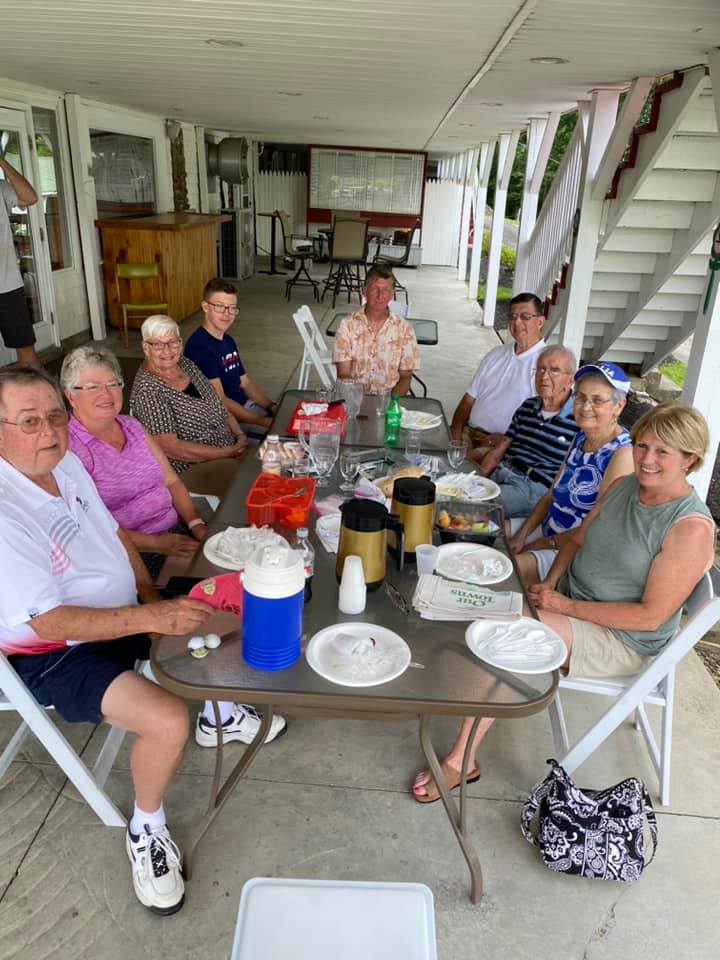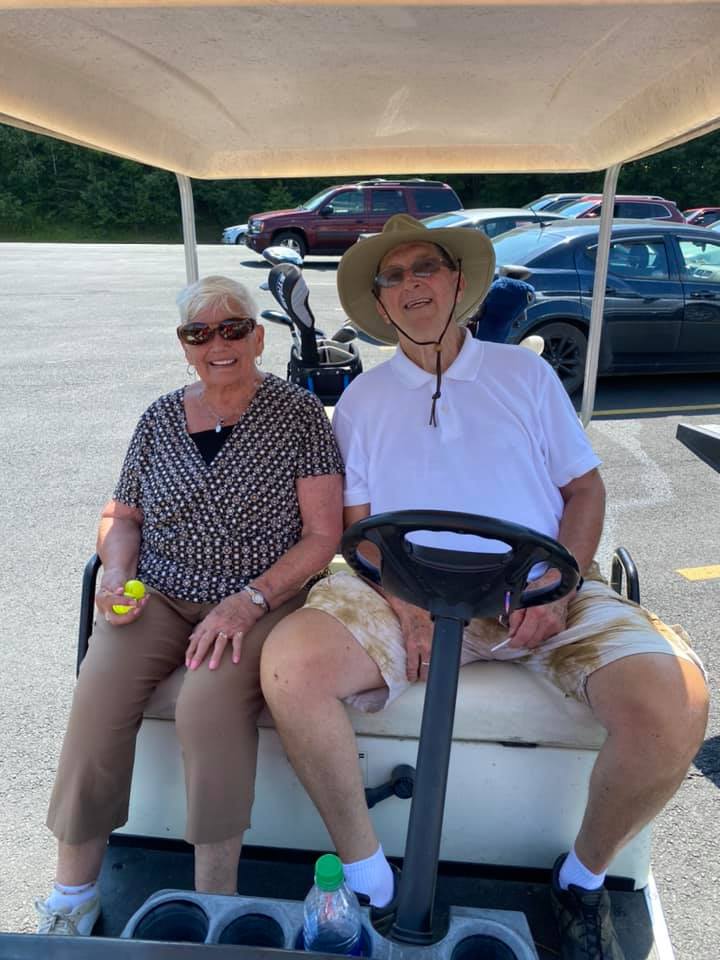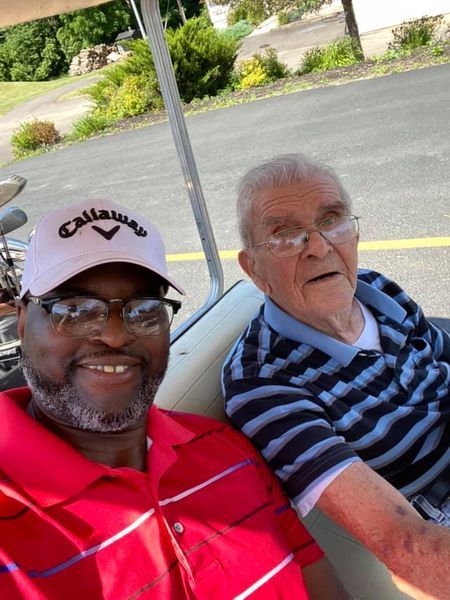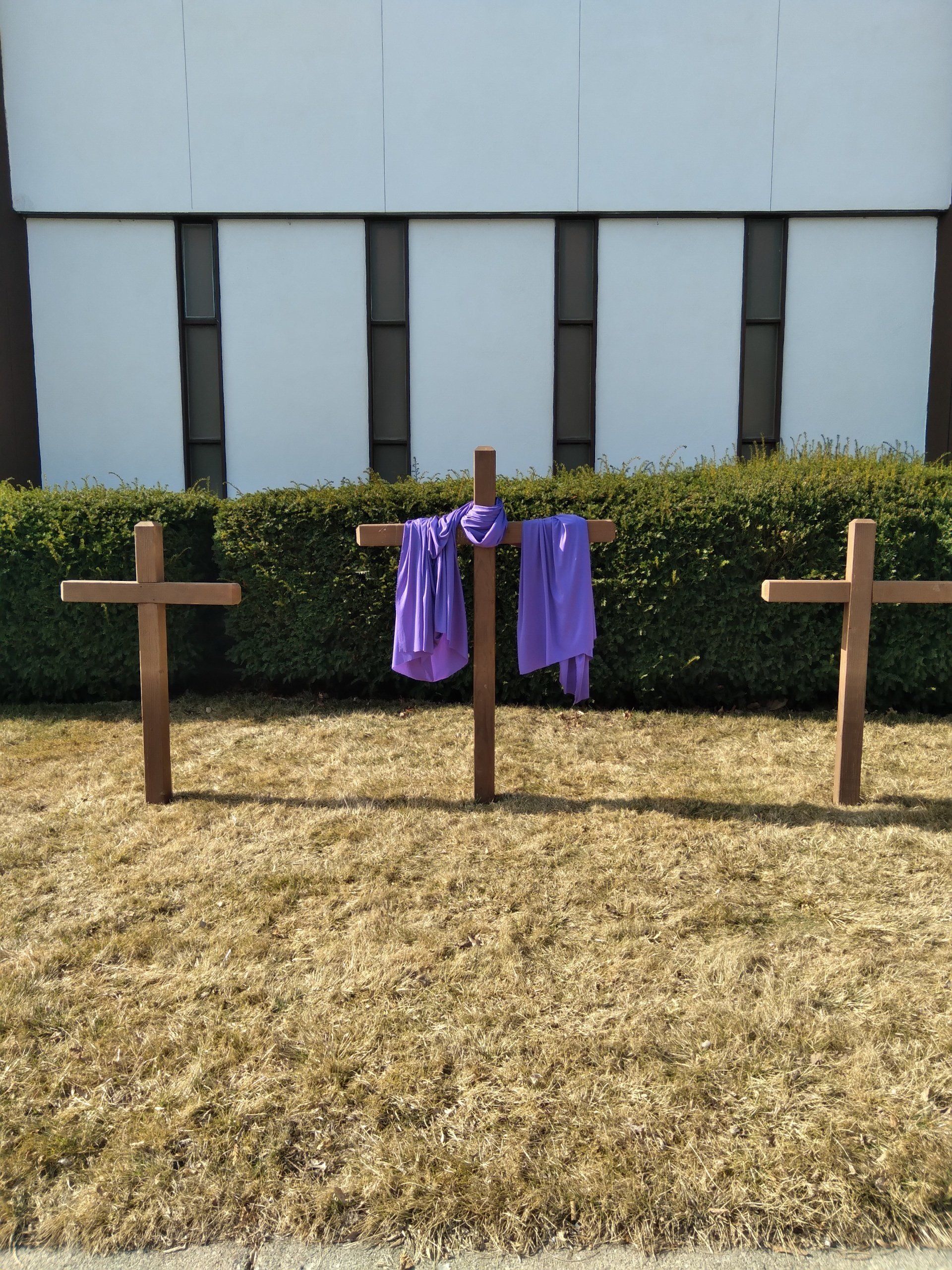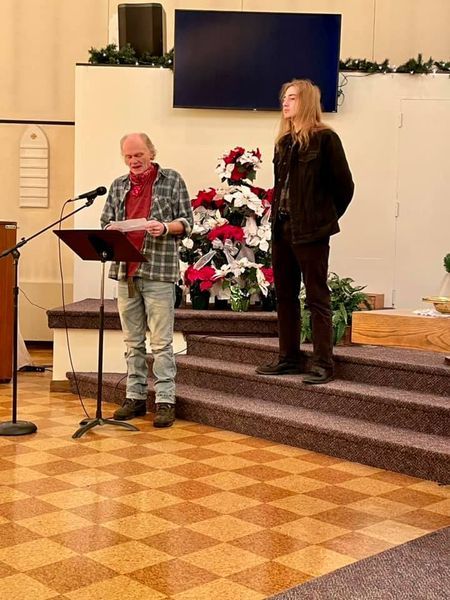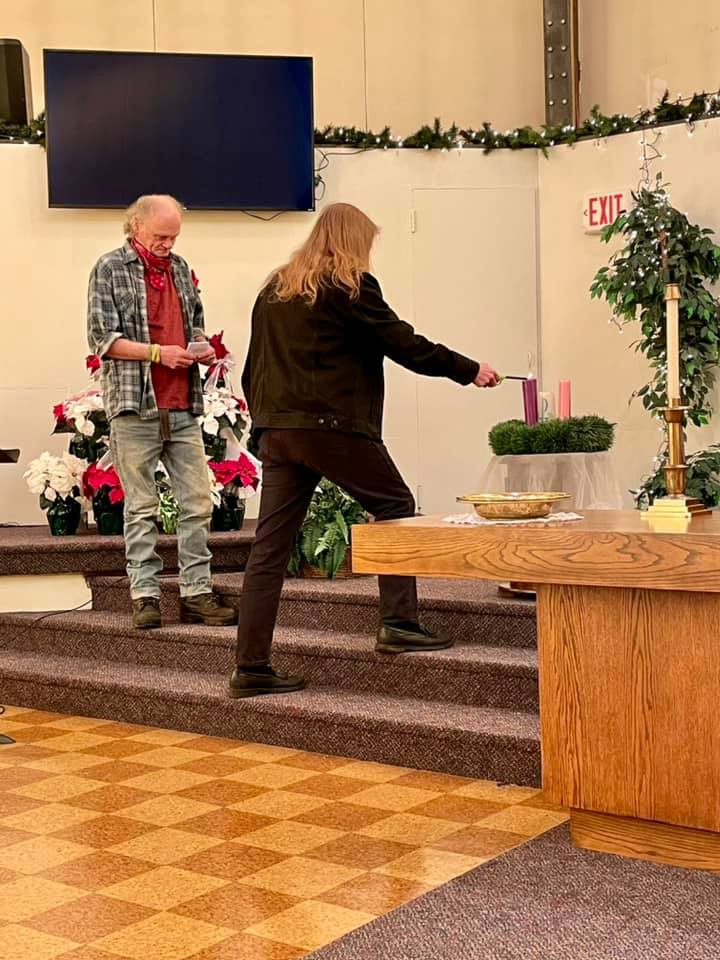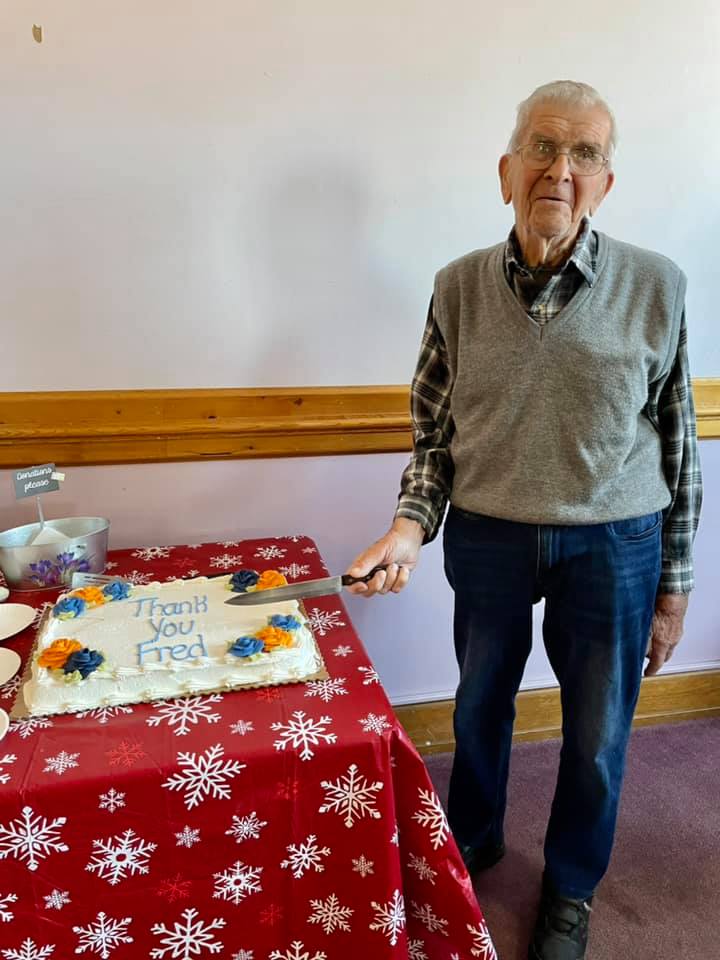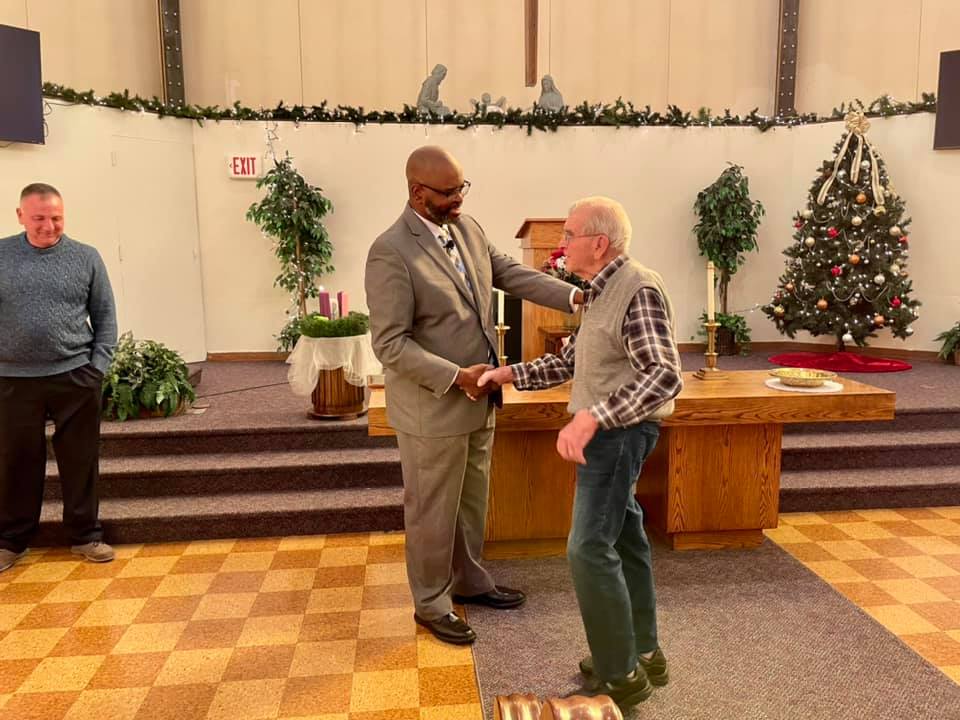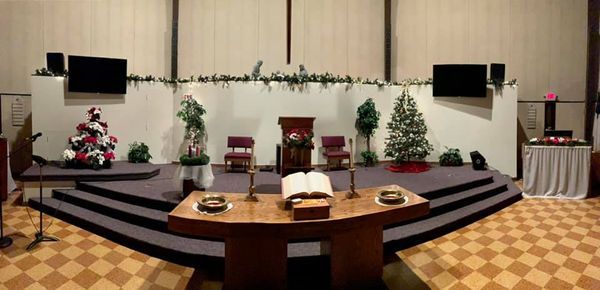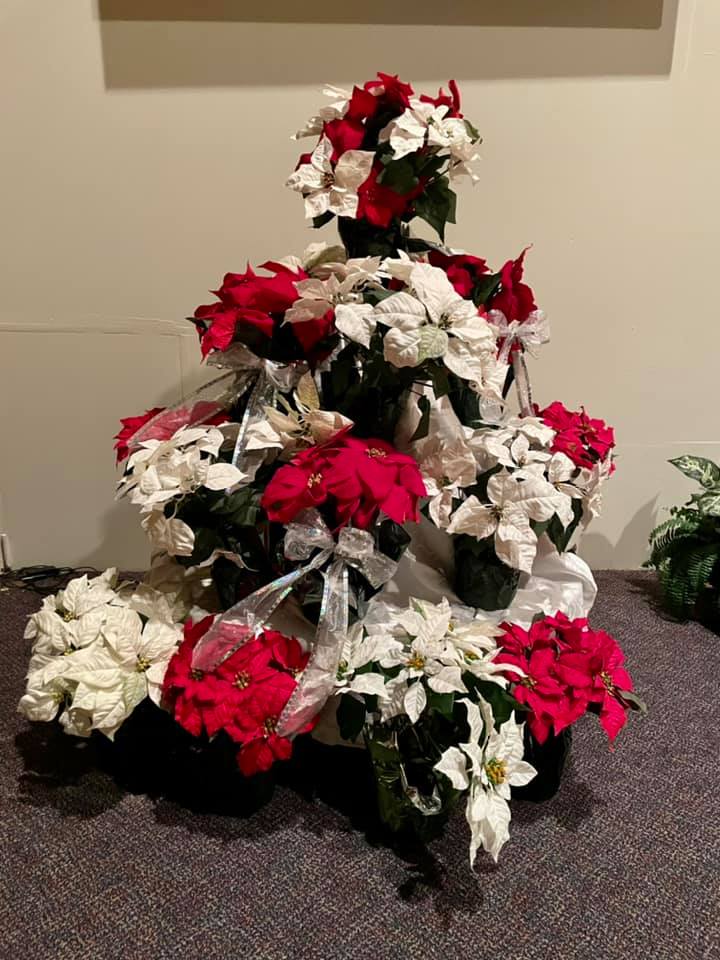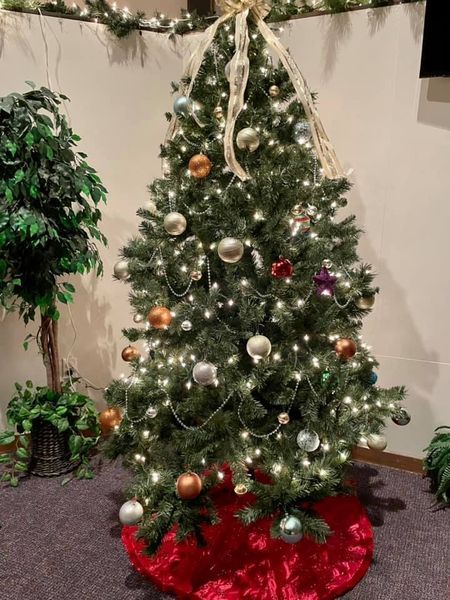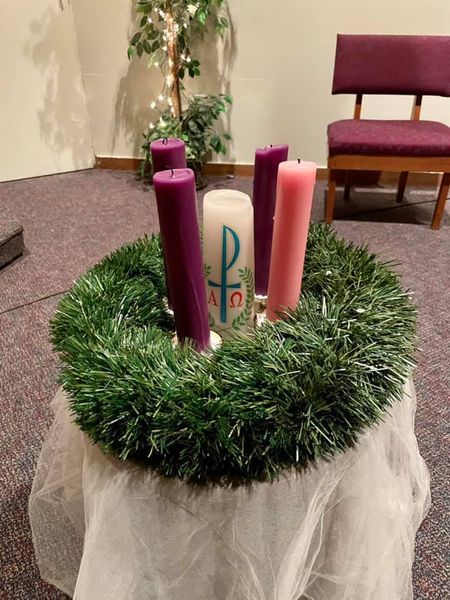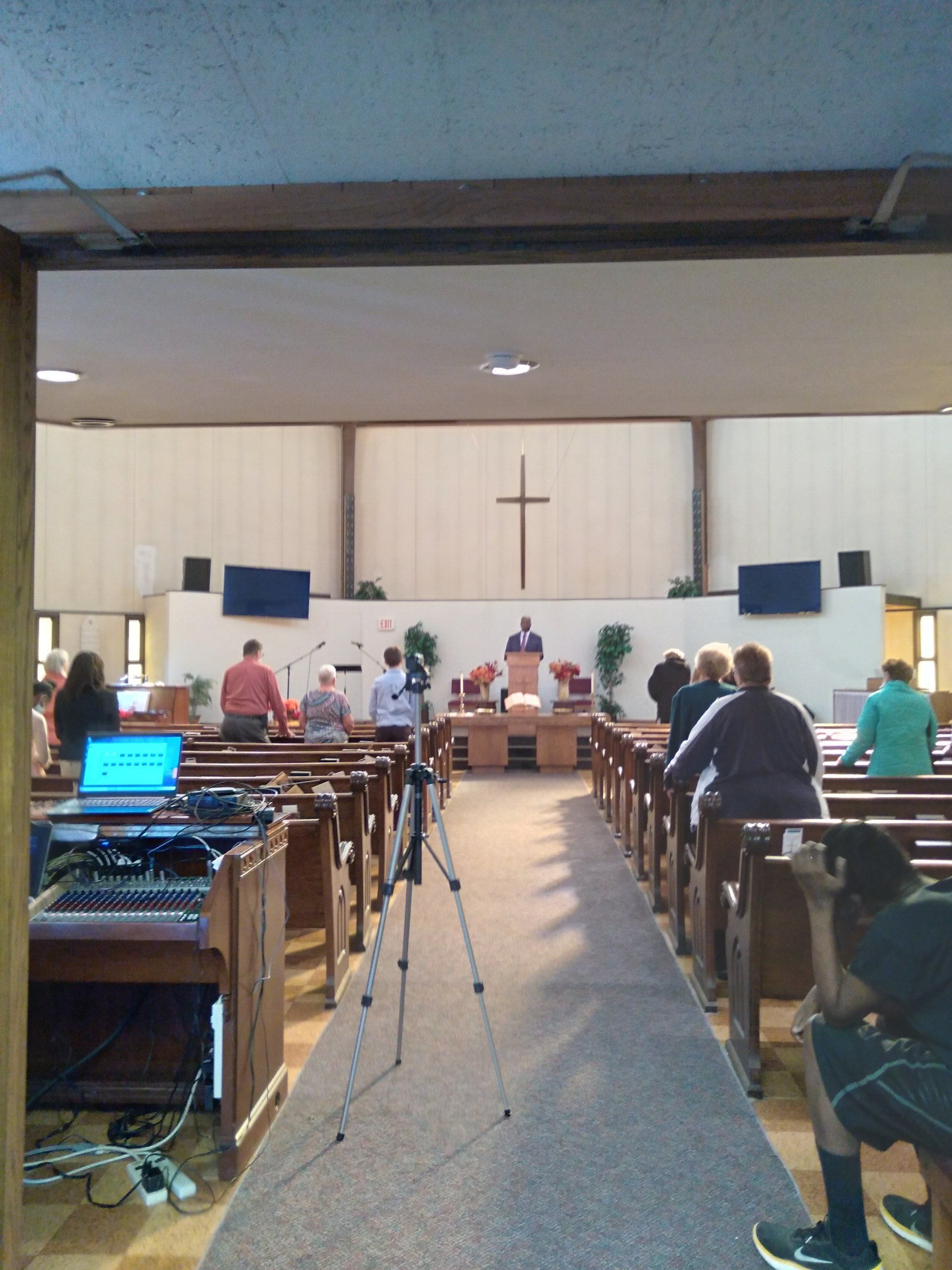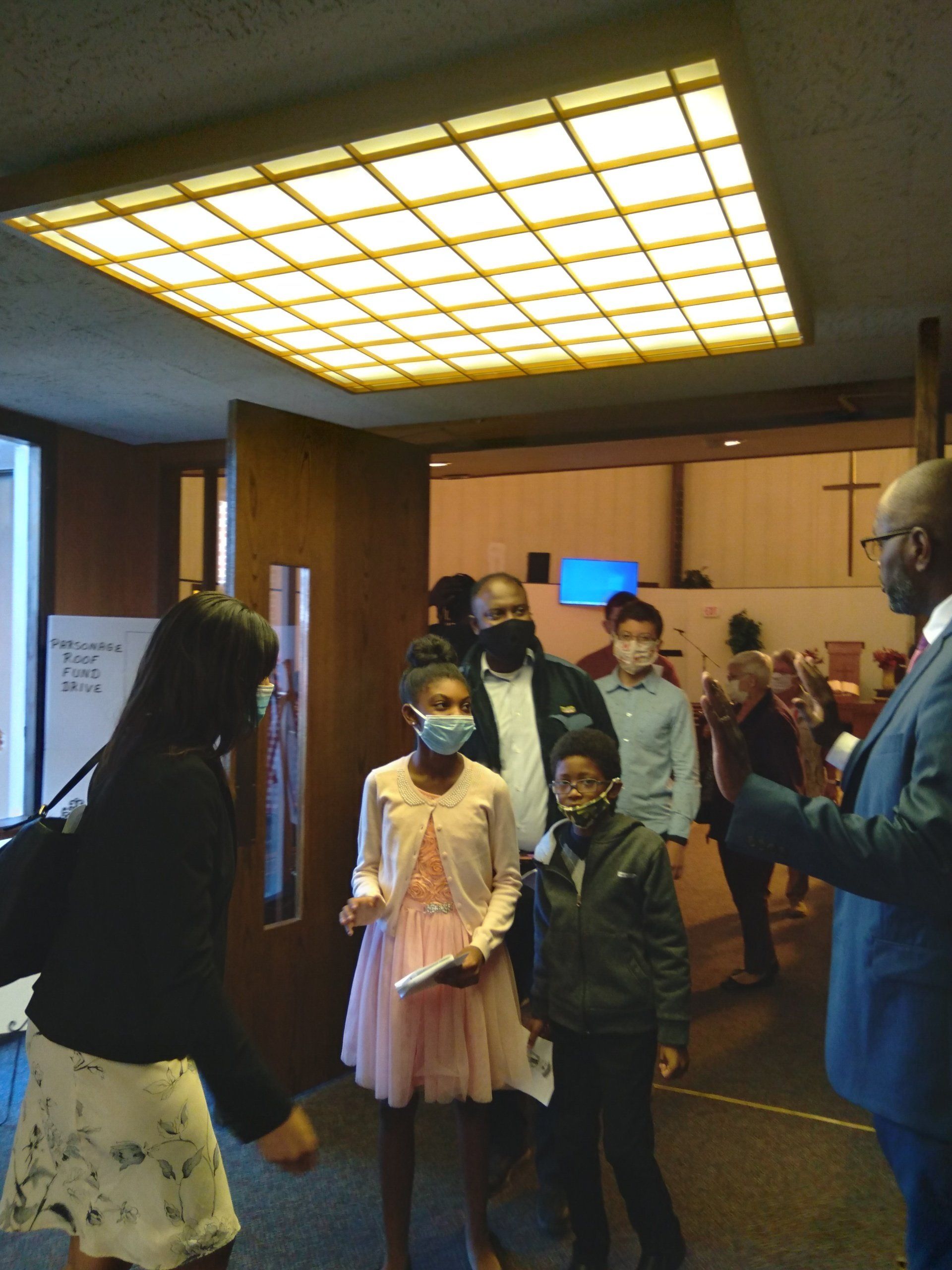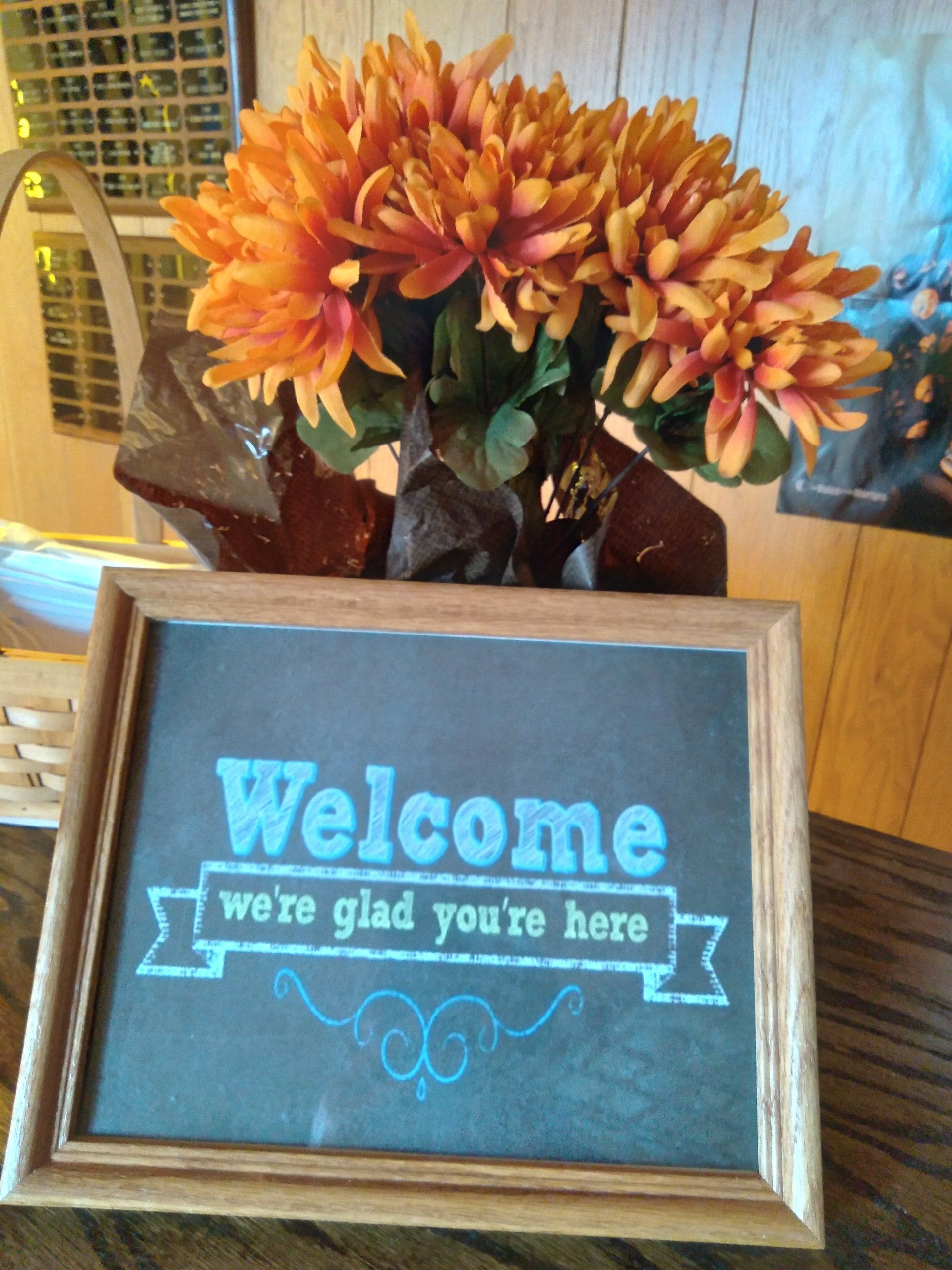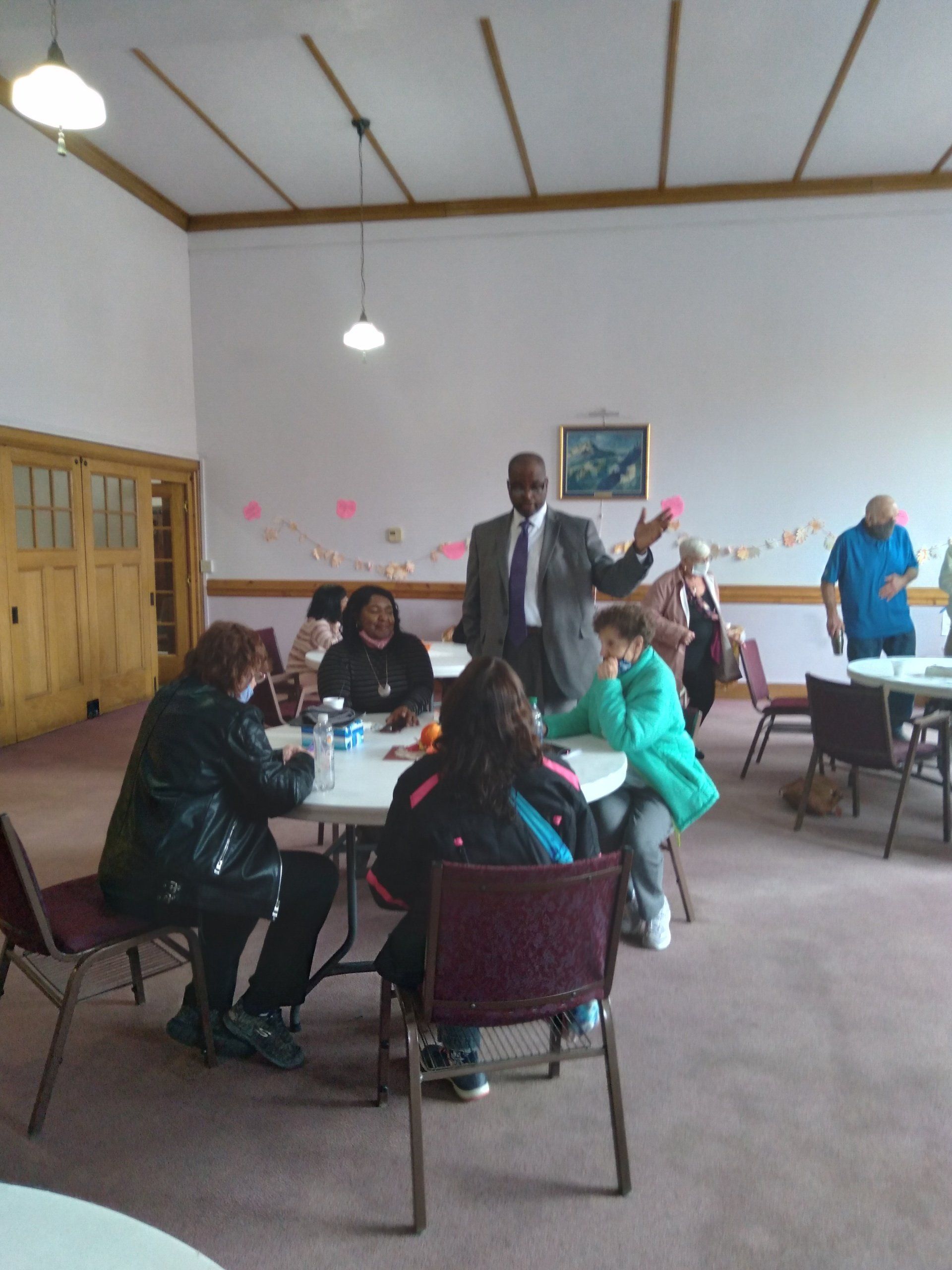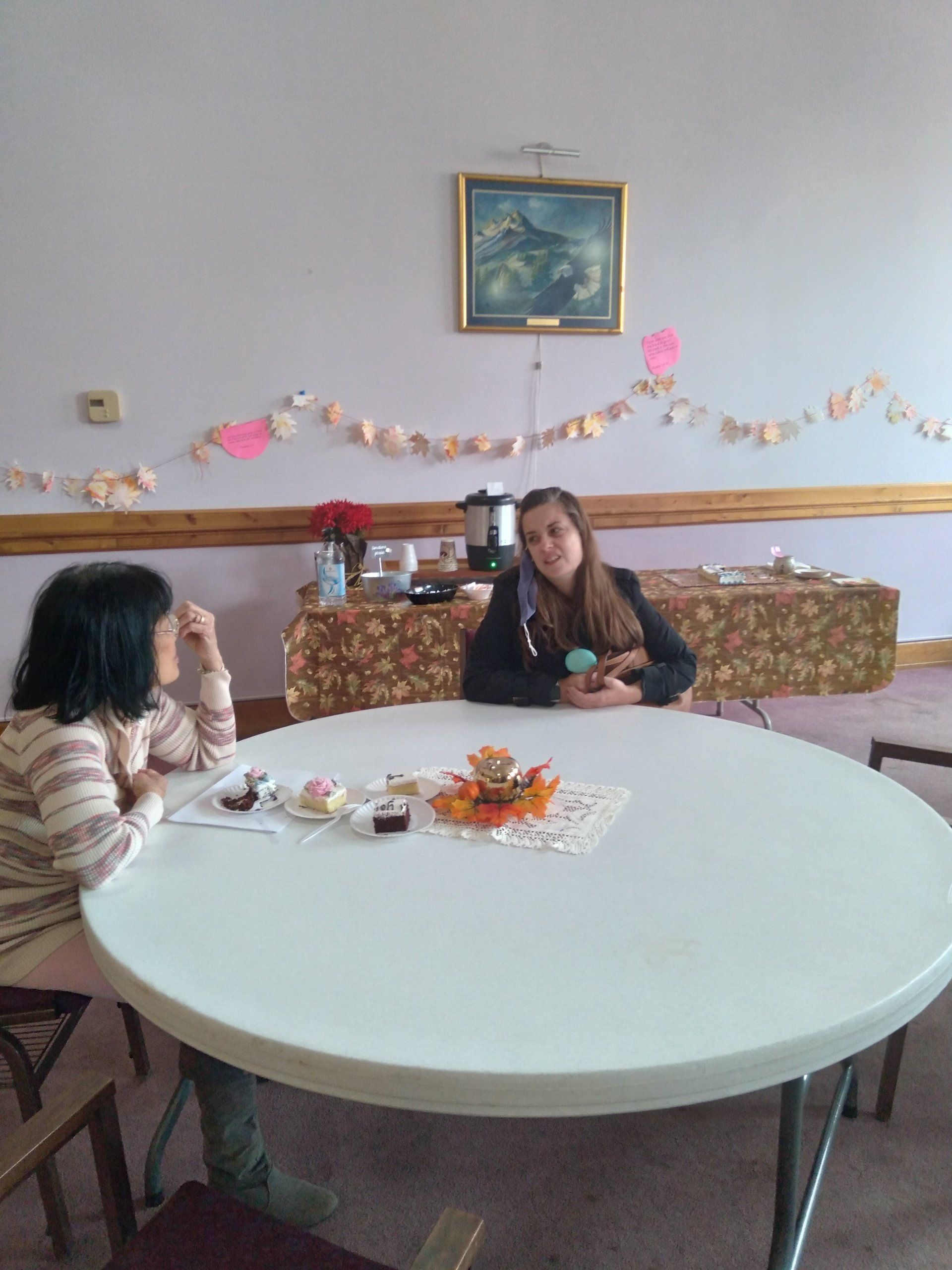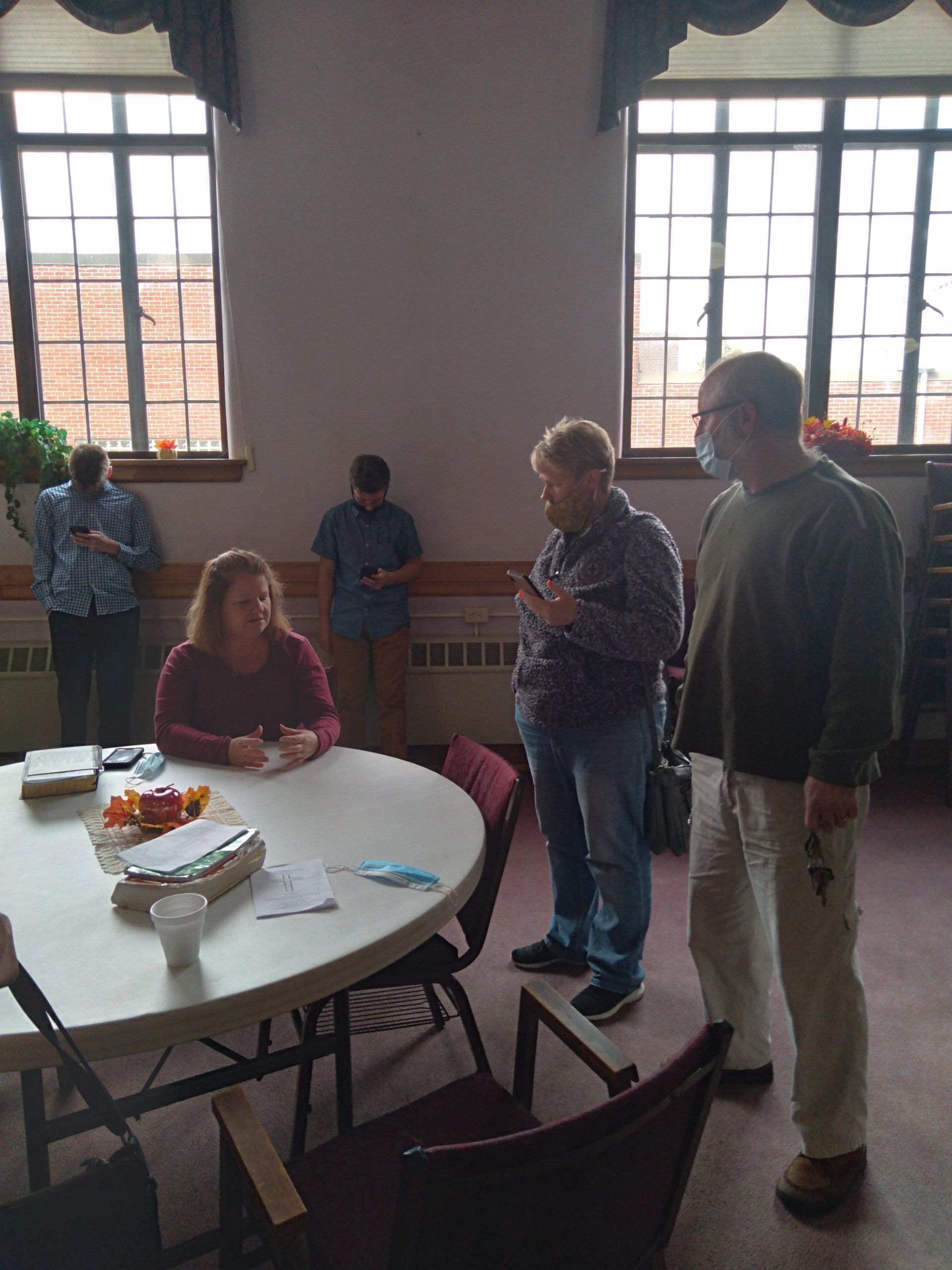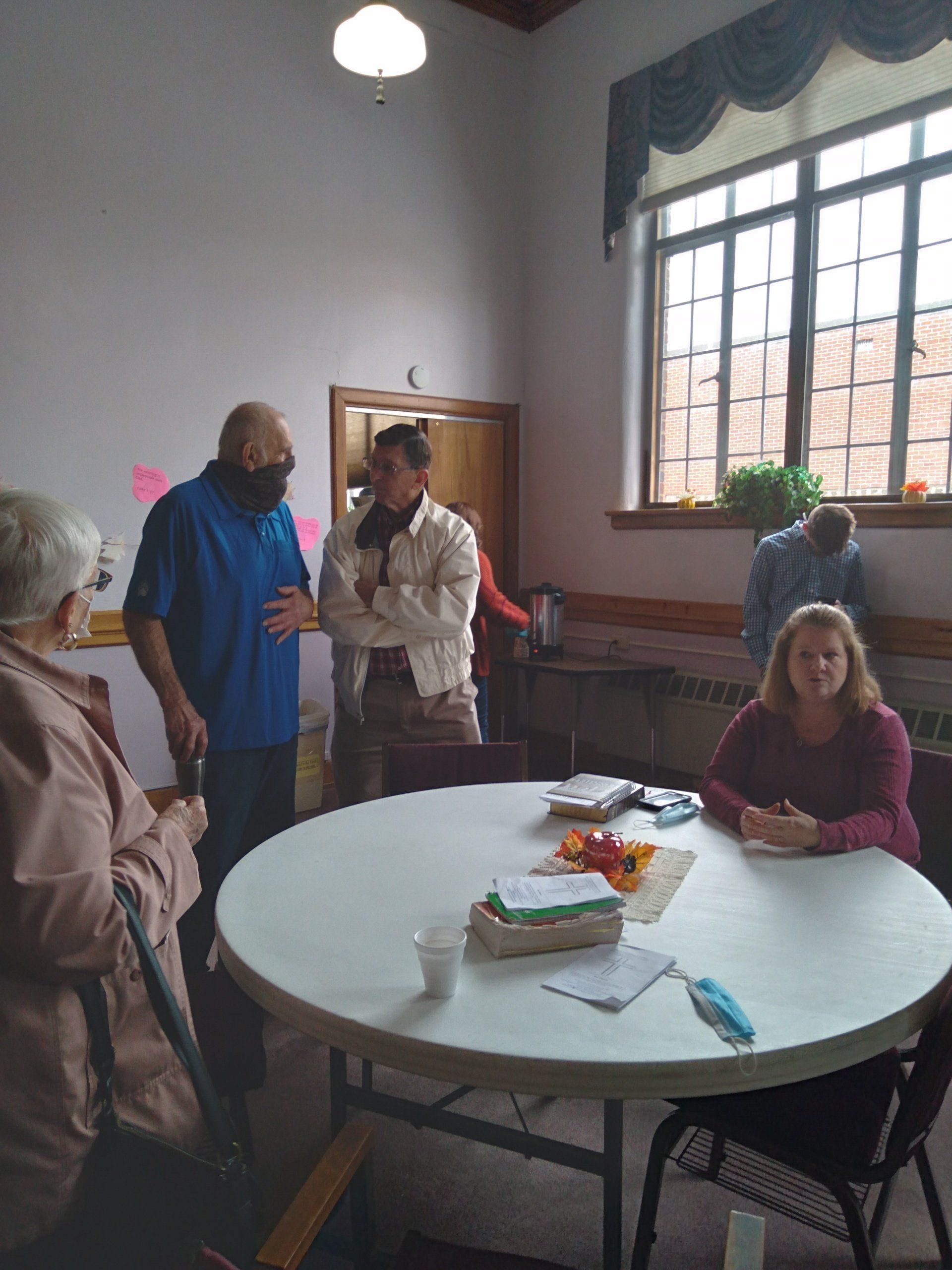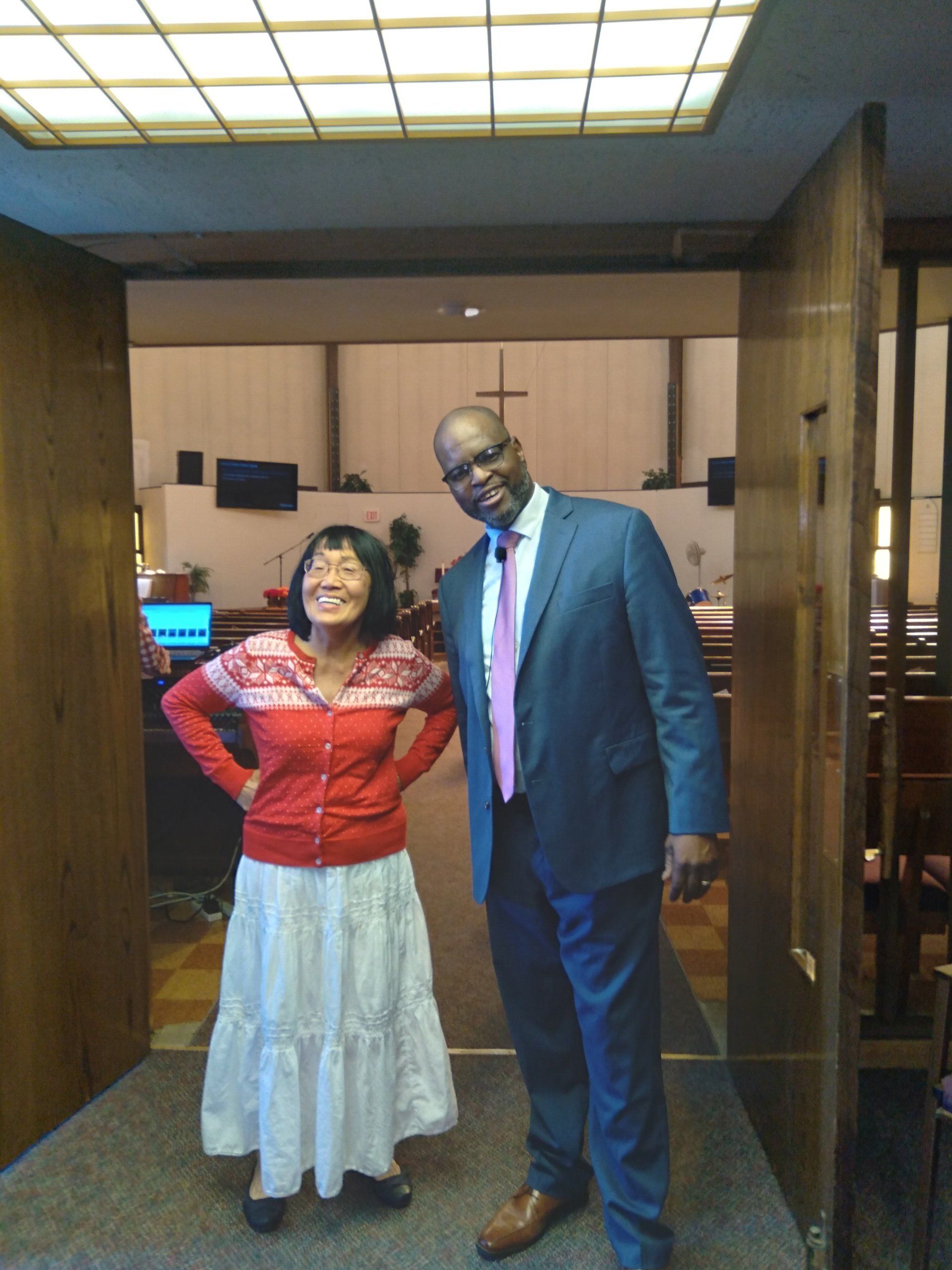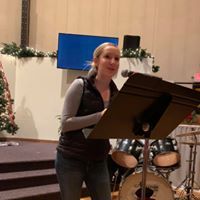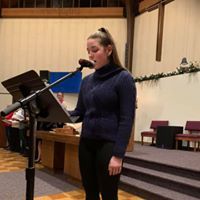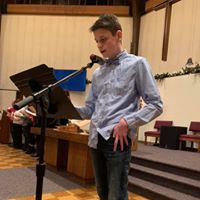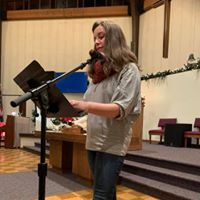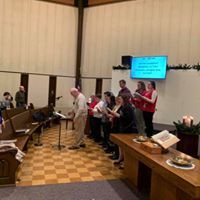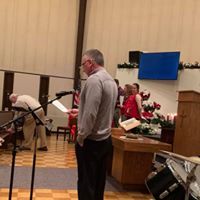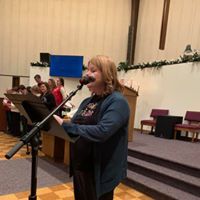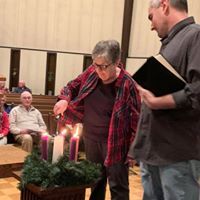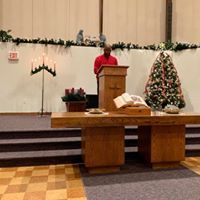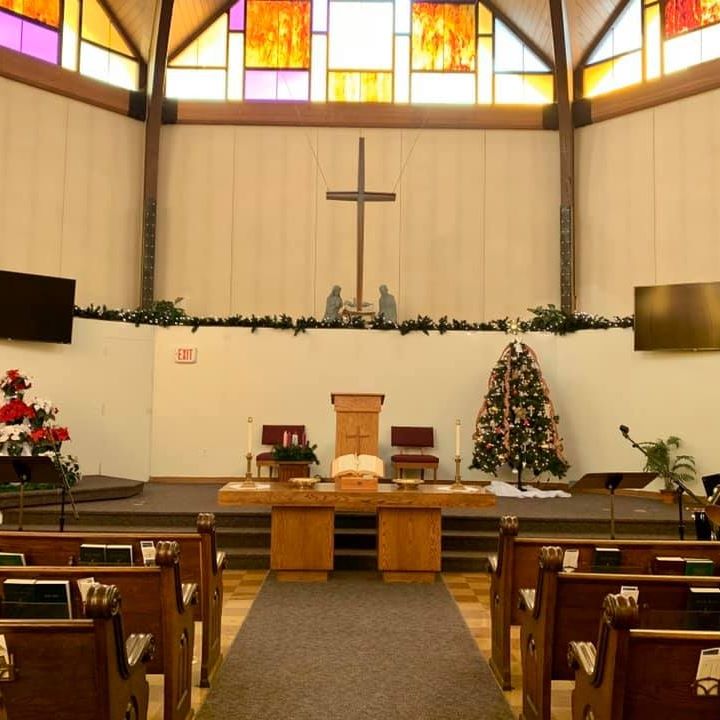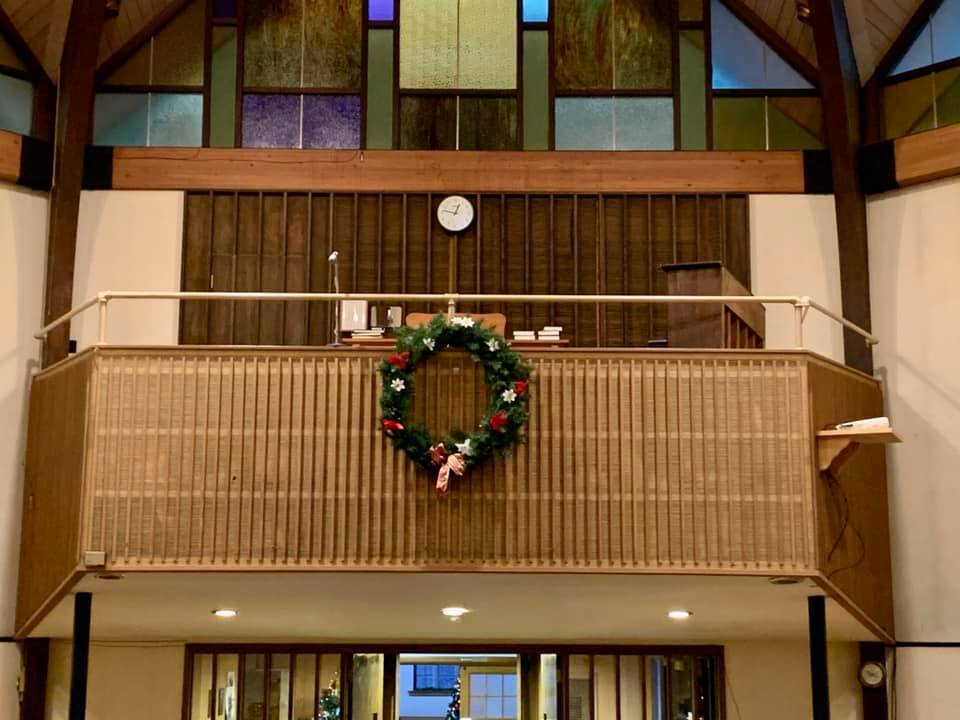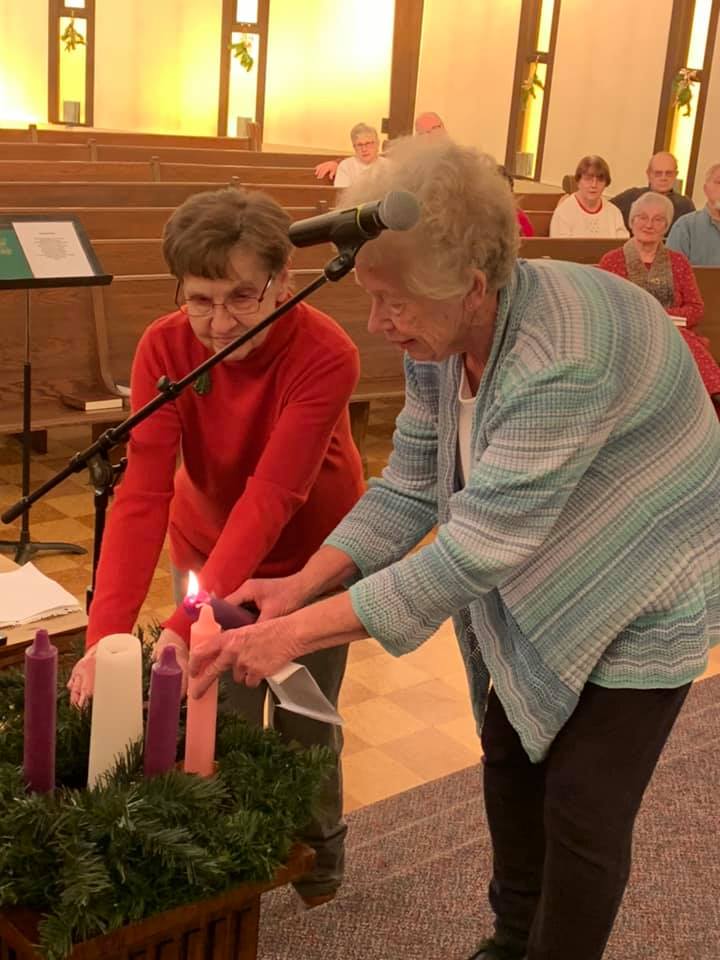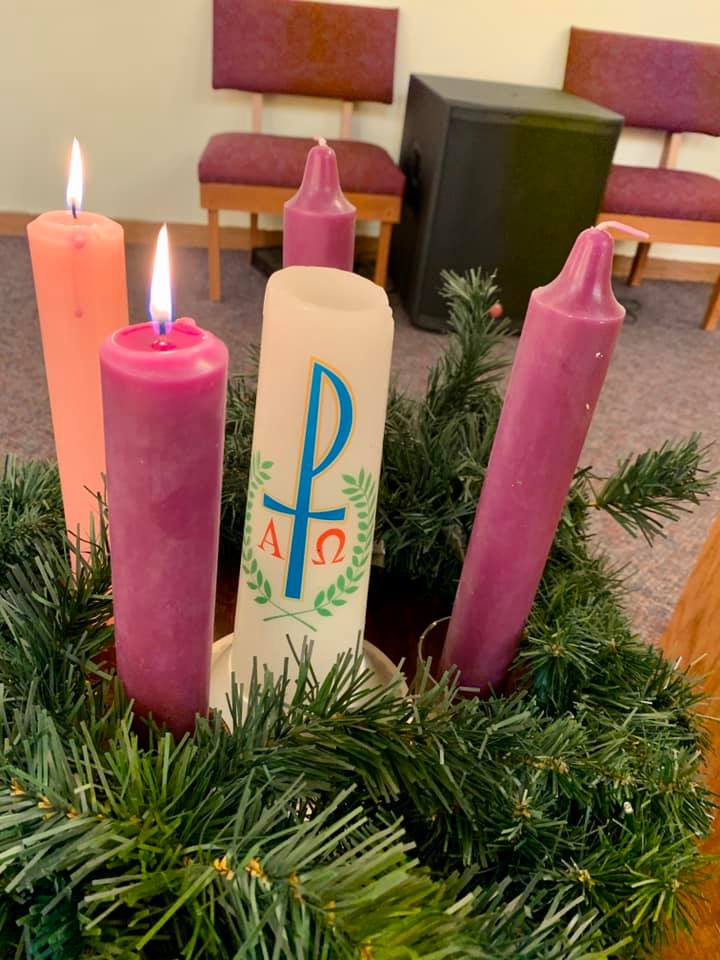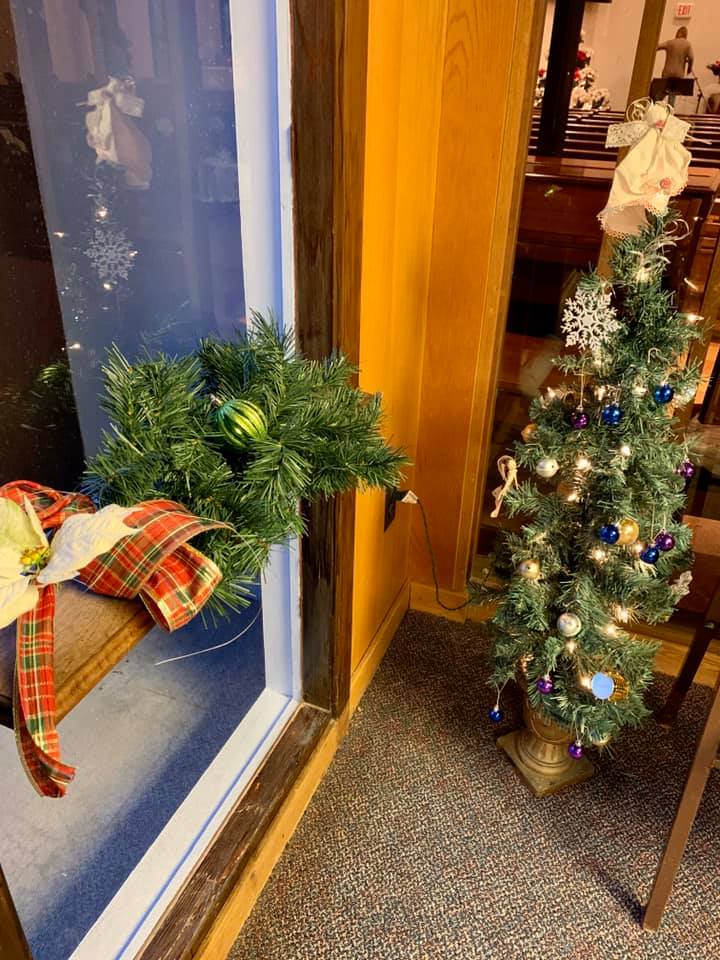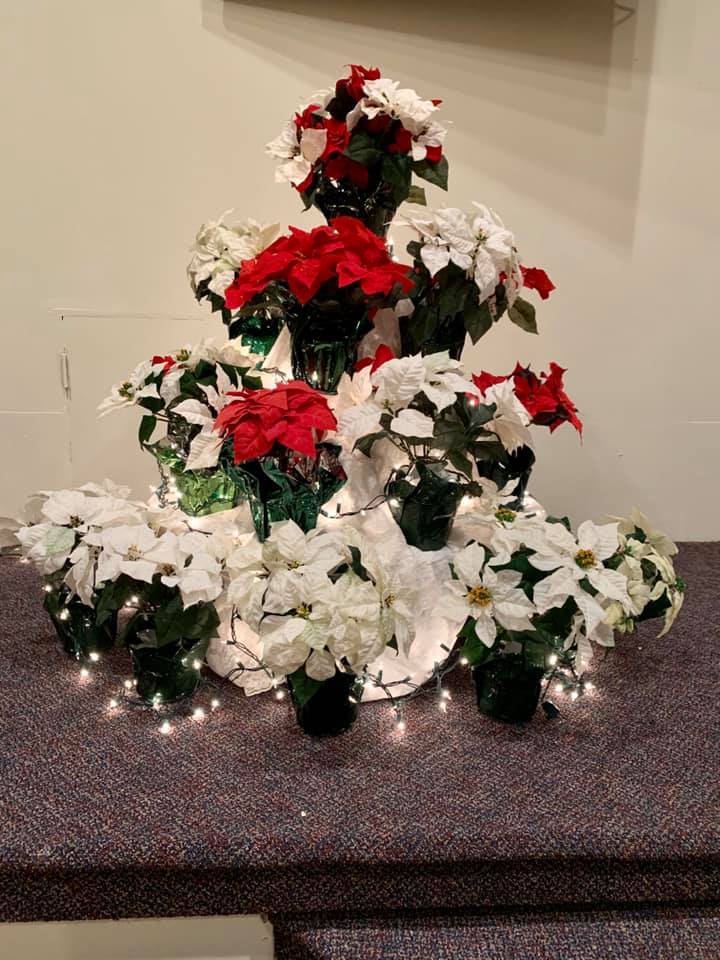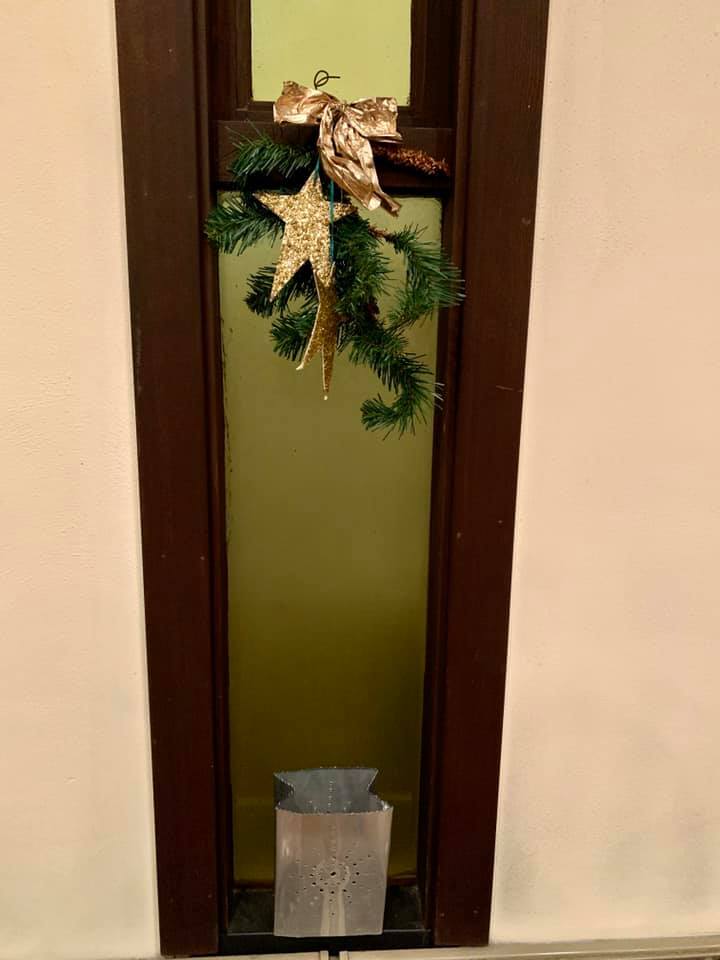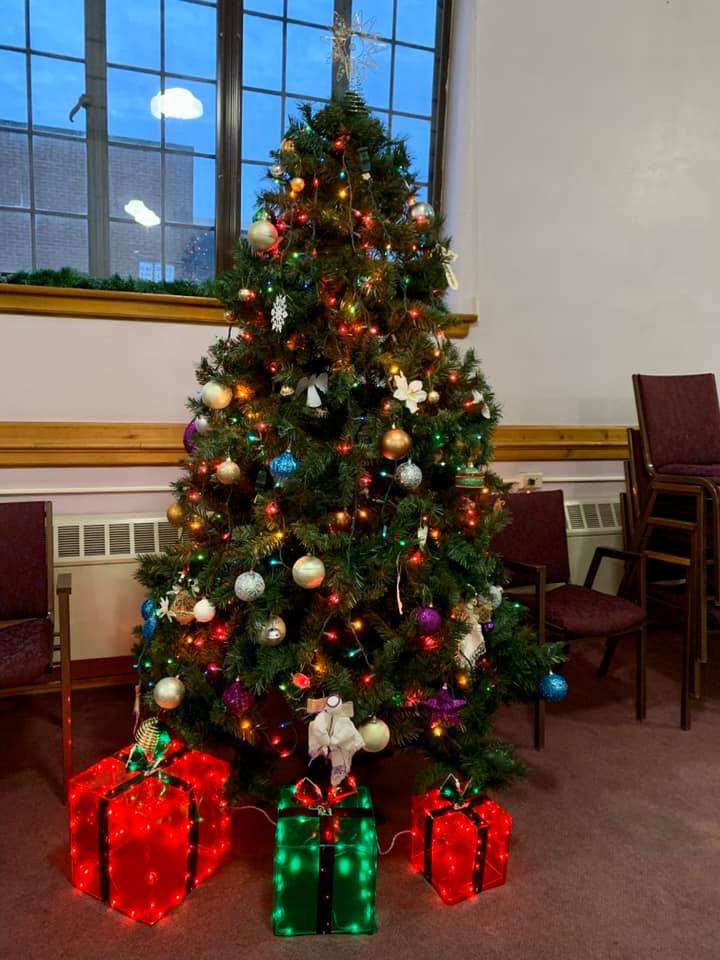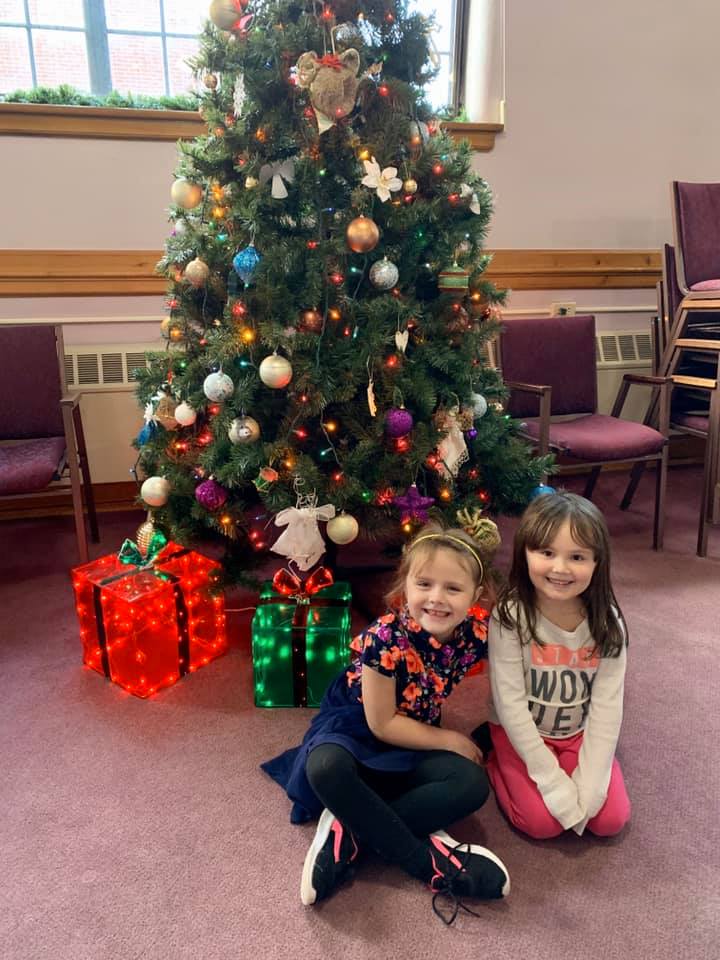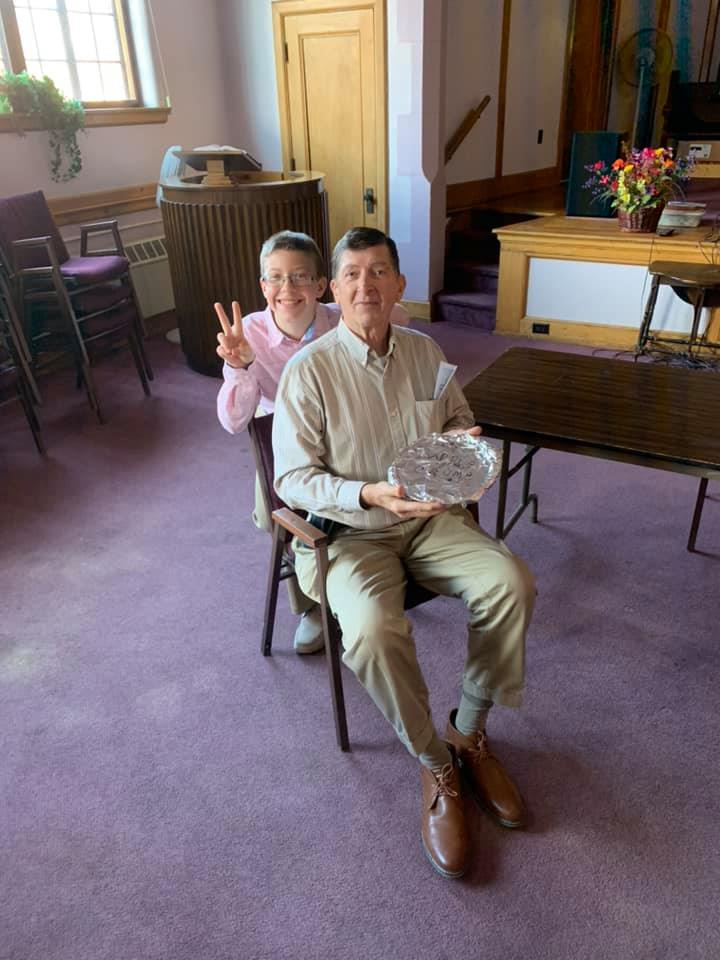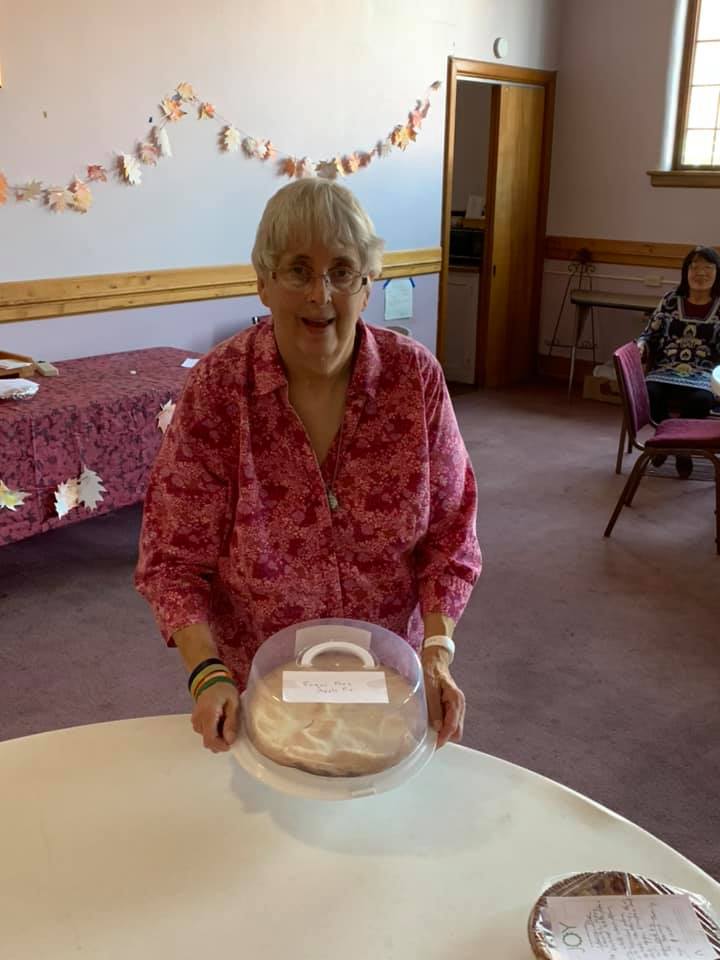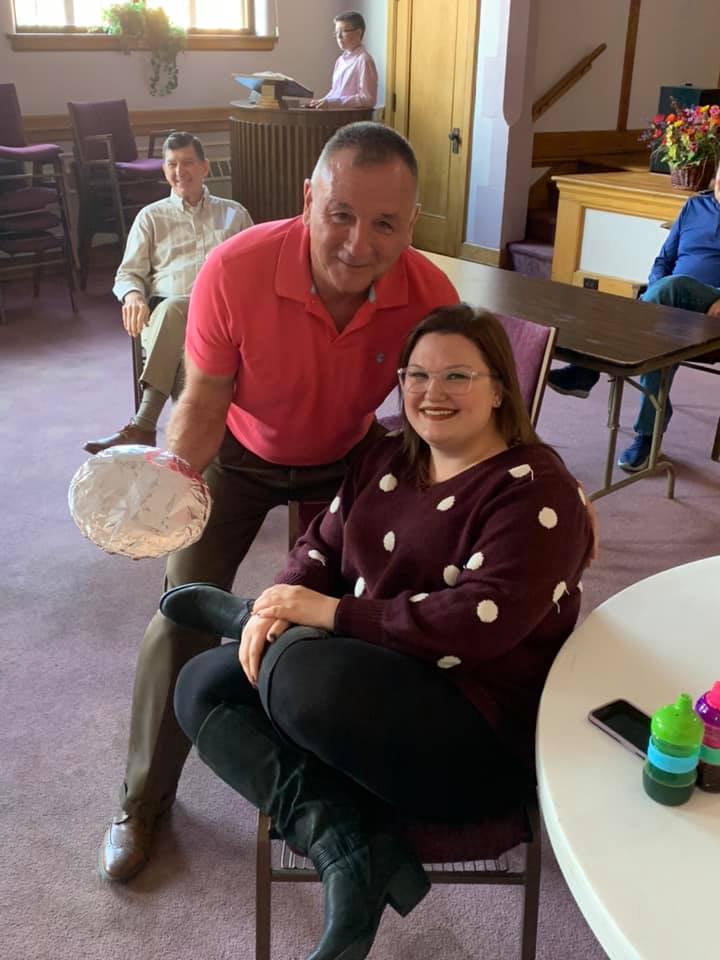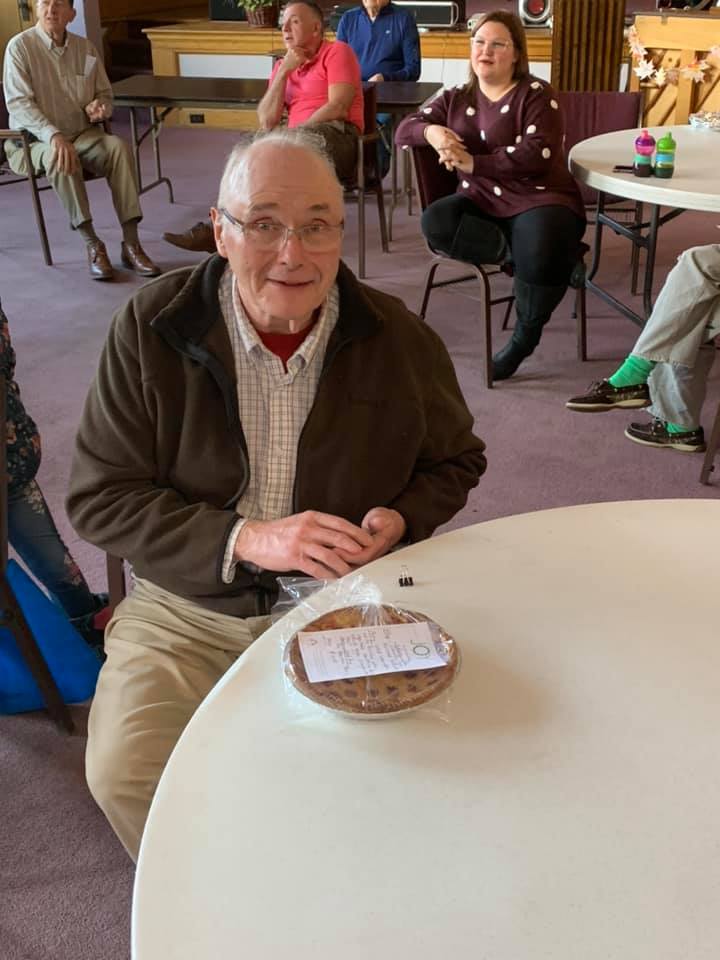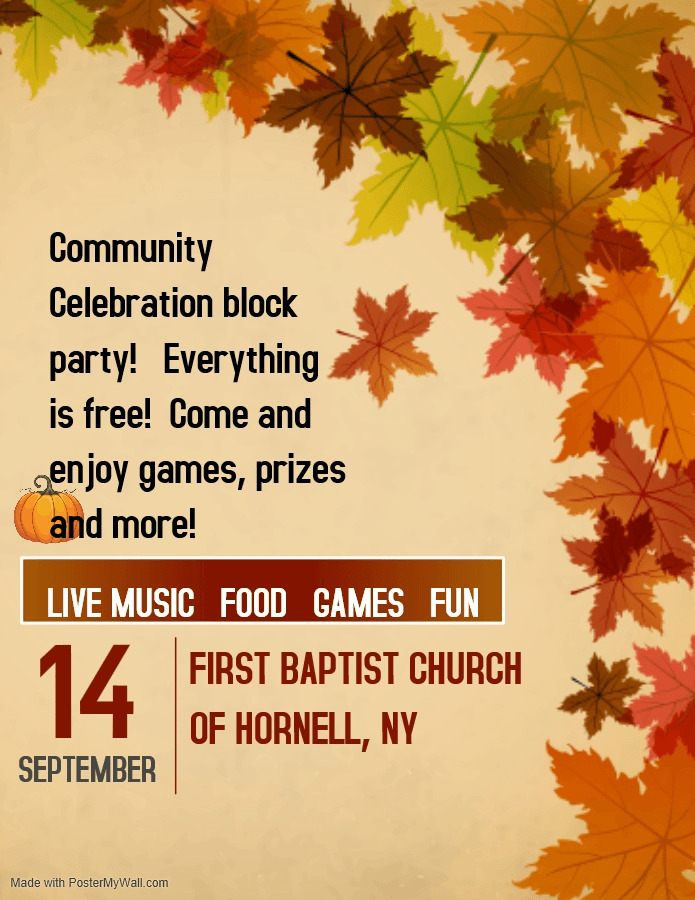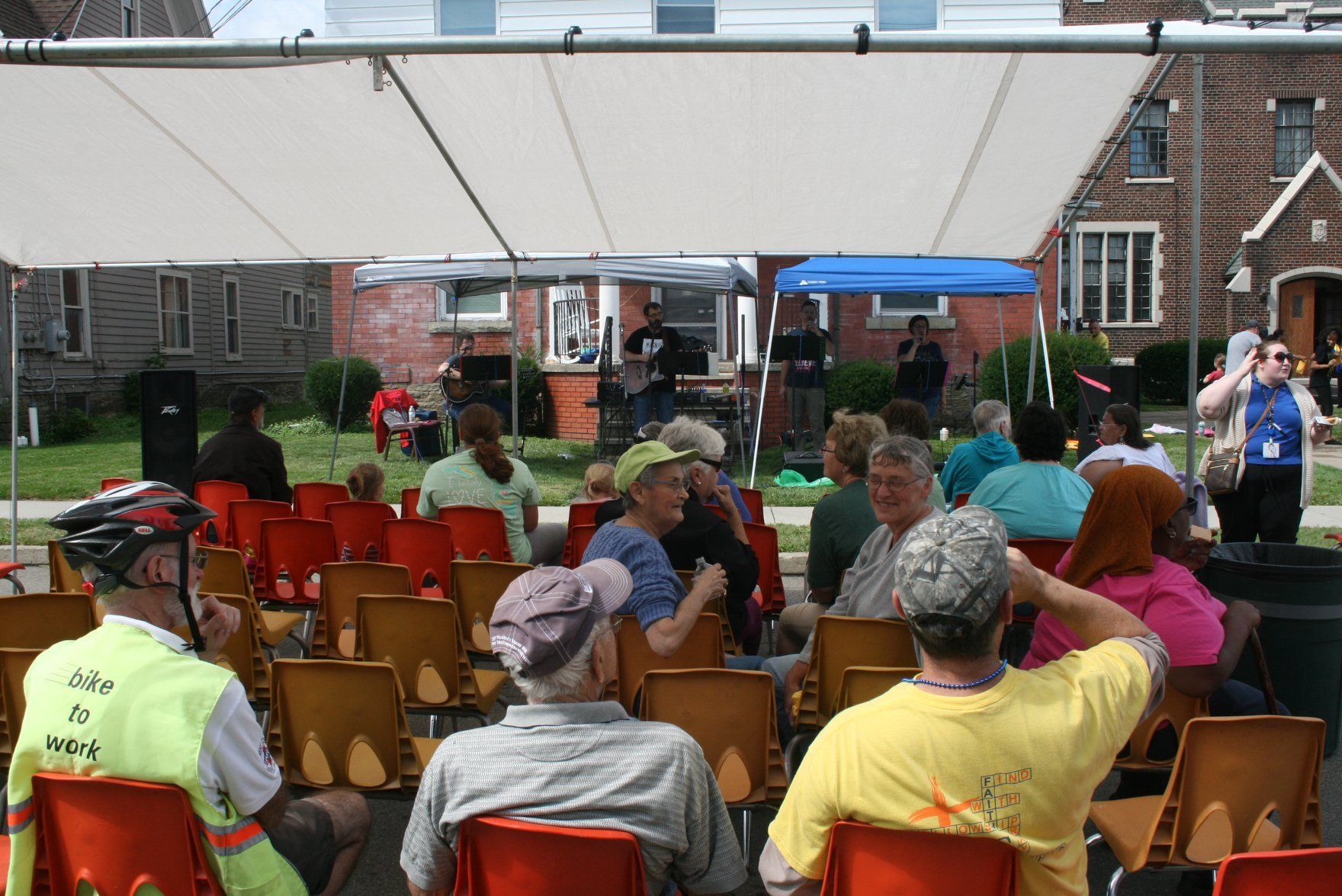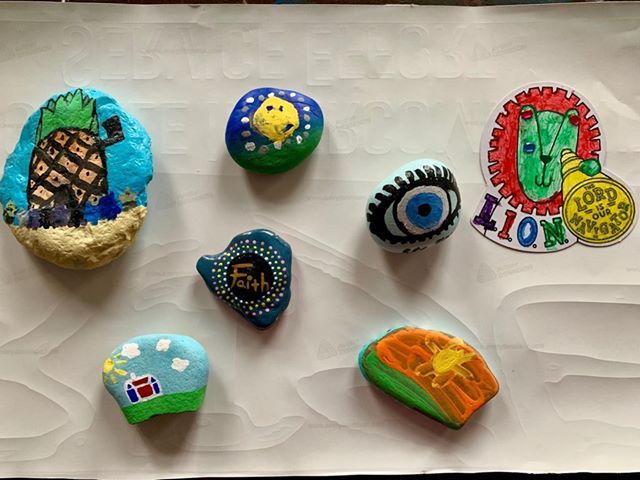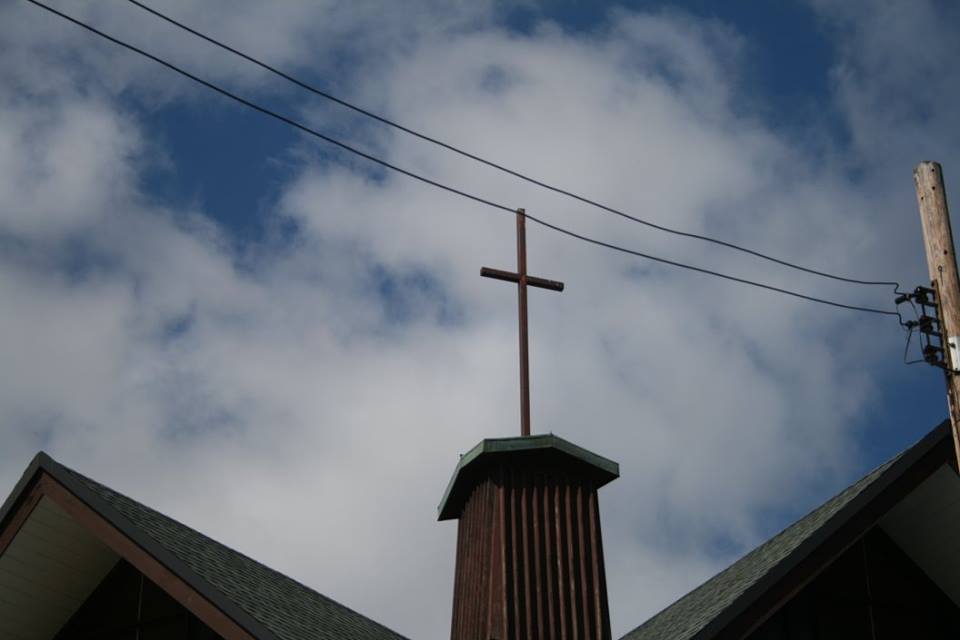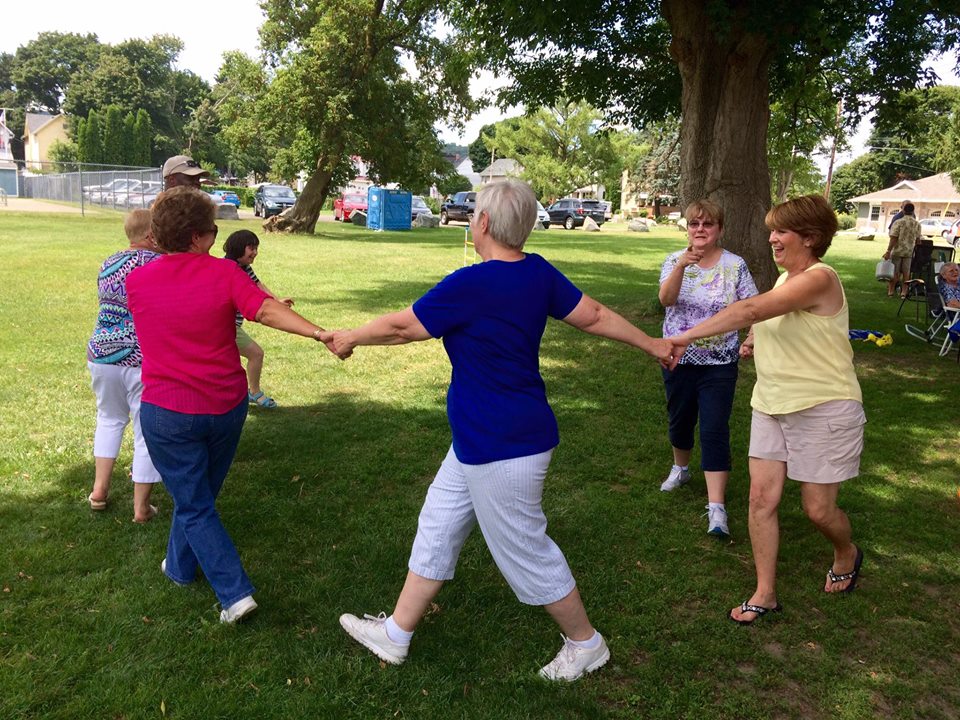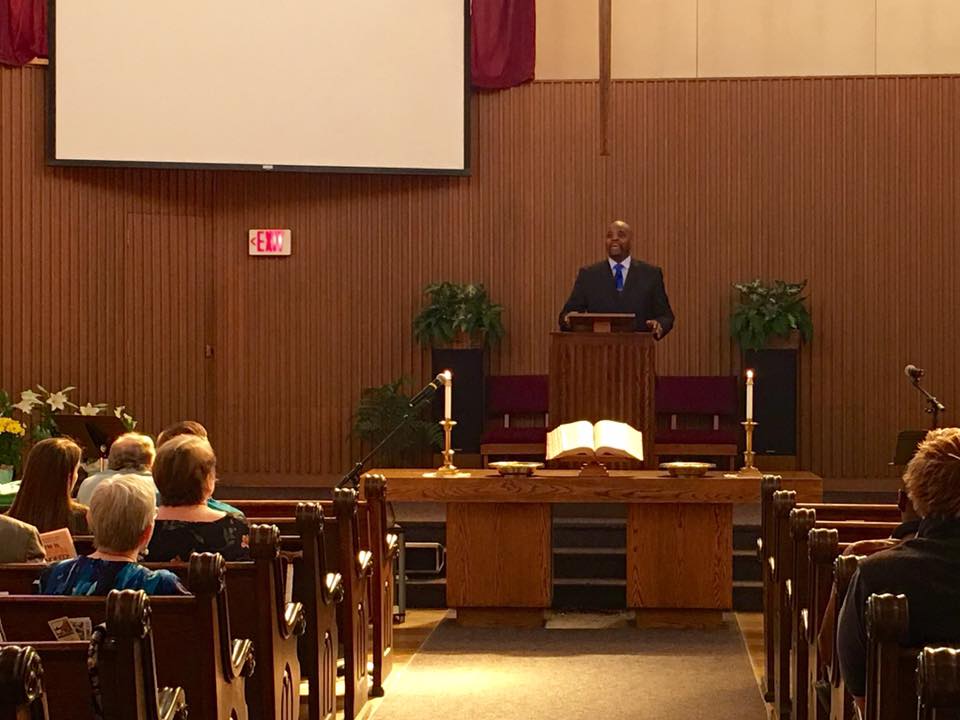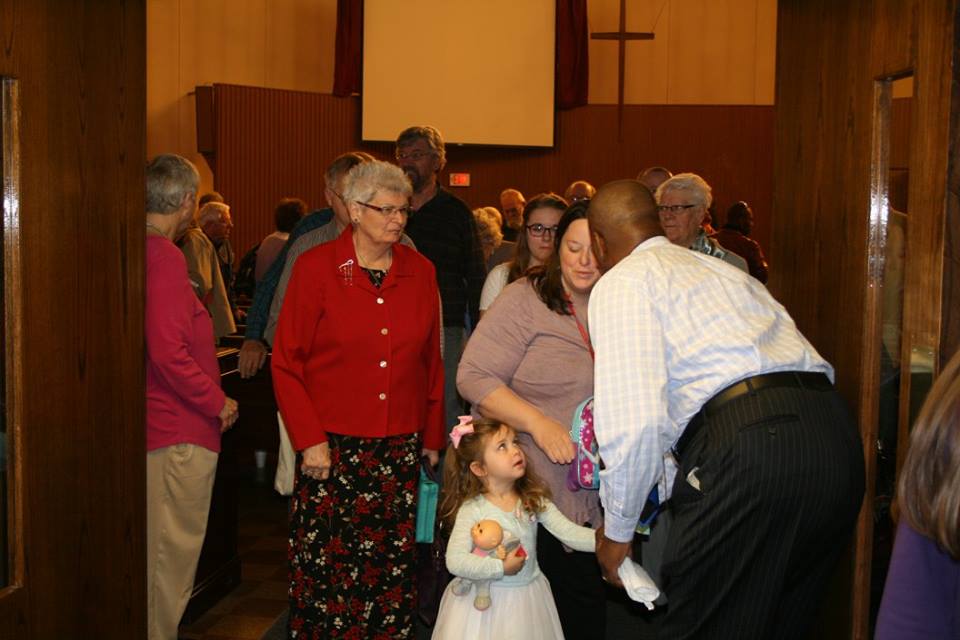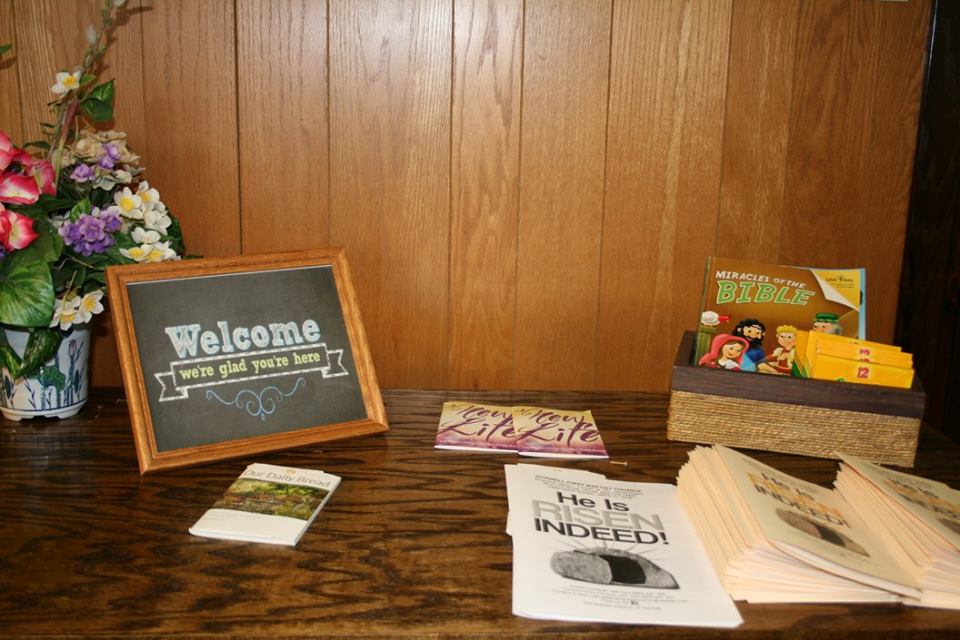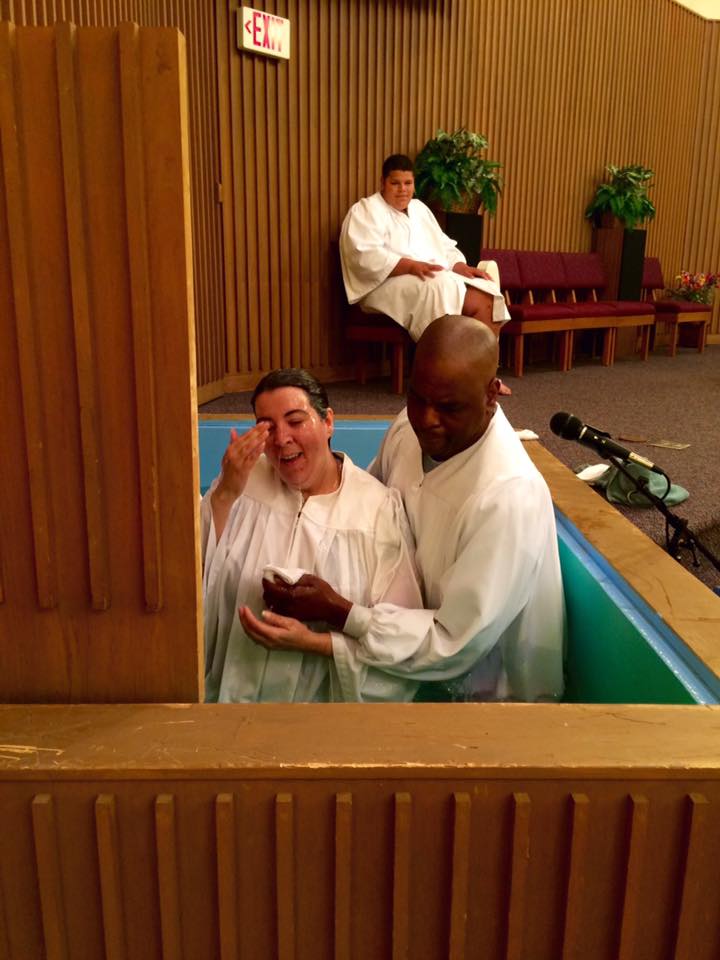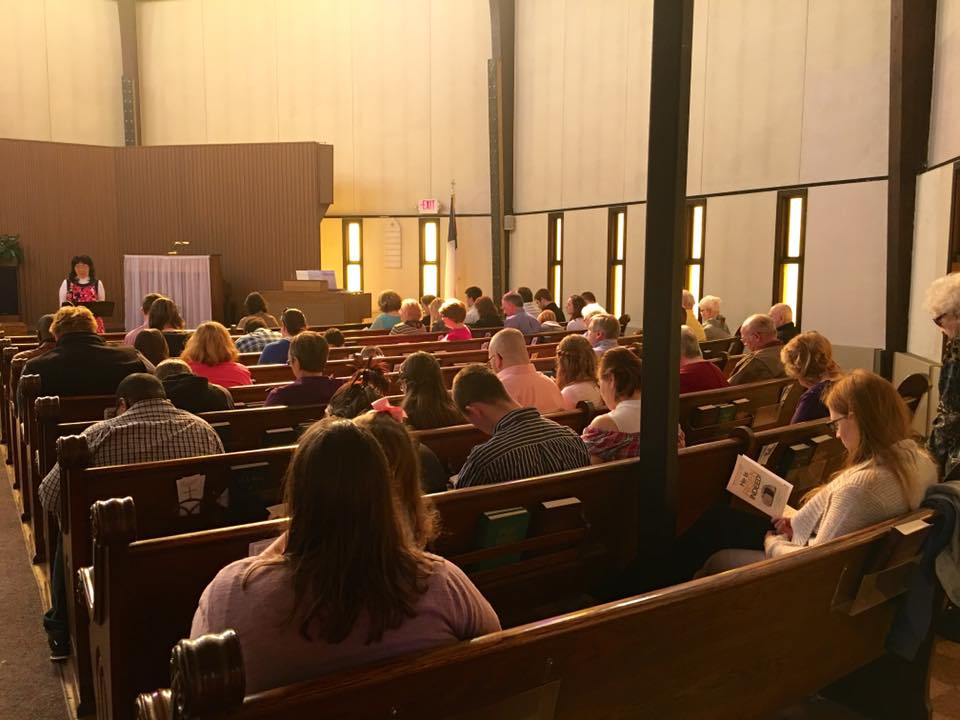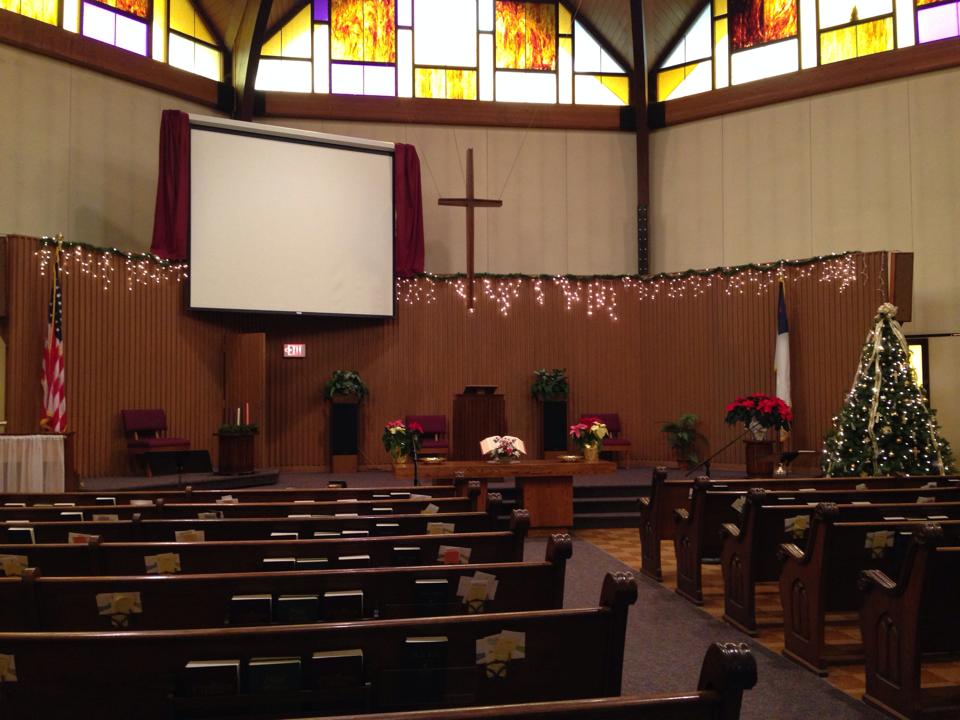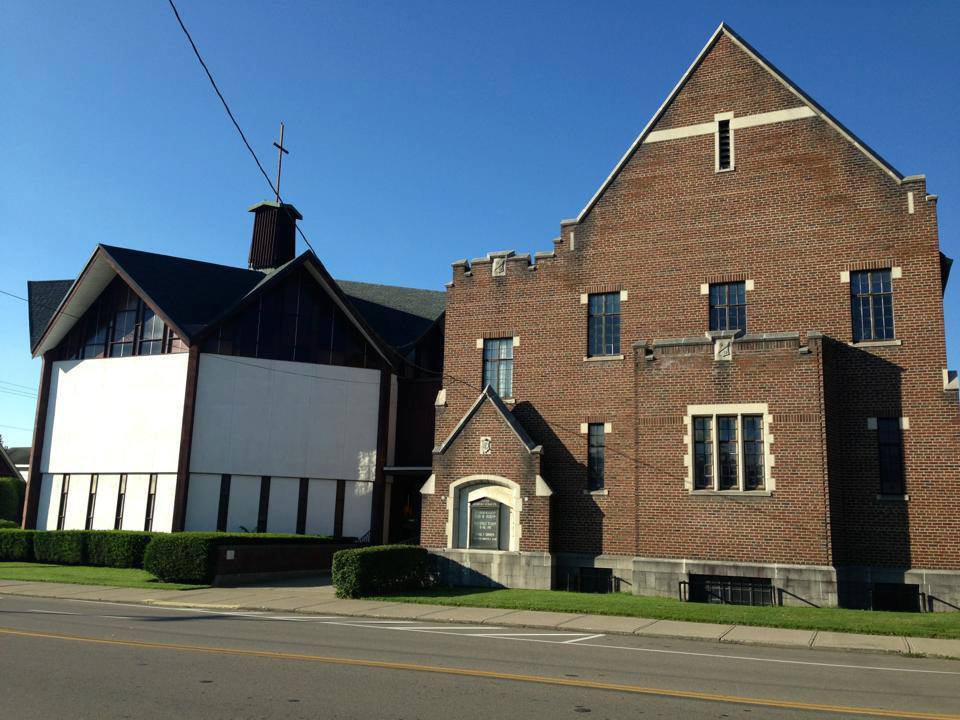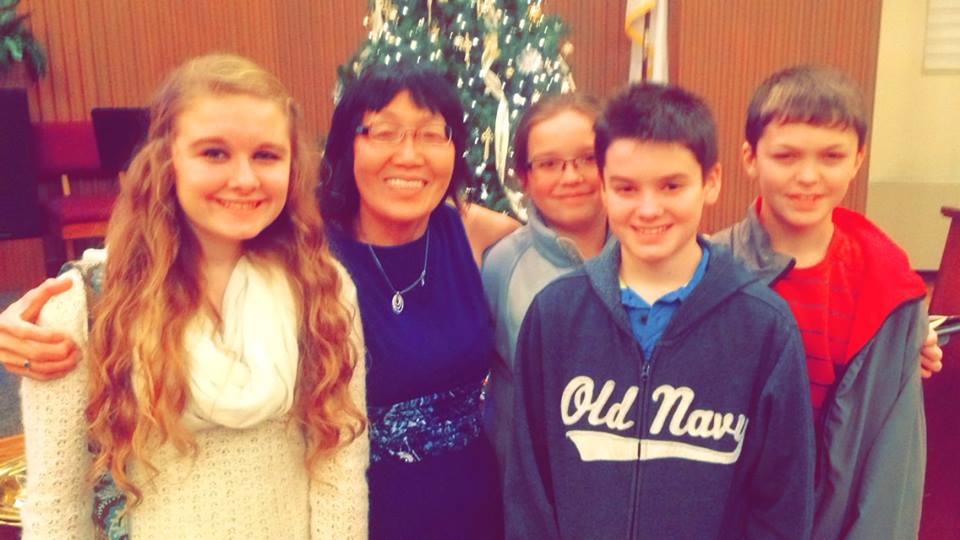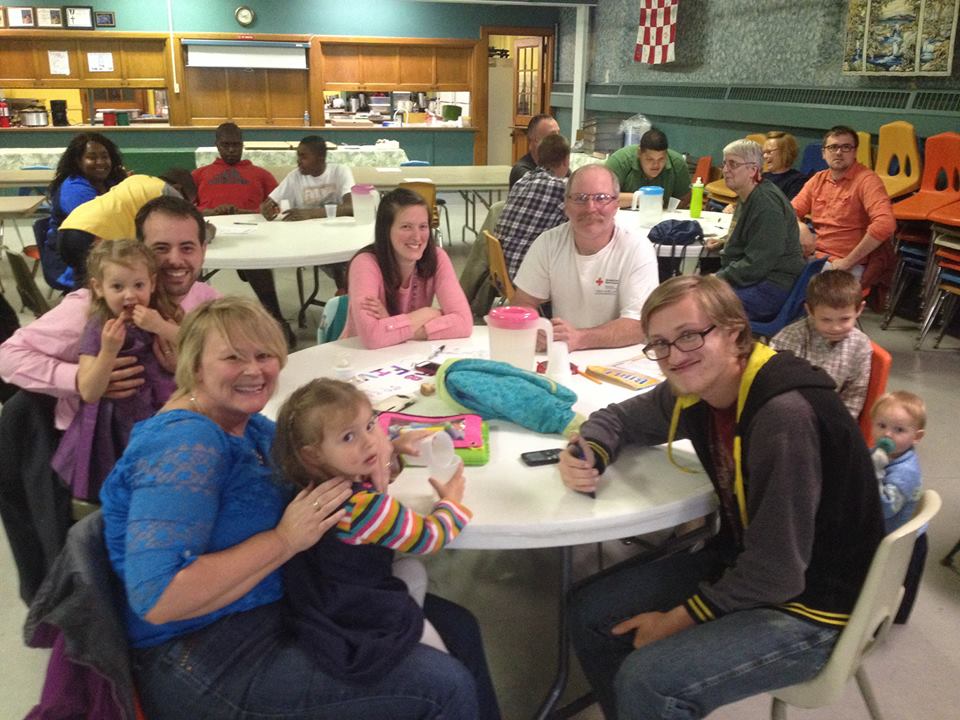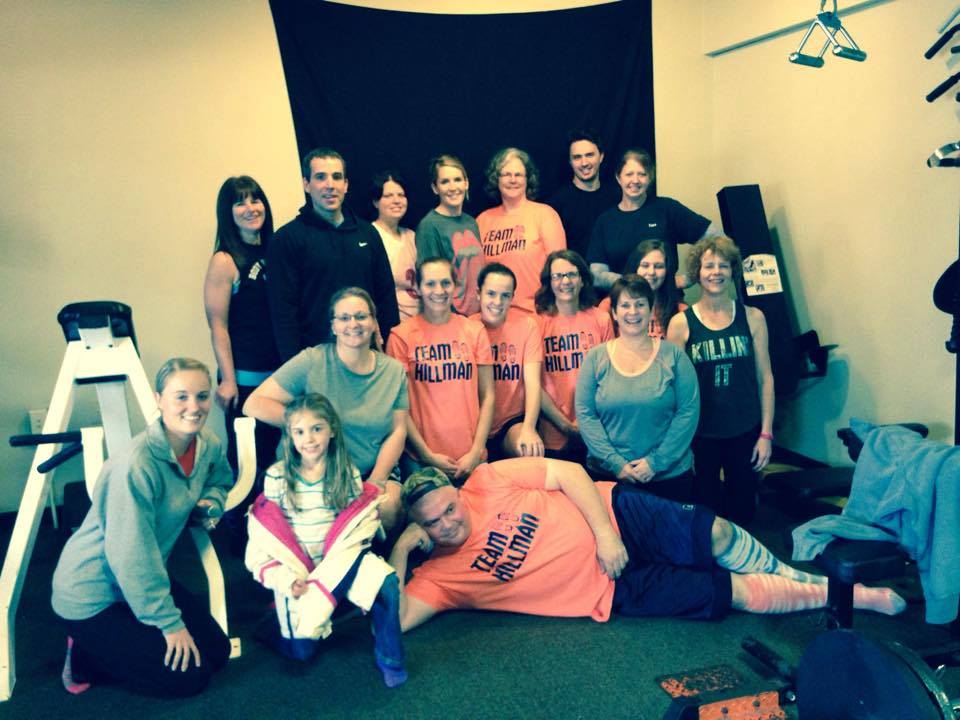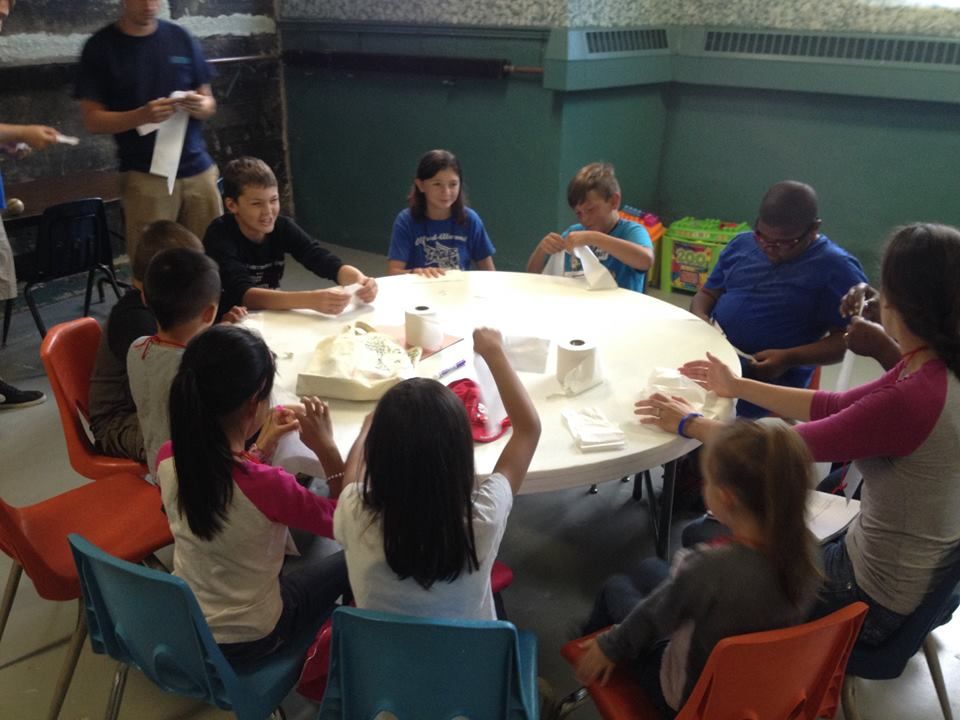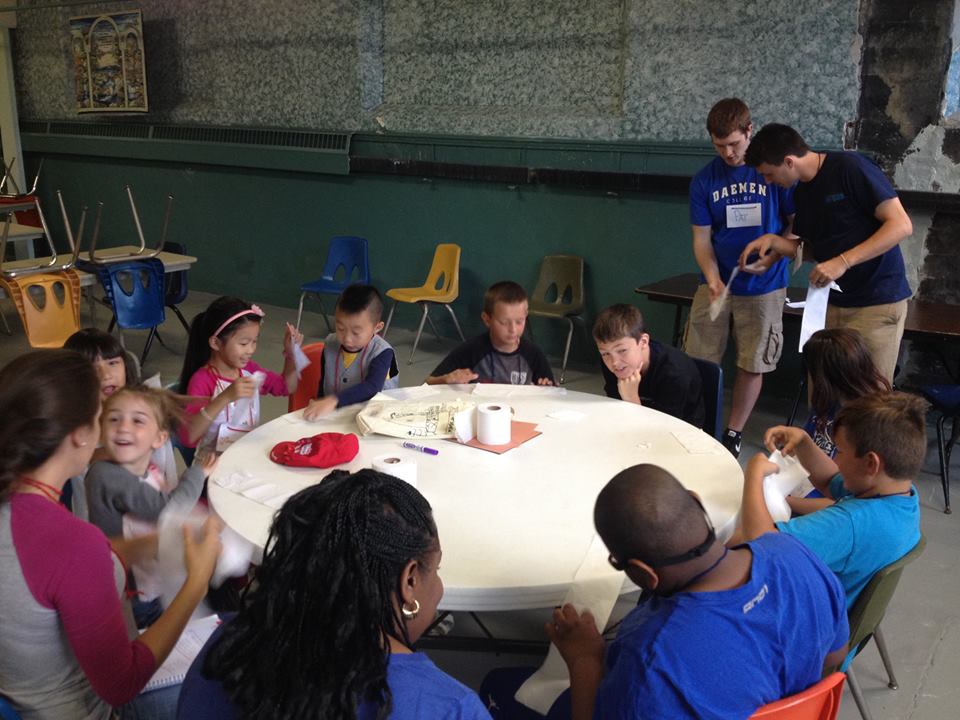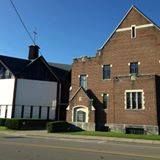When You’re Lonely Our Daily Bread
June 28, 2023
You are with me.
Today's Scripture & Insight:
Psalm 23
At 7 p.m., Hui-Liang was in his kitchen, eating rice and leftover fish balls. The Chua family in the apartment next door was having dinner too, and their laughter and conversation cut through the silence of Hui-Liang’s unit, where he had lived alone since his wife died. He’d learned to live with loneliness; over the years, its stabbing pain had become a dull ache. But tonight, the sight of the one bowl and pair of chopsticks on his table pierced him deeply.
Before he went to bed that night, Hui-Liang read Psalm 23, his favorite psalm. The words that mattered most to him are only four syllables: “You are with me” (v. 4). More than the shepherd’s practical acts of care toward the sheep, it was his steadfast presence and loving gaze over every detail of the life of the sheep (vv. 2−5) that gave Hui-Liang peace.
Just knowing that someone is there, that someone is with us, brings great comfort in those lonely moments. God promises His children that His love will always be with us (Psalm 103:17), and that He’ll never leave us (Hebrews 13:5). When we feel alone and unseen—whether in a quiet kitchen, on the bus going home from work, or even in a crowded supermarket—we can know that the Shepherd’s gaze is always on us. We can say, “You are with me.”
By: Karen Huang
Texts, Troubles, and Triumphs Our Daily Bread
June 14, 2023
We do not belong to those who shrink back . . . but to those who have faith and are saved.
Today's Scripture & Insight:
Hebrews 11:32, 35–40
Jimmy hadn’t allowed the reality of social unrest, danger, and discomfort to keep him from traveling to one of the poorest countries in the world to encourage ministry couples. The steady stream of text messages to our team back home revealed the challenges he encountered. “Okay, boys, activate the prayer line. We’ve gone ten miles in the last two hours. . . . Car has overheated a dozen times.” Transportation setbacks meant that he arrived just before midnight to preach to those who’d waited for five hours. Later we received a text with a different tone. “Amazing, sweet time of fellowship. . . . About a dozen people came forward for prayer. It was a powerful night!”
Faithfully serving God can be challenging. The exemplars of faith listed in Hebrews 11 would agree. Compelled by their faith in God, ordinary men and women faced uncomfortable and unfathomable circumstances. “Some faced jeers and flogging, and even chains and imprisonment” (v. 36). Their faith compelled them to take risks and rely on God for the outcome. The same is true for us. Living out our faith may not take us to risky places far away, but it may well take us across the street or across the campus or to an empty seat in a lunchroom or boardroom. Risky? Perhaps. But the rewards, now or later, will be well worth the risks as God helps us.
By: Arthur Jackson
It’s Empty Now Our Daily Bread
June 13, 2023
How deserted lies the city, once so full of people!
Today's Scripture & Insight:
Lamentations 1:1, 12–13, 16–20
My brothers and our families spent the day moving our parents’ belongings from our childhood home. Late in the afternoon, we went back for one last pickup and, knowing this would be our final time in our family home, posed for a picture on the back porch. I was fighting tears when my mom turned to me and said, “It’s all empty now.” That pushed me over the edge. The house that holds fifty-four years of memories is empty now. I try not to think of it.
The ache in my heart resonates with Jeremiah’s first words of Lamentations: “How deserted lies the city, once so full of people!” (1:1). An important difference is that Jerusalem was empty “because of her many sins” (v. 5). God exiled His people to Babylon because they rebelled against Him and refused to repent (v. 18). My parents weren’t moving because of sin, at least not directly. But ever since Adam’s sin in the garden of Eden, each person’s health has declined over their lifetime. As we age, it’s not unusual for us to downsize into homes that are easier to maintain.
I’m thankful for the memories that made our modest home special. Pain is the price of love. I know the next goodbye won’t be to my parents’ home but to my parents themselves. And I cry. I cry out to Jesus to come, put an end to goodbyes, and restore all things. My hope is in Him.
By: Mike Wittmer
Seasons Our Daily Bread
June 5, 2023
There is a time for everything, and a season for every activity under the heavens.
Today's Scripture & Insight:
Ecclesiastes 3:1–14
I recently came across a helpful word: wintering. Just as winter is a time of slowing down in much of the natural world, author Katherine May uses this word to describe our need to rest and recuperate during life’s “cold” seasons. I found the analogy helpful after losing my father to cancer, which sapped me of energy for months. Resentful of this forced slowing down, I fought against my winter, praying summer’s life would return. But I had much to learn.
Ecclesiastes famously says there’s “a season for every activity under the heavens”—a time to plant and to harvest, to weep and to laugh, to mourn and to dance (3:1–4). I had read these words for years but only started to understand them in my wintering season. For though we have little control over them, each season is finite and will pass when its work is done. And while we can’t always fathom what it is, God is doing something significant in us through them (v. 11). My time of mourning wasn’t over. When it was, dancing would return. Just as plants and animals don’t fight winter, I needed to rest and let it do its renewing work.
“Lord,” a friend prayed, “would You do Your good work in Sheridan during this difficult season.” It was a better prayer than mine. For in God’s hands, seasons are purposeful things. Let’s submit to His renewing work in each one.
By: Sheridan Voysey
Tell the Story Our Daily Bread
May 22, 2023
We proclaim to you what we have seen and heard, so that you also may have fellowship with us.
Today's Scripture & Insight:
1 John 1:1–4
Robert Todd Lincoln, son of US president Abraham Lincoln, was present for three major events—the death of his own father as well as the assassinations of presidents James Garfield and William McKinley.
But consider that the apostle John was present at four of history’s most crucial events: the last supper of Jesus, Christ’s agony in Gethsemane, His crucifixion, and His resurrection. John knew that bearing witness to these events was the ultimate why behind his presence in these moments. In John 21:24, he wrote, “This is the disciple who testifies to these things and who wrote them down. We know that his testimony is true.”
John reaffirmed this in his letter of 1 John. He wrote, “That which was from the beginning, which we have heard, which we have seen with our eyes, which we have looked at and our hands have touched—this we proclaim” (1:1). John felt a compelling duty to share his eyewitness account of Jesus. Why? “We proclaim to you what we have seen and heard,” he said, “so that you also may have fellowship with us” (v. 3).
The events of our lives may be surprising or mundane, but in either case God is orchestrating them so we can bear witness to Him. As we rest in the grace and wisdom of Christ, may we speak for Him in even life’s surprising moments.
Who Am I? Our Daily Bread
May 16, 2023
To all who did receive him . . . [Jesus] gave the right to become children of God.
Today's Scripture & Insight:
John 1:6–13
In 1859, Joshua Abraham Norton declared himself Emperor of the United States. Norton had made—and lost—his fortune in San Francisco shipping, but he wanted a new identity: America’s first emperor. When the San Francisco Evening Bulletin printed “Emperor” Norton’s announcement, most readers laughed. Norton made pronouncements aimed at correcting society’s ills, printed his own currency, and even wrote letters to Queen Victoria asking her to marry him and unite their kingdoms. He wore royal military uniforms designed by local tailors. One observer said Norton looked “every inch a king.” But of course, he wasn’t. We don’t get to make up who we are.
Many of us spend years searching for who we are and wondering what value we possess. We flail, trying to name or define ourselves, when only God can truly tell us the truth about who we are. And, thankfully, He calls us His sons and daughters when we receive salvation in His Son, Jesus. “Yet to all who did receive him,” John writes, “he gave the right to become children of God” (John 1:12). And this identity is purely a gift. We are His beloved “children born not of natural descent, nor of human decision . . . but born of God” (v. 13).
God gives us our name and our identity in Christ. We can stop striving and comparing ourselves to others, because He tells us who we are.
By: Winn Collier
Exploring the Stars Our Daily Bread
May 15, 2023
Lift up your eyes and look to the heavens: Who created all these? He who brings out the starry host one by one.
Today's Scripture & Insight:
Psalm 19:1–6
In 2021, a multination effort led to the launch of the James Webb Space Telescope—deployed nearly a million miles from Earth to better investigate the universe. This marvel will peer into deep space and examine the stars and other celestial wonders.
This is indeed a fascinating astronomical piece of technology, and if everything works, it will provide us with amazing photos and information. But its mission isn’t new. In fact, the prophet Isaiah described searching the stars when he said, “Lift up your eyes and look to the heavens: Who created all these? He who brings out the starry host one by one” (Isaiah 40:26). “Night after night” they speak of our Creator who hurled this imperceptibly immense universe into existence (Psalm 19:2)—and with it the countless luminous bodies that silently grace our night sky (v. 3).
And it’s God Himself who decided how many of the shining objects there are: “He determines the number of the stars and calls them each by name” (Psalm 147:4). When mankind sends complicated, fascinating probes to explore the universe, we can enjoy with spellbound wonder the discoveries they make, because each observation points back to the One who made the solar system and everything beyond it. Yes, the “heavens declare the glory of God” (19:1)—stars and all.
By: Dave Branon
Operating with Prayer Our Daily Bread
May 4, 2023
Jehoshaphat resolved to inquire of the Lord.
Today's Scripture & Insight:
2 Chronicles 20:1–12
When my son needed orthopedic surgery, I was grateful for the doctor who performed the operation. The doctor, who was nearing retirement, assured us he’d helped thousands of people with the same problem. Even so, before the procedure, he prayed and asked God to provide a good outcome. And I’m so grateful He did.
Jehoshaphat, an experienced national leader, prayed too during a crisis. Three nations had united against him, and they were coming to attack his people. Although he had more than two decades of experience, he decided to ask God what to do. He prayed, “[We] will cry out to you in our distress, and you will hear us and save us” (2 Chronicles 20:9). He also asked for guidance, saying, “We do not know what to do, but our eyes are on you” (v. 12).
Jehoshaphat’s humble approach to the challenge opened his heart to God’s involvement, which came in the form of encouragement and divine intervention (vv. 15–17, 22). No matter how much experience we have in certain areas, praying for help develops a holy reliance on God. It reminds us that He knows more than we do, and He’s ultimately in control. It puts us in a humble place—a place where He’s pleased to respond and support us, no matter what the outcome may be.
New Paragraph
Remembering to Praise Our Daily Bread
April 17, 2023
I will tell of the kindnesses of the Lord.
Today's Scripture & Insight:
Isaiah 63:7–9
When our congregation built our first building, people wrote thankful reminders on the wall studs and concrete floors before the interior of the building was finished. Pull back the drywall from the studs and you’ll find them there. Verse after verse from Scripture, written beside prayers of praise like “You are so good!” We left them there as a witness to future generations that regardless of our challenges, God had been kind and taken care of us.
We need to remember what God has done for us and tell others about it. Isaiah exemplified this when he wrote, “I will tell of the kindnesses of the Lord, the deeds for which he is to be praised, according to all the Lord has done for us” (Isaiah 63:7). Later, the prophet also recounts God’s compassion for His people throughout history, even telling how “in all their distress he too was distressed” (v. 9). But if you keep reading the chapter, you’ll notice Israel is again in a time of trouble, and the prophet longs for God’s intervention.
Remembering God’s past kindnesses helps when times are hard. Challenging seasons come and go, but His faithful character never changes. As we turn to Him with grateful hearts in remembrance of all He’s done, we discover afresh that He’s always worthy of our praise.
By: James Banks
Tears of Praise Our Daily Bread
April 13, 2023
Sing the praises of the Lord, you his faithful people; praise his holy name.
Today's Scripture & Insight:
Psalm 30
Years ago, I cared for my mom as she was in hospice. I thanked God for the four months He allowed me to serve as her caregiver and asked Him to help me through the grieving process. I often struggled to praise God as I wrestled with my mixed emotions. But as my mom breathed her last breath and I wept uncontrollably, I whispered, “Hallelujah.” I felt guilty for praising God in that devastating moment until, years later, I took a closer look at Psalm 30.
In David’s song “for the dedication of the temple,” he worshiped God for His faithfulness and mercy (vv. 1–3). He encouraged others to “praise his holy name” (v. 4). Then David explored how intimately God entwines hardship and hope (v. 5). He acknowledged times of grief and rejoicing, times of feeling secure and being dismayed (vv. 6–7). His cries for help remained laced with confidence in God (vv. 7–10). The echo of his praise wove through David’s moments of wailing and dancing, grief and joy (v. 11). As if acknowledging the mystery and complexity of enduring affliction and anticipating God’s faithfulness, David proclaimed his endless devotion to God (v. 12).
Like David, we can sing, “Lord my God, I will praise you forever” (v. 12). Whether we’re happy or hurting, God can help us declare our trust in Him and lead us to worship Him with joyful shouts and tears of praise.
By: Xochitl Dixon
God Speaking to Us Our Daily Bread
April 12, 2023
Then Samuel said, “Speak, for your servant is listening.”
Today's Scripture & Insight:
1 Samuel 3:3–10
I received a phone call from an unknown number. Often, I let those calls go to voicemail, but this time I picked up. The random caller asked politely if I had just a minute for him to share a short Bible passage. He quoted Revelation 21:3–5 about how God “will wipe every tear from their eyes.” He talked about Jesus, how he was our assurance and hope. I told him I already know Jesus as my personal Savior. But the caller wasn’t aiming to “witness” to me. Instead, he simply asked if he could pray with me. And he did, asking God to give me encouragement and strength.
That call reminded me of another “call” in Scripture—God called out to the young boy Samuel in the middle of the night (1 Samuel 3:4–10). Three times Samuel heard the voice, thinking it was the elderly priest Eli. The final time, following Eli’s instruction, Samuel realized that God was calling him: “Speak, for your servant is listening” (v. 10). Likewise, through our days and nights, God may be speaking to us. We need to “pick up,” which might mean spending more time in His presence and listening for His voice.
I then thought of “the call” in another way. What if we sometimes are the messenger of God’s words to someone else? We might feel we have no way of helping others. But as God guides us, we could phone a friend and ask, “Would it be okay if I just prayed with you today?”
By: Kenneth Petersen
Seize the Opportunity Our Daily Bread
April 11, 2023
Do the work of an evangelist.
Today's Scripture & Insight:
2 Timothy 4:1–5
While waiting to enter the university, twenty-year-old Shin Yi decided to commit three months of her break to serving in a youth mission organization. It seemed like an odd time to do this, given the COVID-19 restrictions that prevented face-to-face meetings. But Shin Yi soon found a way. “We couldn’t meet up with students on the streets, in shopping malls, or fast-food centers like we usually did,” she shared. “But we continued to keep in touch with the Christian students via Zoom to pray for one another and with the non-believers via phone calls.”
Shin Yi did what the apostle Paul encouraged Timothy to do: “Do the work of an evangelist” (2 Timothy 4:5). Paul warned that people would find teachers who would tell them what they wanted to hear and not what they needed to hear (vv. 3–4). Yet Timothy was called to take courage and “be prepared in season and out of season.” He was to “correct, rebuke and encourage—with great patience and careful instruction” (v. 2).
Though not all of us are called to be evangelists or preachers, each one of us can play a part in sharing our faith with those around us. Unbelievers are perishing without Christ. Believers need strengthening and encouragement. With God’s help, let’s proclaim His good news whenever and wherever we can.
By: Poh Fang Chia
Strength in Weakness Our Daily Bread
April 10, 2023
The Lord said to Gideon, “You have too many men.”
Today's Scripture & Insight:
Judges 7:1–9
When my son was nearly three, I needed an operation that would require a month or more of recovery. Prior to the procedure, I imagined myself in bed while stacks of dirty dishes accumulated in the sink. I wasn’t sure how I’d take care of an active toddler and couldn’t picture myself standing in front of the stove to cook our meals. I dreaded the impact my weakness would have on the rhythm of our lives.
God intentionally weakened Gideon’s forces before his troops confronted the Midianites. First, those who were afraid were allowed to leave—twenty-two thousand men went home (Judges 7:3). Then, of the ten thousand who remained, only those who scooped water into their hands to drink could stay. Just three hundred men were left, but this disadvantage prevented the Israelites from relying on themselves (vv. 5–6). They couldn’t say, “My own strength has saved me” (v. 2).
Many of us experience times when we feel drained and powerless. When this happened to me, I realized how much I needed God. He encouraged me inwardly through His Spirit and outwardly through the helpfulness of friends and family. I had to let go of my independence for a while, but this taught me how to lean more fully on God. Because “[His] power is made perfect in weakness” (2 Corinthians 12:9), we can have hope when we can’t meet our needs on our own.
God Had Other Plans Our Daily Bread
March 29, 2023
Pharaoh’s daughter . . . named him Moses, saying, “I drew him out of the water.”
Today's Scripture & Insight:
Exodus 2:1–10
Their precise ages are unknown. One was found on the steps of a church; the other knew only that she’d been raised by nuns. Born in Poland during World War II, for nearly eighty years neither Halina nor Krystyna knew about each other. Then DNA test results revealed them to be sisters and led to a joyful reunion. It also revealed their Jewish heritage, explaining why they’d been abandoned. Evil people had marked the girls for death simply because of their identity.
Imagining a frightened mother who leaves her threatened children where they might be rescued calls to mind the story of Moses. As a Hebrew baby boy, he was marked for genocide (see Exodus 1:22). His mother strategically placed him in the Nile (2:3), giving him a chance for survival. God had a plan she couldn’t have dreamed of—to rescue His people through Moses.
The story of Moses points us to the story of Jesus. As Pharaoh had sought the murder of Hebrew boys, Herod ordered the slaughter of all the baby boys in Bethlehem (see Matthew 2:13–16).
Behind all such hatred—especially against children—is our enemy the devil. Such violence doesn’t take God by surprise. He had plans for Moses, and He has plans for you and me. And through His Son, Jesus, He’s revealed His biggest plan—to rescue and restore those who once were His enemies.
By: Tim Gustafson
God Is Listening Our Daily Bread
March 27, 2023
The prayer of a righteous person is powerful and effective.
Today's Scripture & Insight:
James 5:13–16
Chuck, an actor and martial artist, honored his mother on her hundredth birthday by sharing how instrumental she’d been in his spiritual transformation. “Mom has been an example of perseverance and faith,” he wrote. She raised three boys on her own during the Great Depression; suffered the death of two spouses, a son, a stepson, and grandchildren; and endured many surgeries. “[She] has prayed for me all my life, through thick and thin.” He continued, “When nearly losing my soul to Hollywood, she was back home praying for my success and salvation.” He concluded, “I thank [my mom] for helping God to make me all I can and should be.”
The prayers of Chuck’s mother helped him to find salvation—and a godly wife. She prayed fervently for her son, and God heard her prayers. We don’t always get our prayers answered the way we’d like, so we cannot use prayer as a magic wand. However, James assures us that “the prayer of a righteous person is powerful and effective” (5:16). Like this mom, we’re to continue to pray for the sick and those in trouble (vv. 13–15). When, like her, we commune with God through prayer, we find encouragement and peace and the assurance that the Spirit is at work.
Does someone in your life need salvation or healing or help? Lift your prayers to God in faith. He’s listening.
By: Alyson Kieda
Permission to Rest Our Daily Bread
March 22, 2023
God had finished the work . . . so on the seventh day he rested from all his work.
Today's Scripture & Insight:
Genesis 1:31–2:2
We sat atop some beach boulders, my friend Soozi and I, watching the foam send up sea spray in arched curls. Looking at the incoming waves crashing one after another against the rocks, Soozi announced, “I love the ocean. It keeps moving so I don’t have to!”
Isn’t it interesting how some of us feel we need “permission” to pause from our work to rest? Well, that’s just what our good God offers us! For six days, God spun the earth into existence, creating light, land, vegetation, animals, and humans. Then on the seventh day, He rested (Genesis 1:31–2:2). In the Ten Commandments, God listed His rules for healthy living to honor Him (Exodus 20:3–17), including the command to remember the Sabbath as a day of rest (vv. 8–11). In the New Testament, we see Jesus healing all the sick of the town (Mark 1:29–34) and then early the next morning retreating to a solitary place to pray (v. 35). Purposefully, our God both worked and rested.
The rhythm of God’s provision in work and His invitation to rest reverberates around us. Spring’s planting yields growth in summer, harvest in autumn, and rest in winter. Morning, noon, afternoon, evening, night. God orders our lives for both work and rest, offering us permission to do both.
By: Elisa Morgan
Spiritual Renewal Our Daily Bread
March 21, 2023
Though outwardly we are wasting away, yet inwardly we are being renewed day by day.
Today's Scripture & Insight:
2 Corinthians 4:16–18
Chinese medicine has practiced pearl powder exfoliation for thousands of years, using ground pearls to scrub away dead cells resting at the top of the skin. In Romania, rejuvenating therapeutic mud has become a widely sought-after exfoliant that’s purported to make skin youthful and glowing. All over the world, people use body care practices they believe will renew even the dullest of skin.
The tools we’ve developed to maintain our physical bodies, however, can only bring us temporary satisfaction. What matters more is that we remain spiritually healthy and strong. As believers in Jesus, we’re given the gift of spiritual renewal through Him. The apostle Paul wrote, “Though outwardly we are wasting away, yet inwardly we are being renewed day by day” (2 Corinthians 4:16). The challenges we face daily can weigh us down when we hold on to things like fear, hurt, and anxiety. Spiritual renewal comes when we “fix our eyes not on what is seen, but on what is unseen” (v. 18). We do this by turning our daily worries over to God and praying for the fruit of the Holy Spirit—including love, joy, and peace—to emerge anew in our lives (Galatians 5:22–23). When we release our troubles to God and allow His Spirit to radiate through us each day, He restores our souls.
By: Kimya Loder
Catching Contentment Our Daily Bread
March 20, 2023
I am like a weaned child with its mother; like a weaned child I am content.
Today's Scripture & Insight:
Psalm 131
In a psychiatrist’s advice column, he responded to a reader named Brenda, who lamented that her ambitious pursuits had left her discontented. His words were blunt. Humans aren’t designed to be happy, he said, “only to survive and reproduce.” We’re cursed to chase the “teasing and elusive butterfly” of contentment, he added, “not always to capture it.”
I wonder how Brenda felt reading the psychiatrist’s nihilistic words and how different she may have felt had she read Psalm 131 instead. In its words, David gives us a guided reflection on how to find contentment. He begins in a posture of humility, putting his kingly ambitions aside, and while wrestling life’s big questions is important, he puts those aside too (v. 1). Then he quiets his heart before God (v. 2), entrusting the future into His hands (v. 3). The result is beautiful: “like a weaned child with its mother,” he says, “I am content” (v. 2).
In a broken world like ours, contentment will at times feel elusive. In Philippians 4:11–13, the apostle Paul said contentment is something to be learned. But if we believe we’re only designed to “survive and reproduce,” contentment will surely be an uncatchable butterfly. David shows us another way: catching contentment through quietly resting in God’s presence.
By: Sheridan Voysey
Still Before God Our Daily Bread
March 15, 2023
Be still, and know that I am God.
Today's Scripture & Insight:
Psalm 46
The first photograph of a living person was taken by Louis Daguerre in 1838. The photo depicts a figure on an otherwise empty avenue in Paris in the middle of an afternoon. But there’s an apparent mystery about it; the street and sidewalks should have been bustling with the traffic of carriages and pedestrians at that time of day, yet none can be seen.
The man wasn’t alone. People and horses were there on the busy Boulevard du Temple, the popular area where the photo was taken. They just didn’t show up in the picture. The exposure time to process the photograph (known as a Daguerreotype) took seven minutes to capture an image, which had to be motionless during that time. It appears that the man on the sidewalk was the sole person photographed because he was the only one standing still—he was having his boots shined.
Sometimes stillness accomplishes what motion and effort can’t. God tells His people in Psalm 46:10, “Be still and know that I am God.” Even when nations are “in uproar” (v. 6) and “the earth” shakes (v. 2), those who quietly trust in Him will discover in Him “an ever-present help in trouble” (v. 1).
The Hebrew verb rendered “be still” can also be translated “cease striving.” When we rest in God instead of relying on our limited efforts, we discover Him to be our unassailable “refuge and strength” (v. 1).
By: James Banks
Game of Change Our Daily Bread
March 14, 2023
Love your enemies.
Today's Scripture & Insight:
Luke 6:27–31
The handshake spoke volumes. On a March night in 1963, two college basketball players—one Black, one White—defied the hate of segregationists and shook hands, marking the first time in Mississippi State’s history that its all-White men’s team played against an integrated team. To compete in the “game of change” against Loyola University Chicago in a national tournament, the Mississippi State squad avoided an injunction to stop them by using decoy players to leave their state. Loyola’s Black players, meantime, had endured racial slurs all season, getting pelted with popcorn and ice, and faced closed doors while traveling.
Yet the young men played. The Loyola Ramblers beat the Mississippi State Bulldogs 61–51, and Loyola eventually went on to win the NCAA national championship. But what really won that night? A move from hate toward love. As Jesus taught, “Love your enemies, do good to those who hate you” (Luke 6:27).
God’s instruction was a life-changing concept. To love our enemies as Christ taught, we must obey His revolutionary mandate to change. As Paul wrote, “If anyone is in Christ, the new creation has come: The old has gone, the new is here!” (2 Corinthians 5:17). But how does His new way in us defeat the old? With love. Then, in each other, we can finally see Him.
By: Patricia Raybon
Running for What Matters Our Daily Bread
March 13, 2023
Let us run with perseverance the race marked out for us.
Today's Scripture & Insight:
Hebrews 11:39–12:3
It was impossible not to tear up at my friend Ira’s status update. Posted in 2022 only days after she’d left her home in Kyiv, the besieged capital of Ukraine, she shared a past image of herself lifting her country’s flag after completing a running event. She wrote, “We are all running to the best of our abilities a marathon called life. Let’s run it these days even better than that. With something that never dies in our hearts.” In the following days, I saw the many ways my friend continued to run that race, as she kept us updated on how to pray for and support those suffering in her country.
Ira’s words brought new depth to the call in Hebrews 12 for believers to “run with perseverance” (v. 1). That call follows chapter 11’s moving account of the heroes of faith, the “great cloud of witnesses” (12:1) who’d lived with courageous, persistent faith—even at risk to their lives (11:33–38). Even though they “only saw . . . and welcomed [God’s promises] from a distance” (v. 13), they were living for something eternal, for something that never dies.
All believers in Jesus are called to live that same way because the shalom—the flourishing and peace—of God’s kingdom is worth giving our all for. Christ’s example and power is what sustains us (12:2–3).
By: Monica La Rose
Never Too Far Our Daily Bread
March 7, 2023
When you have turned back, strengthen your brothers.
Today's Scripture & Insight:
Luke 22:31–34, 54–62
Raj had trusted Jesus as Savior in his youth, but soon afterward, he drifted from the faith and led a life apart from God. Then one day, he made the decision to renew his relationship with Jesus and go back to church—only to be scolded by a woman who berated him for being absent for all these years. The scolding added to Raj’s sense of shame and guilt for his years of drifting. Am I beyond hope? he wondered. Then he recalled how Christ had restored Simon Peter (John 21:15–17) even though he’d denied Him (Luke 22:34, 60–61).
Whatever scolding Peter might have expected, all he received was forgiveness and restoration. Jesus didn’t even mention Peter’s denial but instead gave him a chance to reaffirm his love for Christ and take care of His followers (John 21:15–17). Jesus’ words before Peter disowned Him were being fulfilled: “When you have turned back, strengthen your brothers” (Luke 22:32).
Raj asked God for that same forgiveness and restoration, and today he’s not only walking closely with Jesus but serving in a church and supporting other believers as well. No matter how far we’ve strayed from God, He’s always ready not only to forgive us and welcome us back but also to restore us so we can love, serve, and glorify Him. We’re never too far from God: His loving arms are wide open.
By: Leslie Koh
All Alone? Our Daily Bread
March 6, 2023
God heard the boy crying.
Today's Scripture & Insight:
Genesis 21:9–19
Sue’s family was falling apart before her eyes. Her husband had suddenly left the home, and she and her children were confused and angry. She asked him to go for marriage counseling with her, but he wouldn’t because he claimed the problems were hers. Panic and hopelessness set in when she realized he might never come back. Would she be able to care for herself and her children alone?
Hagar, a servant of Abraham and Sarah, faced those thoughts as well. Impatient for God to give them a son as promised (Genesis 12, 15), Sarah gave Hagar to her husband, and Hagar gave birth to Ishmael (16:1–4, 15). However, when God fulfilled His promise and Sarah gave birth to Isaac, family tensions erupted such that Abraham sent Hagar away with their son Ishmael with just some water and food (21:–21). Can you imagine her desperation? Soon they ran out of provisions in the desert. Not knowing what to do and not wanting to see her son die, Hagar put Ishmael under a bush and walked a distance away. They both began to sob. But “God heard the boy crying” (v. 17). He heard their cries, provided for their needs, and was with them.
Times of desperation when we feel all alone cause us to cry out to God. What a comfort to know that during those moments and throughout our lives, He hears us, provides for us, and stays near to us.
By: Anne Cetas
Finding Rest in Jesus Our Daily Bread
March 1, 2023
Come to me, all you who are weary and burdened, and I will give you rest.
Today's Scripture & Insight:
Matthew 11:28–30
The restless soul is never satisfied with wealth and success. A deceased country music icon could testify to this truth. He had nearly forty of his albums appear on Billboard's country music top-ten charts and just as many number one singles. But he also had multiple marriages and spent time in prison. Even with all his achievements, he once lamented: “There’s a restlessness in my soul that I’ve never conquered, not with motion, marriages or meaning. . . . It’s still there to a degree. And it will be till the day I die.” Sadly, he could have found rest in his soul before his life ended.
Jesus invites all those, like this musician, who have become weary from toiling in sin and its consequences to come to Him personally: “Come to me,” He says. When we receive salvation in Jesus, He will take the burdens from us and “give [us] rest” (Matthew 11:28). The only requirements are to believe in Him and then to learn from Him how to live the abundant life He provides (John 10:10). Taking on the yoke of Jesus’ discipleship results in our finding “rest for [our] souls” (Matthew 11:29).
When we come to Jesus, He doesn’t abbreviate our accountability to God. He gives peace to our restless souls by providing us a new and less burdensome way to live in Him. He gives us true rest.
By: Marvin Williams
A Baboon, a Donkey, and Me Our Daily Bread
February 28, 2022
Then the Lord opened the donkey’s mouth.
Today's Scripture & Insight:
Numbers 22:21–31
Jack knew how to put trains on the right track. In nine years of work, he never missed a track switch as locomotives drew near the Uitenhage, South Africa, station, indicating by their whistles the direction they were to go.
Jack was also a chacma baboon. He was cared for by railway signalman James Wide, and Jack in turn took care of James. Wide had lost both his legs in a fall between moving rail cars. He trained Jack to help him with tasks around the house and soon Jack assisted him at work also, learning how to respond to the incoming trains’ signals by pulling corresponding levers for their tracks.
The Bible tells of another animal that helped someone in a surprising way—Balaam’s donkey. Balaam was a pagan prophet serving a king who intended to harm Israel. As the prophet was riding his donkey en route to assist the king, “the Lord opened the donkey’s mouth” and it spoke to Balaam (Numbers 22:28). The donkey’s speech was part of the way God opened “Balaam’s eyes” (v. 31), warned him of imminent danger, and kept him from harming His people.
A railway baboon? A talking donkey? Why not? If God can use these amazing animals for good purposes, it’s not at all far-fetched to believe He can use you and me as well. Looking to Him and seeking His strength, we can accomplish more than we ever thought possible.
By: James Banks
New Paragraph
Protect Your Heart Our Daily Bread
Feb. 21, 2023
Above all else, guard your heart, for everything you do flows from it.
Today's Scripture & Insight:
Proverbs 4:20–27
Hungarian-born mathematician Abraham Wald lent his skills to the World War II efforts after coming to the United States in 1938. The military was looking for ways to protect its aircraft from enemy fire, so Wald and his colleagues at the Statistical Research Group were asked to figure out how to better protect military aircraft to defend against enemy fire. They began by examining returning aircraft to see where they were most damaged. But Wald is credited with the keen insight that damage on returning aircraft represented only where a plane could be hit and still survive. He realized that areas most in need of additional armor would be found on planes that had crashed. Planes hit in the most vulnerable part—the engine—had gone down and therefore couldn’t be examined.
Solomon teaches us about protecting our most vulnerable part—our heart. He instructs his son to “guard [his] heart” because from it everything else flows (Proverbs 4:23). God’s instructions guide us through life, steering us away from poor decisions and teaching us where to focus our attention.
If we armor our heart by heeding His instructions, we’ll better “keep [our feet] from evil” and remain steadfast on our journey with God (v. 27). We venture into enemy territory every day, but with His wisdom guarding our hearts, we can stay focused on our mission to live well for God’s glory.
By: Kirsten Holmberg
The Good Shepherd Our Daily Bread
February 7, 2023
As a shepherd looks after his scattered flock . . . , so will I look after my sheep.
Today's Scripture & Insight:
Ezekiel 34:11–16
When Pastor Warren heard that a man in his church had deserted his wife and family, he asked God to help him meet the man as if by accident so they could chat. And He did! When Warren walked into a restaurant, he spotted the gentleman in a nearby booth. “Got some room for another hungry man?” he asked, and soon they were sharing deeply and praying together.
As a pastor, Warren was acting as a shepherd for those in his church community, even as God through the prophet Ezekiel said He would tend His flock. God promised to look after His scattered sheep, rescuing them and gathering them together (Ezekiel 34:12–13). He would “tend them in a good pasture” and “search for the lost and bring back the strays”; He would “bind up the injured and strengthen the weak” (vv. 14–16). God’s love for His people reverberates through each of these images. Though Ezekiel’s words anticipate God’s future actions, they reflect the eternal heart of the God and Shepherd who would one day reveal Himself in Jesus.
No matter our situation, God reaches out to each of us, seeking to rescue us and sheltering us in a rich pasture. He longs for us to follow the Good Shepherd, He who lays down His life for His sheep (see John 10:14–15).
By: Amy Boucher Pye
Sustainer of Blessings Our Daily Bread
January 31, 2023
Remember the Lord your God.
Today's Scripture & Insight:
Deuteronomy 8:10–18
On January 15, 1919, a huge molasses tank burst in Boston. A fifteen-foot wave of more than two million gallons of molasses careened through the street at over 30 mph, sweeping away railcars, buildings, people, and animals. Molasses might seem harmless enough, but that day it was deadly: 21 people lost their lives with more than 150 injured.
Sometimes even good things—like molasses—can overwhelm us unexpectedly. Before the Israelites entered the land God promised them, Moses warned the people to be careful not to take credit for the good things they’d receive: “When you eat and are satisfied, when you build fine houses and settle down, and when your herds and flocks grow large and your silver and gold increase . . . , then your heart will become proud and you will forget the Lord your God.” They weren’t to attribute this wealth to their own strength or capabilities. Instead, Moses said, “Remember the Lord your God, for it is he who gives you the ability to produce wealth” (Deuteronomy 8:12–14, 17–18).
All good things—including physical health and the skills needed to earn a living—are blessings from the hand of our loving God. Even when we’ve worked hard, it’s He who sustains us. Oh, to hold our blessings with open hands, that we may gratefully praise God for His kindness to us!
By: James Banks
Fighting “Flashy” Things Our Daily Bread
January 25, 2023
Start children off on the way they should go, and even when they are old they will not turn from it.
Today's Scripture & Insight:
Proverbs 22:1–6
In the 1960s-era TV series The Andy Griffith Show, a man tells Andy he should let his son Opie decide how he wants to live. Andy disagrees: “You can’t let a young’un decide for himself. He’ll grab at the first flashy thing with shiny ribbons on it. Then, when he finds out there’s a hook in it, it’s too late. Wrong ideas come packaged with so much glitter that it’s hard to convince them that other things might be better in the long run.” He concludes that it’s important for parents to model right behavior and help “keep temptation away.”
Andy’s words are related to the wisdom found in Proverbs: “Start children off on the way they should go, and even when they are old they will not turn from it” (22:6). Although many may read these words as a promise, they're really a guide. All of us are called to make our own decision to believe in Jesus. But we can help lay a biblical foundation through our love for God and Scripture. And we can pray that as the little ones under our care mature, they choose to receive Christ as Savior and walk in His ways and not “in the paths of the wicked” (v. 5).
Our own victory over “flashy things” through the Holy Spirit’s enabling is also powerful testimony. Jesus’ Spirit helps us to withstand temptation and molds our lives into examples worth imitating.
By: Alyson Kieda
Never Late Our Daily Bread
January 17, 2023
Your brother will rise again.
Today's Scripture & Insight:
John 11:17–27
As a visitor to a small West African town, my American pastor made sure to arrive on time for a 10 a.m. Sunday service. Inside the humble sanctuary, however, he found the room empty. So he waited. One hour. Two hours. Finally, about 12:30 p.m., when the local pastor arrived after his long walk there—followed by some choir members and a gathering of friendly town people—the service began “in the fullness of time,” as my pastor later said. “The Spirit welcomed us, and God wasn’t late.” My pastor understood the culture was different here for its own good reasons.
Time seems relative, but God’s perfect, on-time nature is affirmed throughout the Scriptures. Thus, after Lazarus got sick and died, Jesus arrived four days later, with Lazarus’ sisters asking why. “Lord,” Martha said to Jesus, “if you had been here, my brother would not have died” (John 11:21). We may think the same, wondering why God doesn’t hurry to fix our problems. Better instead to wait by faith for His answers and power.
As theologian Howard Thurman wrote, “We wait, our Father, until at last something of thy strength becomes our strength, something of thy heart becomes our heart, something of thy forgiveness becomes our forgiveness. We wait, O God, we wait.” Then, as with Lazarus, when God responds, we’re miraculously blessed by what wasn’t, after all, a delay.
By: Patricia Raybon
Out of the Lions’ Den Our Daily Bread
January 11, 2023
My God sent his angel, and he shut the mouths of the lions.
Today's Scripture & Insight:
Daniel 6:10–23
When Taher and his wife, Donya, became believers in Jesus, they knew they risked persecution in their home country. Indeed, one day Taher was blindfolded, handcuffed, imprisoned, and charged with apostasy. Before he appeared at trial, he and Donya agreed that they wouldn’t betray Jesus.
What happened at the sentencing amazed him. The judge said, “I don’t know why, but I want to take you out of the whale’s and lion’s mouths.” Then Taher “knew that God was acting”; he couldn’t otherwise explain the judge referencing two passages in the Bible (see Jonah 2; Daniel 6). Taher was released from prison and the family later found exile elsewhere.
Taher’s surprising release echoes the story of Daniel. A skilled administrator, he was going to be promoted, which made his colleagues jealous (Daniel 6:3–5). Plotting his downfall, they convinced King Darius to pass a law against praying to anyone other than the king—which Daniel ignored. King Darius had no choice but to throw him to the lions (v. 16). But God “rescued Daniel” and saved him from death (v. 27), even as He saved Taher through the judge’s surprising release.
Many believers today suffer for following Jesus, and sometimes they even are killed. When we face persecution, we can deepen our faith when we understand that God has ways we can’t even imagine. Know that He’s with you in whatever battles you face.
By: Amy Boucher Pye
Granny Whale Our Daily Bread
December 23, 2022
My mouth will tell of your righteous deeds.
Today's Scripture & Insight:
Psalm 71:15–24
An orca whale, who researchers have named “Granny,” apparently knew the importance of her role in the life of her “grandbaby whale.” The young whale’s mother had recently died, and the orphaned whale was not yet old enough to thrive without protection and support. Granny, though in her eighties (or older), came alongside to teach him what he needed to know to survive. Granny corralled some fish for the younger whale instead of consuming them herself, so he would not only have a meal but would also learn what to eat and where to find the salmon he’d need to live.
We too have the distinct honor and joy of passing on what we know—we can share about the wonderful works and character of God with those coming after us. The aging psalmist asks God to allow him to “declare [His] power to the next generation” (Psalm 71:18). He earnestly wishes to share with others what he knows of God—His “righteous deeds” and “saving acts”—that we need to flourish (v. 15).
Even if we don’t have the gray hairs of old age (v. 18), declaring how we’ve experienced the love and faithfulness of God can benefit someone on their journey with Him. Our willingness to share that wisdom might just be what that person needs to live and thrive in Christ even in adversity (v. 20).
By: Kirsten Holmberg
Bending Low Our Daily Bread
December 22, 2022
The Father of compassion and the God of all comfort . . . comforts us in all our troubles.
Today's Scripture & Insight:
2 Corinthians 1:3–11
A young mom followed behind her daughter, who pedaled her tiny bike as fast as her little legs could go. But picking up more speed than she wanted, the little girl suddenly rolled off the bike and cried that her ankle hurt. Her mom quietly got down on her knees, bent down low, and kissed it to “make the pain go away.” And it worked! The little girl jumped up, climbed back on her bike, and pedaled on. Don’t you wish all our pains could go away that easily!
The apostle Paul experienced the comfort of God in his continual struggles yet kept going. He listed some of those trials in 2 Corinthians 11:23–29: floggings, beatings, stonings, sleep deprivation, hunger, concerns for all the churches. He learned intimately that God is “the Father of compassion and the God of all comfort” (1:3) or as another version translates it: “He is the Father who gives tender love” (nirv). Much like a mom comforting her child, God bends down low to tenderly care for us in our pain.
God’s loving ways of comforting us are many and varied. He may give us a Scripture verse that encourages us to continue on, or He may have someone send a special note or prompt a friend to give us a call that touches our spirit. While the struggle may not go away, because God bends down low to help us, we can get up and pedal on.
By: Anne Cetas
Lighten the Load Our Daily Bread
December 9, 2022
Carry each other’s burdens, and in this way you will fulfill the law of Christ.
Today's Scripture & Insight:
Galatians 6:1–10
When the women in our newly formed Bible study faced a series of tragedies, we suddenly found ourselves sharing deeply personal experiences. Facing the loss of a father, the pain of a wedding anniversary after divorce, the birth of a child who was completely deaf, the experience of racing to bring a child to the emergency room—it was too much for anyone to carry alone. Each person’s vulnerability led to more transparency. We cried and prayed together, and what started as a group of strangers became a group of close friends in a matter of weeks.
As part of the church body, believers in Jesus are able to come alongside people in their suffering in a deep and personal way. The relational ties that bind together brothers and sisters in Christ aren’t dependent on the length of time we’ve known each other or the things we have in common. Instead, we do what Paul calls “[carrying] each other’s burdens” (Galatians 6:2). Relying on God’s strength, we listen, we empathize, we help where we can, and we pray. We can look for ways to “do good to all people, especially to those who belong to the family of believers” (v. 10). Paul says that when we do so, we fulfill the law of Christ (v. 2): to love God and love our neighbor as ourselves. The burdens of life can be heavy, but He’s given us our church family to lighten the load.
By: Karen Pimpo
Fast-Food Encouragement Our Daily Bread
December 8, 2022
May you be richly rewarded by the Lord . . . under whose wings you have come to take refuge.
Today's Scripture & Insight:
Ruth 2:15–20
Maria carried her fast-food lunch to an empty table. As she bit into her burger, her eyes locked on those of a young man seated several tables away. His clothes were soiled, his hair hung limply, and he clutched at an empty paper cup. Clearly, he was hungry. How could she help? A gift of cash seemed unwise. If she bought a meal and presented it to him, might he be embarrassed?
Just then Maria remembered the story of Ruth where Boaz, a wealthy landowner, invited the impoverished immigrant widow to glean from his fields. He ordered his men: “Let her gather among the sheaves and don’t reprimand her. Even pull out some stalks for her from the bundles and leave them for her to pick up, and don’t rebuke her” (Ruth 2:15–16). In a culture where women were utterly dependent on their connection to men for survival, Boaz demonstrated God’s loving provision. Eventually, Boaz married Ruth, redeeming her from her serious need (4:9–10).
As Maria rose to leave, she placed her untouched packet of fries on a nearby table, meeting the man’s eyes as she did so. If he was hungry, he might glean from her “fast-food field.” God’s heart is revealed in the stories of Scripture as they illustrate creative solutions to encourage.
By: Elisa Morgan
Daily Dependence Our Daily Bread
December 5, 2022
Give us today our daily bread.
Today's Scripture & Insight:
Matthew 6:6–13
One morning our younger kids decided to get up early and fix breakfast for themselves. Tired from a grueling week, my wife and I were trying to sleep until at least 7:00 a.m. on that Saturday morning. Suddenly, I heard a loud crash! I jumped out of bed and raced downstairs to find a shattered bowl, oatmeal all over the floor, and Jonas—our five-year-old—desperately trying to sweep (more like smear) the gooey mess off the floor. My children were hungry, but they chose not to ask for help. Instead of reaching out in dependence, they chose independence, and the result was definitely not a culinary delight.
In human terms, children are meant to grow from dependence to independence. But in our relationship with God, maturity means moving from independence to dependence on Him. Prayer is where we practice such dependent ways. When Jesus taught His disciples—and all of us who have come to believe in Him—to pray, “Give us today our daily bread” (Matthew 6:11), He was teaching a prayer of dependence. Bread is a metaphor for sustenance, deliverance, and guidance (vv. 11–13). We’re dependent on God for all that and more.
There are no self-made believers in Jesus, and we’ll never graduate from His grace. Throughout our lives, may we always begin our day by taking the posture of dependence as we pray to “our Father in heaven” (v. 9).
By: Glenn Packiam
Walk with Me Our Daily Bread
November 28, 2022
The grace of God has appeared that offers salvation to all people.
Today's Scripture & Insight:
Titus 2:11–14
A few years ago, a popular song hit the charts, with a gospel choir singing the chorus, “Jesus walks with me.” Behind the lyrics lies a powerful story.
The choir was started by jazz musician Curtis Lundy when he entered a treatment program for cocaine addiction. Drawing fellow addicts together and finding inspiration in an old hymnal, he wrote that chorus as a hymn of hope for those in rehab. “We were singing for our lives,” one choir member says of the song. “We were asking Jesus to save us, to help us get out of the drugs.” Another found that her chronic pain subsided when she sang the song. That choir wasn’t just singing words on a sheet but offering desperate prayers for redemption.
Today’s Scripture reading describes their experience well. In Christ, our God has appeared to offer salvation to all people (Titus 2:11). While eternal life is part of this gift (v. 13), God is working on us now, empowering us to regain self-control, say no to worldly passions, and redeem us for life with Him (vv. 12, 14). As the choir members found, Jesus doesn’t just forgive our sins—He frees us from destructive lifestyles.
Jesus walks with me. And you. And anyone who cries out to Him for help. He’s with us, offering hope for the future and salvation now.
By: Sheridan Voysey
The Source Our Daily Bread
November 11, 2022
Create in me a pure heart, O God.
Today's Scripture & Insight:
Mark 7:14–23
It was 1854, and something was killing thousands of people in London. It must be the bad air, people thought. And indeed, as unseasonable heat baked the sewage-fouled River Thames, the smell grew so bad it became known as “The Great Stink.”
But the worst problem wasn’t the air. Research by Dr. John Snow would show that contaminated water was the cause of the cholera epidemic.
We humans have long been aware of another crisis—one that stinks to high heaven. We live in a broken world—and we’re prone to misidentify the source of this problem, treating symptoms instead. Wise social programs and policies do some good, but they’re powerless to stop the root cause of society’s ills—our sinful hearts!
When Jesus said, “Nothing outside a person can defile them by going into them,” He wasn’t referring to physical diseases (Mark 7:15). Rather, He was diagnosing the spiritual condition of every one of us. “It is what comes out of a person that defiles them,” He said (v. 15), listing a litany of evils lurking inside us (vv. 21–22).
“Surely I was sinful at birth,” David wrote (Psalm 51:5). His lament is one we can all voice. We’re broken from the beginning. That’s why David prayed, “Create in me a pure heart, O God” (v. 10). Every day, we need that new heart, created by Jesus through His Spirit.
Instead of treating the symptoms, we must let Jesus purify the source.
By: Tim Gustafson
Loving Our Neighbors Our Daily Bread
November 8, 2022
Do not seek revenge or bear a grudge against anyone among your people, but love your neighbor as yourself.
Today's Scripture & Insight:
Leviticus 19:15–18
In the days of self-isolation and lockdown during the coronavirus pandemic, words by Martin Luther King Jr. in his “Letter from a Birmingham Jail” rang true. Speaking about injustice, he remarked how he couldn’t sit idly in one city and not be concerned about what happens in another. “We are caught in an inescapable network of mutuality,” he said, “tied in a single garment of destiny. Whatever affects one directly, affects us all indirectly.”
Likewise, the COVID-19 pandemic highlighted our connectedness as around the world cities and countries closed to stop the spread of the virus. What affected one city could soon affect another.
Many centuries ago, God instructed His people how to show concern for others. Through Moses, He gave the Israelites the law to guide them and help them live together. He told them to “not do anything that endangers your neighbor’s life” (Leviticus 19:16); and to not seek revenge or bear a grudge against others, but to “love your neighbor as yourself” (v. 18). God knew that communities would start to unravel if people didn’t look out for others, valuing their lives as much as they did their own.
We too can embrace the wisdom of God’s instructions. As we go about our daily activities, we can remember how interconnected we are with others as we ask Him how to love and serve them well.
By: Amy Boucher Pye
Opportunities to Shine Our Daily Bread
October 31, 2022
Let your light shine before others, that they may see your good deeds and glorify your Father in heaven.
Today's Scripture & Insight:
Matthew 5:13–16
In March 2020, while walking his dog in New York City’s Central Park, Whitney, a retired financial expert, saw trucks, stacks of tarps, and white tents, each bearing a cross and the name of a charity he’d never heard of before. When he discovered the group was building a field hospital for his fellow New Yorkers with COVID-19, he asked if he could help. For weeks, despite differing faiths and politics, he and his family pitched in wherever they could. Whitney stated, “Every single person I’ve met has been a genuinely nice person.” And he applauded the fact that no one was paying them to “help my city in our hour of deep, deep need.”
In response to the tremendous needs resulting from the coronavirus pandemic, unlikely partners in service were brought together, and believers in Jesus were given new opportunities to share Christ’s light with others. In His Sermon on the Mount, Jesus taught His followers to “let your light shine before others, that they may see your good deeds” (Matthew 5:16). We shine Christ’s light by letting the Spirit guide us in loving, kind, and good words and actions (see Galatians 5:22–23). When we allow the light we’ve received from Jesus to shine clearly in our daily lives, we also “glorify [our] Father in heaven” (Matthew 5:16).
This day and every day may we shine for Christ, as He helps us be salt and light in a world that desperately needs Him.
By: Alyson Kieda
Sister to Brother Our Daily Bread
October 27, 2022
Treat younger men as brothers, older women as mothers, and younger women as sisters, with absolute purity.
Today's Scripture & Insight:
1 Timothy 5:1–2
When a leader asked if I’d speak with her privately, I found Karen in the retreat center counseling room red-eyed and wet-cheeked. Forty-two years old, Karen longed to be married, and a man was currently showing interest in her. But this man was her boss—and he already had a wife.
With a brother who cruelly teased her and a father devoid of affection, Karen discovered early that she was susceptible to men’s advances. A renewal of faith had given her new boundaries to live by, but her longing remained, and this glimpse of a love she couldn’t have was a torment.
After talking, Karen and I bowed our heads. And in a raw and powerful prayer, Karen confessed her temptation, declared her boss off-limits, handed her longing to God, and left the room feeling lighter.
That day, I realized the brilliance of Paul’s advice to treat each other as brothers and sisters in the faith (1 Timothy 5:1–2). How we see people determines how we interact with them, and in a world quick to objectify and sexualize, viewing the opposite sex as family helps us treat them with care and propriety. Healthy brothers and sisters don’t abuse or seduce each other.
Having only known men who demeaned, used, or ignored her, Karen needed one she could talk with sister-to-brother. The beauty of the gospel is it provides just that—giving us new siblings to help us face life’s problems.
By: Sheridan Voysey
Fleeing from Turkeys Our Daily Bread
October 24, 2022
David ran quickly toward the battle line to meet him.
Today's Scripture & Insight:
1 Samuel 17:32, 40–50
Two wild turkeys stood in the country lane ahead. How close could I get? I wondered. I slowed my jog to a walk, then stopped. It worked. The turkeys walked toward me . . . and kept coming. In seconds, their heads were bobbing at my waist, then behind me. How sharp were those beaks? I ran away. They waddled after me before giving up the chase.
How quickly the tables had turned! The hunted had become the hunter when the turkeys seized the initiative. Foolishly, I had wondered if they were too dumb to be scared. I wasn’t about to be carelessly wounded by a bird, so I fled. From turkeys.
David didn’t seem dangerous, so Goliath taunted him to come near. “ ‘Come here,’ he said, ‘and I’ll give your flesh to the birds and the wild animals!’ ” (1 Samuel 17:44). David flipped the script when he seized the initiative. He ran toward Goliath, not because he was foolish but because he had confidence in God. He shouted, “This very day . . . the whole world will know that there is a God in Israel” (v. 46). Goliath was puzzled by this aggressive boy. What’s going on? he must have thought. Then it hit him. Right between the eyes.
It’s natural for small animals to run from people and shepherds to avoid giants. It’s natural for us to hide from our problems. Why settle for natural? Is there a God in Israel? Then, in His power, run toward the fight.
By: Mike Wittmer
Reasons to Rejoice Our Daily Bread
October 19, 2022
The righteous will rejoice in the Lord and take refuge in him; all the upright in heart will glory in him!
Today's Scripture & Insight:
Psalm 64
When Ms. Glenda walked into the church commons area, her infectious joy filled the room. She had just recovered from a difficult medical procedure. As she approached me for our usual after-church greeting, I thanked God for all the times over the years that she’s wept with me, gently corrected me, and offered encouragement. She’s even asked for forgiveness when she’s thought she’s hurt my feelings. Whatever the situation, she always invites me to share my struggles honestly and reminds me that we have many reasons to praise God.
Mama Glenda, as she lets me call her, wrapped me in a gentle hug. “Hi, Baby,” she said. We enjoyed a short conversation and prayed together. Then she left—humming and singing as always, looking for someone else to bless.
In Psalm 64, David boldly approached God with his complaints and concerns (v. 1). He voiced his frustrations about the wickedness he saw around him (vv. 2–6). He didn't lose confidence in God’s power or the reliability of His promises (vv. 7–9). He knew that one day, “The righteous will rejoice in the Lord and take refuge in him; all the upright in heart will glory in him!” (v. 10).
As we wait for Jesus’ return, we’ll face tough times. But we’ll always have reasons to rejoice in every day God has made.
By: Xochitl Dixon
Beyond Words Our Daily Bread
October 18, 2022
This man . . . heard inexpressible things, things that no one is permitted to tell.
Today's Scripture & Insight:
2 Corinthians 12:1–10
Thomas Aquinas (1225–1274) was one of the church’s most celebrated defenders of the faith. Yet just three months before his death, something caused him to leave unfinished his Summa Theologica, the massive legacy of his life’s work. While reflecting on the broken body and shed blood of his Savior, Aquinas claimed to see a vision that left him without words. He said, “I can write no more. I have seen things that make my writings seem like straw.”
Before Aquinas, Paul too had a vision. In 2 Corinthians, he described the experience: “[I]—whether in the body or apart from the body I do not know, but God knows—was caught up to paradise and heard inexpressible things” (12:3–4).
Paul and Aquinas left us to reflect on an ocean of goodness that neither words nor reason can express. The implications of what Aquinas saw left him without hope of finishing his work in a way that would do justice to a God who sent His Son to be crucified for us. By contrast, Paul continued to write, but he did so in the awareness of what he couldn’t express or finish in his own strength.
In all the troubles Paul encountered in service to Christ (2 Corinthians 11:16–33; 12:8–9), he could look back and see, in his weakness, a grace and goodness beyond words and wonder.
By: Mart DeHaan
Will You Still Love Me? Our Daily Bread
October 13, 2022
While we were still sinners, Christ died for us.
Today's Scripture & Insight:
Romans 5:6–11
Ten-year-old Lyn-Lyn had finally been adopted, but she was afraid. In the orphanage where she’d grown up, she was punished over the slightest mistake. Lyn-Lyn asked her adoptive mom, who was a friend of mine: “Mommy, do you love me?” When my friend replied yes, Lyn-Lyn asked, “If I make a mistake, will you still love me?”
Although unspoken, some of us might ask that same question when we feel we’ve disappointed God: “Will You still love me?” We know that as long as we live in this world, we’ll fail and sin at times. And we wonder, Do my mistakes affect God’s love for me?
John 3:16 assures us of God’s love. He gave His Son, Jesus, to die on our behalf so that if we believe in Him, we’ll receive eternal life. But what if we fail Him even after we place our trust in Him? That’s when we need to remember that “Christ died for us” even when we were still sinners (Romans 5:8). If He could love us at our worst, how can we doubt His love today when we’re His children?
When we sin, our Father lovingly corrects and disciplines us. That’s not rejection (8:1); that’s love (Hebrews 12:6). Let’s live as God’s beloved children, resting in the blessed assurance that His love for us is steadfast and everlasting.
By: Karen Huang
Envisioning a Different Future Our Daily Bread
October 6, 2022
Help them . . . so they can continue to live among you.
Today's Scripture & Insight:
Leviticus 25:35–37
The three hundred middle and high school students of the small town of Neodesha, Kansas, filed into a surprise school assembly. They then sat in disbelief upon hearing that a couple with ties to their town had decided to pay college tuition for every Neodesha student for the next twenty-five years. The students were stunned, overjoyed, and tearful.
Neodesha had been hard hit economically, which meant many families worried about how to cover college expenses. The gift was a generational game-changer, and the donors hoped it would immediately impact current families but also incentivize others to move to Neodesha. They envision their generosity igniting new jobs, new vitality—an entirely different future for the town.
God desired His people to be generous by not only tending to their own acute needs but also by envisioning a new future for their struggling neighbors. God’s directions were clear: “If any of your fellow Israelites become poor and are unable to support themselves among you, help them” (Leviticus 25:35). The generosity wasn’t only about meeting basic physical needs but also about considering what their future life together as a community would require. “Help them,” God said, “so they can continue to live among you” (v. 35).
The deepest forms of giving reimagine a different future. God’s immense, creative generosity encourages us toward that day when we’ll all live together in wholeness and plenty.
By: Winn Collier
Mirror Test Our Daily Bread
October 3, 2022
Whoever looks intently into the perfect law that gives freedom, and continues in it . . . will be blessed in what they do.
Today's Scripture & Insight:
James 1:22–27
“Who’s in the mirror?” the psychologists conducting the self-recognition test asked children. At eighteen months or younger, children don't usually associate themselves with the image in the mirror. But as kids grow, they can understand they’re looking at themselves. Self-recognition is an important mark of healthy growth and maturation.
It’s also important to the growth of believers in Jesus. James outlines a mirror recognition test. The mirror is “the word of truth” from God (James 1:18). When we read the Scriptures, what do we see? Do we recognize ourselves when they describe love and humility? Do we see our own actions when we read what God commands us to do? When we look into our hearts and test our actions, Scripture can help us recognize if our actions are in line with what God desires for us or if we need to seek repentance and make a change.
James cautions us not to just read Scripture and turn away “and so deceive [ourselves]” (v. 22), forgetting what we’ve taken in. The Bible provides us with the map to live wisely according to God’s plans. As we read it, meditate on it, and digest it, we can ask Him to give us the eyes to see into our heart and the strength to make necessary changes.
By: Katara Patton
Out of the Heart Our Daily Bread
September 28, 2022
Out of the heart come evil thoughts—murder, adultery, sexual immorality, theft, false testimony, slander.
Today's Scripture & Insight:
Matthew 15:12–20
A rescue mission nicknamed “Operation Noah’s Ark” might sound fun for animal lovers, but it was a nightmare for the Nassau Society for the Prevention of Cruelty to Animals. After receiving complaints about the noise and the horrid stench coming from a certain house, workers entered the Long Island home and found (and later removed) more than four hundred animals from their neglected conditions.
We may not be holding hundreds of animals in filthy conditions, but Jesus said we might be harboring evil and sinful thoughts and actions in our hearts that need to be exposed and removed.
In teaching His disciples about what makes a person clean and unclean, Jesus said it isn’t dirty hands or “whatever enters the mouth” that defiles a person, but an evil heart (Matthew 15:17–19). The stench from our hearts will eventually leak out from our lives. Then Jesus gave examples of evil thoughts and actions that come “out of the heart” (v. 19). No amount of external religious activities and rituals can make them clean. We need God to transform our hearts.
We can practice Jesus’ inside-out ethic by giving Him access to the squalor of our hearts and letting Him remove what’s causing the stench. As Christ uncovers what’s coming from our hearts, He’ll help our words and actions be aligned with His desires, and the aroma from our lives will please Him.
By: Marvin Williams
God’s Help for Our Future Our Daily Bread
September 27, 2022
Satisfy us in the morning with your unfailing love, that we may sing for joy and be glad all our days.
Today's Scripture & Insight:
Psalm 90:12–17
According to psychologist Meg Jay, our minds tend to think about our future selves similarly to how we think about complete strangers. Why? It’s probably due to what’s sometimes called the “empathy gap.” It can be hard to empathize and care for people we don’t know personally—even future versions of ourselves. So in her work, Jay tries to help young people imagine their future selves and take steps to care for them. This includes working out actionable plans for who they will one day be—paving the way for them to pursue their dreams and to continue to thrive.
In Psalm 90, we’re invited to see our lives not just in the present, but as a whole—to ask God to help us “number our days, that we may gain a heart of wisdom” (v. 12). Remembering that our time on earth is limited can remind us of our desperate need to rely on God. We need His help to learn how to find satisfaction and joy—not just now, but “all our days” (v. 14). We need His help to learn to think not just of ourselves, but of future generations (v. 16). And we need His help to serve Him with the time we’ve been given—as He establishes the work of our hands and hearts (v. 17).
By: Monica La Rose
Reckless Decisions Our Daily Bread
September 20, 2022
Because you did not trust in me . . . , you will not bring this community into the land.
Today's Scripture & Insight:
Numbers 20:1–12
As a teen, I was driving way too fast trying to follow my friend to his home after a high school basketball practice. It was raining hard, and I was having a hard time keeping up with his car. Suddenly, my wipers cleared the watery windshield only to reveal my friend’s sedan stopped in front of me! I slammed on the brakes, slid off the street, and struck a large tree. My car was destroyed. Later I awoke in the comatose ward of a local hospital. While by God’s grace I survived, my reckless ways had proved to be very costly.
Moses made a reckless decision that cost him greatly. His poor choice, however, involved a lack of water—not too much of it (as in my case). The Israelites were without water in the Desert of Zin, and “the people gathered in opposition to Moses” (Numbers 20:2). God told the frazzled leader to speak to a rock and it would “pour out its water” (v. 8). Instead, he “struck the rock twice” (v. 11). God said, “Because you did not trust in me . . . , you will not [enter the promised land]” (v. 12).
When we make reckless decisions, we pay the consequences. “Desire without knowledge is not good—how much more will hasty feet miss the way!” (Proverbs 19:2). May we prayerfully, carefully seek God’s wisdom and guidance in the choices and decisions we make today.
By: 冯得恩
Imaginative Faith Our Daily Bread
September 19, 2022
The mountains and hills will burst into song before you.
Today's Scripture & Insight:
Isaiah 55:6–13
“Look, Papa! Those trees are waving at God!” As we watched young birches bending in the wind before an oncoming storm, my grandson’s excited observation made me smile. It also made me ask myself, Do I have that kind of imaginative faith?
Reflecting on the story of Moses and the burning bush, the poet Elizabeth Barrett Browning wrote that “Earth’s crammed with heaven, / And every common bush afire with God; / But only he who sees, takes off his shoes.” God’s handiwork is evident all around us in the wonders of what He has made, and one day, when the earth is made new, we’ll see it like never before.
God tells us about this day when He proclaims through the prophet Isaiah, “You will go out in joy and be led forth in peace; the mountains and hills will burst into song before you, and all the trees of the field will clap their hands” (Isaiah 55:12). Singing mountains? Clapping trees? Why not? Paul noted that “the creation itself will be liberated from its bondage to decay and brought into the freedom and glory of the children of God” (Romans 8:21).
Jesus once spoke of stones crying out (Luke 19:40), and His words echo Isaiah’s prophecy about what lies ahead for those who come to Him for salvation. When we look to Him with faith that imagines what only God can do, we'll see His wonders continue forever!
By: James Banks
Hallelujah! Our Daily Bread
September 16, 2022
He will reign for ever and ever.
Today's Scripture & Insight:
Revelation 11:15–18
Astonishingly, it took Handel only twenty-four days to write the orchestral music for the Messiah oratorio—today perhaps the world’s most famous musical composition, one performed thousands of times every year around the world. The magnificent work reaches its climax nearly two hours after it begins with the most famous part of the oratorio, the “Hallelujah Chorus.”
As the trumpets and timpani announce the beginning of the chorus, voices layer on top of each other as the choir sings the words of Revelation 11:15: “And he shall reign for ever and ever.” It's a triumphant declaration of the hope of eternity in heaven with Jesus.
Many of the words in Messiah come from the book of Revelation, the apostle John’s account of a vision he had near the end of his life describing events culminating with the return of Christ. In Revelation, John returned again and again to the theme of the return of the resurrected Jesus to earth—when there would be great rejoicing with the sound of choirs (19:1–8). The world will rejoice because Jesus will have defeated the powers of darkness and death and established a kingdom of peace.
One day, all the people of heaven will sing together in a magnificent choir proclaiming the majesty of Jesus and the blessing of His forever reign (7:9). Until then, we live, work, pray, and wait in hope.
By: Lisa M. Samra
Building the House Our Daily Bread
September 8, 2022
On this rock I will build my church, and the gates of Hades will not overcome it.
Today's Scripture & Insight:
Matthew 16:13–20
In 1889, the most ambitious private home construction project in the United States began. On-site manufacturing produced some 32,000 bricks a day. The work continued until the completion of George Vanderbilt II’s “summer house”—six years later. The result was the Biltmore Estate in Asheville, North Carolina. To this day, it remains the largest private residence in America, with 250 rooms (including 35 bedrooms and 43 bathrooms) consuming a staggering 178,926 square feet (16,226 square meters) of floor space.
This project, ambitious as it was, was nothing compared to the “building” intentions Jesus proclaimed to His disciples in Matthew 16. After Peter had confirmed that Jesus is “the Messiah, the Son of the living God” (v. 16), Jesus declared, “I tell you that you are Peter, and on this rock I will build my church, and the gates of Hades will not overcome it” (v. 18). While theologians debate the identity of the “rock,” there’s no debate about Jesus’ intentions. He would build His church to stretch to the ends of the earth (Matthew 28:19–20), including people from every nation and ethnic group from around the globe (Revelation 5:9).
The cost of this building project? The sacrifice of Jesus’ own blood on the cross (Acts 20:28). As members of His “building” (Ephesians 2:21), purchased at so great a price, may we celebrate His loving sacrifice and join Him in this great mission.
By: Bill Crowder
When We Gather Together Our Daily Bread
September 1, 2022
Let us not neglect our meeting together, . . . but encourage one another.
Today's Scripture & Insight:
Hebrews 10:19–25
Denmark is among the happiest countries in the world, according to the World Happiness Report. The Danes weather their lengthy, dark winters by gathering with friends to share a warm drink or a gracious meal. The word they use for the feelings associated with those moments is hygge (hoo-gah). Hygge helps them offset the impact of enjoying less sunlight than their counterparts at lower latitudes. By circling around a simple table with loved ones, their hearts are nourished.
The writer of Hebrews encourages gathering together as a community. He acknowledges that there will be difficult days—with challenges far more significant than the weather—requiring those who follow Christ to persevere in faith. Though Jesus has made certain our acceptance by God through our faith in the Savior, we may struggle against shame or doubt or real opposition. By gathering together, we have the privilege of encouraging one another. When we’re sharing company, we’re able to “spur one another on toward love and good deeds,” which bolsters our faith (Hebrews 10:24).
Gathering with friends doesn’t assure us of a ranking on a “happiness report.” It is, however, something the Bible offers as a means to bear us up in faith under the common frustrations of life. What a wonderful reason to seek out the community of a church or to open our homes—with an attitude of Danish simplicity—to nourish one another’s hearts!
By: Kirsten Holmberg
When You Need Help Our Daily Bread
August 25, 2022
My help comes from the Lord, the Maker of heaven and earth.
Today's Scripture & Insight:
Psalm 121
It was a Monday morning, but my friend Chia-ming wasn’t in the office. He was at home, cleaning the bathroom. A month unemployed, he thought, and no job leads. His firm had shut down because of the COVID-19 pandemic and worries about the future filled Chia-ming with fear. I need to support my family, he thought. Where can I go for help?
In Psalm 121:1, the pilgrims to Jerusalem asked a similar question about where to find help. The journey to the Holy City on Mount Zion was long and potentially dangerous, with travelers enduring an arduous climb. The challenges they faced may seem like the difficult journeys we face in life today—trudging the path of illness, relationship problems, bereavement, stress at work or, as in the case of Chia-ming, financial difficulty and unemployment.
But we can take heart in the truth that the Maker of heaven and earth Himself helps us (v. 2). He watches over our lives (vv. 3, 5, 7–8) and He knows what we need. Shamar, the Hebrew word for “watches over,” means “to guard.” The Creator of the universe is our guardian. We’re in His safekeeping. “God took care of me and my family,” Chia-ming shared recently. “And at the right time, He provided a teaching job.”
As we trust and obey God, we can look ahead with hope, knowing we’re within the protective boundaries of His wisdom and love.
By: Karen Huang
In This Together Our Daily Bread
August 1, 2022
At my first defense, no one came to my support, but everyone deserted me.
Today's Scripture & Insight:
2 Timothy 4:9–22
Kelly was battling brain cancer when the COVID-19 crisis hit. Then fluid developed around her heart and lungs, and she had to be hospitalized again. Her family couldn’t visit because of the pandemic. Her husband, Dave, vowed to do something.
Gathering loved ones together, Dave asked them to make large signs with messages. They did. Wearing masks, twenty people stood on the street outside the hospital holding signs: “Best Mom!” “Love You.” “We are with u.” With the help of a nurse, Kelly made her way to a fourth-floor window. “All we could see was a facemask and a waving hand,” her husband posted on social media, “but it was a beautiful facemask and waving hand.”
Late in his life, the apostle Paul felt alone as he languished in a Roman prison. He wrote to Timothy, “Do your best to get here before winter” (2 Timothy 4:21). Yet Paul wasn’t totally alone. “The Lord stood at my side and gave me strength,” he said (v. 17). And it’s also apparent that he had some encouraging contact with other believers. “Eubulus greets you,” he said to Timothy, “and so do Pudens, Linus, Claudia and all the brothers and sisters” (v. 21).
We’re created for community, and we feel that most keenly when we’re in crisis. What might you do for someone who may feel entirely alone today?
By: Tim Gustafson
Traveling Light Our Daily Bread
July 25, 2022
Let us run with perseverance the race marked out for us.
Today's Scripture & Insight:
Hebrews 12:1–3
A man named James took an adventurous, 1,250-mile journey down the West Coast of the US—biking from Seattle, Washington, to San Diego, California. A friend of mine met the ambitious biker near the cliffs of Big Sur, 930 miles from his starting point. After learning that someone had recently stolen James’ camping gear, my friend offered his blanket and sweater, but James refused. He said that as he traveled south into the warmer climate, he needed to begin shedding items. And the closer he got to his destination, the more tired he became, so he needed to reduce the weight he was carrying.
James’ realization was smart. It’s a reflection of what the writer of Hebrews is saying too. As we continue our journey in life, we need to “throw off everything that hinders and the sin that so easily entangles” (12:1). We need to travel light to press on.
As believers in Jesus, running this race requires “perseverance” (v. 1). And one of the ways to ensure we can keep going is to be free of the weight of unforgiveness, pettiness, and other sins that will hinder us.
Without Jesus’ help, we can’t travel light and run this race well. May we look to the “pioneer and perfecter of faith” so that we won’t “grow weary and lose heart” (vv. 2–3).
By: Katara Patton
What a Find! Our Daily Bread
July 20, 2022
I have found the Book of the Law in the temple of the Lord.
Today's Scripture & Insight:
2 Kings 22:8–12
While scuba diving in 2021, Jennifer’s eyes fixed on a small, green bottle at the bottom of a river. She scooped up what she describes as “a once-in-a-lifetime find.” The bottle contained a message written by a young man on his eighteenth birthday in 1926! The words requested that whoever discovered the message return it to him. Jennifer used Facebook to locate a delighted family member of the man. Although he’d died in 1995, his once-hidden note brought joy to Jennifer and the man’s family.
In 2 Kings 22:8, we read that Hilkiah made an extraordinary find when he “found the Book of the Law in the temple of the Lord.” The high priest found what was likely the book of Deuteronomy. “When the king heard the words of the Book of the Law,” he was both deeply moved and greatly distressed (v. 11). Like the temple in Judah itself, God and the reading of and obedience to the Scriptures He’d inspired had been neglected by the people. In repentance, the king had the temple swept clean of idols and anything that would displease God as he instituted reforms for his nation (23:1–24).
Today, our Bibles contain sixty-six books that reveal God’s wisdom and instruction—including Deuteronomy. As we read and listen to them, may the Holy Spirit transform our minds and reform our ways. Dive into the life-changing story of Scripture today and find wisdom to explore for a lifetime!
By: Tom Felten
Unwanted Guests Our Daily Bread
July 18, 2022
Who can discern their own errors? Forgive my hidden faults. Keep your servant also from willful sins.
Today's Scripture & Insight:
Psalm 19:1–4, 7–14
Kyle and Allison had a wonderful honeymoon in an exotic location. When they returned home, however, they discovered that Kyle’s feet had developed a strange, itchy rash. The couple was referred to an infectious disease specialist. He informed them that small parasites had burrowed their way into Kyle’s feet through blisters caused by his new flip flops. What started out as a dream vacation ended in a challenging battle with unwanted “guests.”
David knew that if he didn’t ask God for help to fight sin, his dream of living a pleasing life before Him would turn into a battle with the unwanted guests of sin and rebellion. After declaring how God is revealed in the natural world (Psalm 19:1–6) and His wisdom found in His instruction (vv. 7–10), David asked God to protect him from inadvertent, arrogant, and deliberate disobedience. “Forgive my hidden faults. Keep your servant also from willful sins,” he wrote (vv. 12–13). He recognized that he didn’t have the human resources to keep the infectious disease of sin from affecting him. So, he wisely asked God for help.
How can we make sure our dream of living in a way that honors God doesn’t become hijacked by sin? Let’s keep our eyes on Him, confess and repent of our sin, and seek divine help in keeping unwanted spiritual parasites from burrowing into our lives.
By: Marvin Williams
Who Is Jesus? Our Daily Bread
July 13. 2022
Who do people say I am?
Today's Scripture & Insight:
Mark 8:27–30
Who do people believe Jesus is? Some say He was a good teacher, but just a man. Author C. S. Lewis wrote, “Either this man was, and is, the Son of God, or else a madman or something worse. You can shut him up for a fool, you can spit at him and kill him as a demon or you can fall at his feet and call him Lord and God, but let us not come with any patronizing nonsense about his being a great human teacher.” These now-famous words from Mere Christianity propound that Jesus would not have been a great prophet if He falsely claimed to be God. That would be the ultimate heresy.
While talking with His disciples as they walked between villages, Jesus asked them, “Who do people say I am?” (Mark 8:27). Their answers included John the Baptist, Elijah, and one of the prophets (v. 28). But Jesus wanted to know what they believed: “Who do you say I am?” Peter got it right. “You are the Messiah” (v. 29), the Savior.
But who do we say Jesus is? Jesus could not have been a good teacher or prophet if what He said about Himself—that He and the Father (God) are “one” (John 10:30)—wasn’t true. His followers and even the demons declared His divinity as the Son of God (Matthew 8:29; 16:16; 1 John 5:20). Today, may we spread the word about who Christ is as He provides what we need.
By: Alyson Kieda
A Teachable Spirit Our Daily Bread
July 12, 2022
Let the wise listen and add to their learning, and let the discerning get guidance.
Today's Scripture & Insight:
Proverbs 1:1–7
It has become sadly “normal” to attack not only the opinions of others but also the person holding the opinion. This can be true in academic circles as well. For this reason, I was stunned when scholar and theologian Richard B. Hays wrote a paper that forcefully took to task a work that he himself had written years earlier! In Reading with the Grain of Scripture, Hays demonstrated great humility of heart as he corrected his own past thinking, now fine-tuned by his lifelong commitment to learning.
As the book of Proverbs was being introduced, King Solomon listed the various intents of this collection of wise sayings. But in the midst of those purposes, he inserted this challenge, “Let the wise listen and add to their learning, and let the discerning get guidance” (Proverbs 1:5). Like the apostle Paul, who claimed that, even after following Christ for decades, he continued to pursue knowing Jesus (Philippians 3:10), Solomon urged the wise to listen, to learn, and to continue to grow.
No one is ever hurt by maintaining a teachable spirit. As we seek to continue to grow and learn about the things of faith (and the things of life), may we allow the Holy Spirit to guide us into truth (John 16:13), that we might better comprehend the wonders of our good and great God.
By: Bill Crowder
True Freedom Our Daily Bread
July 11. 2022
No one should seek their own good, but the good of others.
Today's Scripture & Insight:
1 Corinthians 10:23–11:1
While reading on the train, Meiling was busy highlighting sentences and jotting down notes in the margins of her book. But a conversation between a mother and child seated nearby stopped her. The mom was correcting her child for doodling in her library book. Meiling quickly put her pen away, not wanting the toddler to ignore her mother’s words by following Meiling’s example. She knew that the child wouldn’t understand the difference between damaging a loaned book and making notes in one you owned.
Meiling’s actions reminded me of the apostle Paul’s inspired words in 1 Corinthians 10:23–24: “ ‘I have the right to do anything,’ you say—but not everything is beneficial. ‘I have the right to do anything’—but not everything is constructive. No one should seek their own good, but the good of others.”
The believers in Jesus in the young church in Corinth saw their freedom in Christ as an opportunity to pursue personal interests. But Paul wrote that they should view it as an opportunity to benefit and build up others. He taught them that true freedom isn’t the right to do as one pleases, but the liberty to do as they should for God.
We follow in Jesus’ footsteps when we use our freedom to choose building others up instead of serving ourselves.
By: Poh Fang Chia
Hurry Up and Wait Our Daily Bread
July 7, 2022
Be strong and take heart and wait for the Lord.
Today's Scripture & Insight:
1 Samuel 22:1–5
“What will we do with all our spare time?” That thought was at the heart of an essay published in 1930 by the economist John Maynard Keynes. In it, Keynes proposed that within a hundred years, technological and economic advances would bring humans to a point where we would work only three hours a day and fifteen hours a week.
It’s been more than ninety years since Keynes published his famous essay. But technology, instead of creating more leisure, has made us busier than ever. Our days are full, and while everyday tasks like travel and meal preparation take less time, we’re still in a hurry.
One striking incident from David’s life shows us how to stay steady in life’s rush. When he was fleeing King Saul (who was trying to kill him), he asked the king of Moab, “Would you let my father and mother come and stay with you until I learn what God will do for me?” (1 Samuel 22:3, italics added). David had his hands full. He was trying to escape Saul’s murderous pursuits and also provide for his family. But even in his hurry, he took the time to wait on God.
When life’s frenetic pace sweeps us along, we can trust the One who can keep us in His peace (Isaiah 26:3). David’s words sum up the matter well: “Wait for the Lord; be strong and take heart and wait for the Lord” (Psalm 27:14).
Run From Sin Our Daily Bread
June 29, 2022
Flee the evil desires of youth and pursue righteousness, faith, love and peace, along with those who call on the Lord out of a pure heart.
Today's Scripture & Insight:
Genesis 39:11–23
Twice this summer I suffered the scourge of poison ivy. Both times it happened, I was working on clearing away unwanted plant growth from our yard. And both times, I saw the nasty, three-leafed enemy lurking nearby. I figured I could get close to it without it affecting me. Soon enough, I realized I’d been wrong. Instead of getting nearer to my little green nemesis, I should have run the other way!
In the Old Testament story of Joseph, we see modeled the principle of running from something worse than poison ivy: sin. When he was living in the home of Egyptian official Potiphar, whose wife tried to seduce him, Joseph didn’t try to get close—he ran.
Although she falsely accused him and had him thrown in prison, Joseph remained pure throughout the episode. And as we see in Genesis 39:21, “The Lord was with him.”
God can help us flee activities and situations that could lead us away from Him—guiding us to run the other way when sin is nearby. In 2 Timothy 2:22, Paul writes, “Flee the evil desires.” And in 1 Corinthians 6:18, he says to “flee from sexual immorality.”
In God’s strength, may we choose to run from those things that could harm us.
By: Dave Branon
New DNA in Jesus Our Daily Bread
June 16, 2022
Put on the new self, created to be like God in true righteousness and holiness.
Today's Scripture & Insight:
Ephesians 4:17–24
Chris had his blood retested four years after his lifesaving bone marrow transplant. The donor’s marrow had provided what was needed to cure him but had left a surprise: the DNA in Chris’ blood was that of his donor, not his own. It makes sense, really: the goal of the procedure was to replace the weakened blood with a donor’s healthy blood. Yet even swabs of Chris’ cheeks, lips, and tongue showed the donor’s DNA. In some ways, he’d become someone else—though he retained his own memories, outward appearance, and some of his original DNA.
Chris’ experience bears a striking resemblance to what happens in the life of a person who receives salvation in Jesus. At the point of our spiritual transformation—when we trust in Jesus—we become a new creation (2 Corinthians 5:17). Paul’s letter to the church in Ephesus encouraged them to reveal that inward transformation, to “put off [their] old self” with its way of living and to “put on the new self, created to be like God in true righteousness and holiness” (Ephesians 4:22, 24). To be set apart for Christ.
We don’t need DNA swabs or blood tests to show that the transforming power of Jesus is alive within us. That inward reality should be evident in the way we engage with the world around us, revealing how we’re “kind and compassionate to one another, forgiving each other, just as in Christ God forgave [us]” (v. 32).
By: Kirsten Holmberg
Time Enough Our Daily Bread
June 10, 2022
He has also set eternity in the human heart; yet no one can fathom what God has done from beginning to end.
Today's Scripture & Insight:
Ecclesiastes 3:1–13
When I saw the massive volume of Leo Tolstoy’s War and Peace on my friend’s bookshelf, I confessed, “I’ve never actually made it all the way through that.” “Well,” Marty chuckled, “When I retired from teaching, I got it as a gift from a friend who told me, ‘Now you’ll finally have time to read it.’ ”
The first eight verses of Ecclesiastes 3 state a familiar, natural rhythm of the activities of life with some arbitrary choices. No matter what stage of life we find ourselves in, it’s often difficult to find time to do everything we want to do. And to make wise decisions about managing our time, it’s helpful to have a plan (Psalm 90:12).
Time spent with God each day is a priority for our spiritual health. Doing productive work is satisfying to our spirit (Ecclesiastes 3:13). Serving God and helping other people is essential to fulfilling God’s purpose for us (Ephesians 2:10). And times of rest or leisure aren’t wasted but refreshing for body and spirit.
Of course, it’s easy to become too focused on the here and now—finding time for the things that matter most to us. But Ecclesiastes 3:11 says that God has “set eternity” in our hearts—reminding us to make a priority of things that are eternal. That can bring us face to face with something of the greatest importance—God’s eternal perspective “from beginning to end.”
Jesus Is Here Our Daily Bread
June 7, 2022
[Teach] them to obey everything I have commanded you. And surely I am with you always, to the very end of the age.
Today's Scripture & Insight:
Matthew 28:16–20
My elderly great aunt lay on her sickbed with a smile on her face. Her gray hair was pushed back from her face and wrinkles covered her cheeks. She didn’t speak much, but I still recall the few words she said when my father, mother, and I visited her. She whispered, “I don’t get lonely. Jesus is here with me.”
As a single woman at the time, I marveled at my aunt’s proclamation. Her husband had died several years earlier, and her children lived far away. Nearing her ninetieth year of life, she was alone, in her bed, barely able to move. Yet she was able to say she wasn’t lonely.
My aunt took Jesus’ words to the disciples literally, as we all should: “Surely I am with you always” (Matthew 28:20). She knew that Christ’s Spirit was with her, as He promised when He instructed the disciples to go out into the world and share His message with others (v. 19). Jesus said the Holy Spirit would “be with” the disciples and us (John 14:16–17).
I’m certain my aunt experienced the reality of that promise. The Spirit was within her as she lay on her bed. And the Spirit used her to share His truth with me—a young niece who needed to hear those words and take them to heart.
By: Katara Patton
Set Apart Our Daily Bread
June 2, 2022
Take my yoke upon you and learn from me, for I am gentle and humble in heart.
Today's Scripture & Insight:
Ephesians 4:29–32
In November 1742, a riot broke out in Staffordshire, England, to protest against the gospel message Charles Wesley was preaching. It seems Charles and his brother John were changing some longstanding church traditions, and that was too much for many of the townsfolk.
When John Wesley heard about the riot, he hurried to Staffordshire to help his brother. Soon an unruly crowd surrounded the place where John was staying. Courageously, he met face to face with their leaders, speaking with them so serenely that one by one their anger was assuaged.
Wesley’s gentle and quiet spirit calmed an angry mob. But it wasn’t a gentleness that occurred naturally in his heart. Rather, it was the heart of the Savior whom Wesley followed so closely. Jesus said, “Take my yoke upon you and learn from me, for I am gentle and humble in heart, and you will find rest for your souls” (Matthew 11:29). This yoke of gentleness became the true power behind the apostle Paul’s challenge to us: “Be completely humble and gentle; be patient, bearing with one another in love” (Ephesians 4:2).
In our humanness, such patience is impossible for us. But by the fruit of the Spirit in us, the gentleness of the heart of Christ can set us apart and equip us to face a hostile world. When we do, we fulfill Paul’s words, “Let your gentleness be evident to all” (Philippians 4:5).
By: Bill Crowder
Giving Out of Love Our Daily Bread
June 1, 2022
Your Father, who sees what is done in secret, will reward you.
Today's Scripture & Insight:
Matthew 6:1–4
Every day, Glen purchases his morning coffee at a nearby drive-through. And every day he also pays for the order of the person in the car behind him, asking the cashier to wish that person a good day. Glen has no connection to them. He’s not aware of their reactions; he simply believes this small gesture is “the least he can do.” On one occasion, however, he learned of the impact of his actions when he read an anonymous letter to the editor of his local newspaper. He discovered that the kindness of his gift on July 18, 2017, caused the person in the car behind him to reconsider their plans to take their own life later that day.
Glen gives daily to the people in the car behind him without receiving credit for it. Only on this single occasion did he get a glimpse of the impact of his small gift. When Jesus says we should “not let [our] left hand know what [our] right hand is doing” (Matthew 6:3), He’s urging us to give—as Glen does—without need for recognition.
When we give out of our love for God, without concern for receiving the praise of others, we can trust that our gifts—large or small—will be used by Him to help meet the needs of those receiving them.
By: Kirsten Holmberg
The Forecaster’s Mistake Our Daily Bread
May 27, 2022
Let the one who has my word speak it faithfully.
Jeremiah 23:16–22
At noon on September 21, 1938, a young meteorologist warned the U.S. Weather Bureau of two fronts forcing a hurricane northward toward New England. But the chief of forecasting scoffed at Charles Pierce’s prediction. Surely a tropical storm wouldn’t strike so far north.
Two hours later, the 1938 New England Hurricane made landfall on Long Island. By 4:00 p.m. it had reached New England, tossing ships onto land as homes crumbled into the sea. More than six hundred people died. Had the victims received Pierce’s warning—based on solid data and his detailed maps—they likely would have survived.
The concept of knowing whose word to heed has precedent in Scripture. In Jeremiah’s day, God warned His people against false prophets. “Do not listen [to them],” He said. “They fill you with false hopes. They speak visions from their own minds, not from the mouth of the Lord” (Jeremiah 23:16). God said of them, “If they had stood in my council, they would have proclaimed my words to my people” (v. 22).
“False prophets” are still with us. “Experts” dispense advice while ignoring God altogether or twisting His words to suit their purposes. But through His Word and Spirit, God has given us what we need to begin to discern the false from the true. As we gauge everything by the truth of His Word, our own words and lives will increasingly reflect that truth to others.
By: Tim Gustafson
Generous Giving Our Daily Bread
May 24, 2022
Do not go over your vineyard a second time or pick up the grapes that have fallen. Leave them for the poor and the foreigner.
Today's Scripture & Insight:
Leviticus 19:9–10
General Charles Gordon (1833–1885) served Queen Victoria in China and elsewhere, but when living in England he’d give away 90 percent of his income. When he heard about a famine in Lancashire, he scratched off the inscription from a pure gold medal he’d received from a world leader and sent it up north, saying they should melt it down and use the money to buy bread for the poor. That day he wrote in his diary: “The last earthly thing I had in this world that I valued I have given to the Lord Jesus.”
General Gordon’s level of generosity might seem above and beyond what we’re able to extend, but God has always called His people to look out for those in need. In some of the laws He delivered through Moses, God instructed the people not to reap to the edges of their field nor gather the entire crop. Instead, when harvesting a vineyard, He said to leave the grapes that had fallen “for the poor and the foreigner” (Leviticus 19:10). God wanted His people to be aware of and provide for the vulnerable in their midst.
However generous we may feel, we can ask God to increase our desire to give to others and to seek His wisdom for creative ways to do so. He loves to help us show His love to others.
By: Amy Boucher Pye
In the End Our Daily Bread
May 23, 2022
I have fought the good fight, I have finished the race, I have kept the faith.
Today's Scripture & Insight:
2 Timothy 4:6–8
I’m often given the privilege of leading spiritual retreats. Getting away for a few days to pray and reflect can be deeply enriching, and during the program I sometimes ask participants to do an exercise: “Imagine your life is over and your obituary is published in the paper. What would you like it to say?” Some attendees change their life’s priorities as a result, aiming to finish their lives well.
Second Timothy 4 contains the last known written words of the apostle Paul. Though probably only in his sixties, and though having faced death before, he senses his life is nearly over (2 Timothy 4:6). There will be no more mission trips now or writing letters to his churches. He looks back over his life and says, “I have fought the good fight, I have finished the race, I have kept the faith” (v. 7). While he hasn’t been perfect (1 Timothy 1:15–16), Paul assesses his life on how true he’s stayed to God and the gospel. Tradition suggests he was martyred soon after.
Contemplating our final days has a way of clarifying what matters now. Paul’s words can be a good model to follow. Fight the good fight. Finish the race. Keep the faith. Because in the end what will matter is that we’ve stayed true to God and His ways as He provides what we need to live, fight life’s spiritual battles, and finish well.
By: Sheridan Voysey
Age Is Just a Number Our Daily Bread
April 26, 2022
Don’t let anyone look down on you because you are young, but set an example for the believers in speech, in conduct, in love, in faith and in purity.
Today's Scripture & Insight:
1 Timothy 4:6–13
Youthfulness shouldn’t stop anyone from achievement. It certainly didn’t stop eleven-year-old Mikaila. Instead of putting up a lemonade stand, Mikaila opened a lemonade business. Me & the Bees Lemonade started with her grandmother’s recipe and eventually earned a $60,000 investment from investors on the television show Shark Tank. She also signed a contract with a major grocer to sell her lemonade at fifty-five of the chain’s stores.
Mikaila’s drive and dreams point us back to Paul’s words to Timothy: “Don’t let anyone look down on you because you are young” (1 Timothy 4:12).
Timothy, though not a child like Mikaila, was likely considerably younger than most in his congregation. After interning with the apostle Paul, some thought that Timothy wasn’t mature enough to lead them. Instead of telling him to prove himself by showing his credentials, Paul encouraged Timothy to demonstrate spiritual maturity by the way he used his words, lived his life, loved his parishioners, exercised his faith, and remained sexually pure (v. 12). No one could discredit him as a teacher and pastor if he backed it up with a godly example.
Regardless of our age, we can impact the world. We do it by setting a Christ-centered example for others as God provides what we need. May He shape our lives with the gospel, so whether we’re seventeen or seventy, we’ll be worthy to share it with others.
By: Marvin Williams
Gratitude on Earth Day Our Daily Bread
April 22, 2022
The Lord God took the man and put him in the Garden of Eden to work it and take care of it.
Today's Scripture & Insight:
Genesis 2:4–10, 15
Earth Day is an annual event observed on April 22. In recent years, more than one billion people in about two hundred countries have taken part in educational and service activities. Each year, Earth Day is a reminder of the importance of caring for our amazing planet. But the mandate to care for the environment is far older than this annual event—it goes all the way back to creation.
In Genesis, we learn that God created the entire universe and formed the earth as a place for humans to dwell. Not only did He fashion the mountain peaks and lush plains, God also created the garden of Eden, a beautiful place providing food, shelter, and beauty for its inhabitants (Genesis 2:8–9).
After breathing life into His most important creation, humans, God placed them in this garden (vv. 8, 22) and gave them the responsibility “to work it and take care of it” (v. 15). After Adam and Eve were expelled from the garden, caring for God’s creation became more difficult (3:17–19), but to this day God Himself cares for our planet and its creatures (Psalm 65:9–13) and asks us to do the same (Proverbs 12:10).
Whether we live in crowded cities or rural areas, we all have ways we can care for the areas God has entrusted to us. And as we tend the earth, may it be an act of gratitude to Him for this beautiful planet.
By: Lisa M. Samra
Love Is Worth the Risk Our Daily Bread
April 20, 2022
If you love me, keep my commands.
Today's Scripture & Insight:
John 21:15–19
After a friend ended our decade-long friendship without explanation, I began slipping back into my old habit of keeping people at arms’ length. While processing my grief, I pulled a tattered copy of The Four Loves by C. S. Lewis off my shelf. Lewis makes a powerful observation about love requiring vulnerability. He states there’s “no safe investment” when a person risks loving. He suggests that loving “anything [will lead to] your heart being wrung and possibly broken.” Reading those words changed how I read the account of the third time Jesus appeared to His disciples after His resurrection (John 21:1–14), after Peter had betrayed Him not once but three times (18:15–27).
Jesus said, “Simon son of John, do you love me more than these?” (21:15).
After experiencing the sting of betrayal and rejection, Jesus spoke to Peter with courage not fear, strength not weakness, selflessness not desperation. He displayed mercy not wrath by confirming His willingness to love.
Scripture reveals that “Peter was hurt because Jesus asked him the third time, ‘Do you love me?’ ” (v. 17). But when Jesus asked Peter to prove his love by loving others (vv. 15–17) and following Him (v. 19), He invited all His disciples to risk loving unconditionally. Each of us will have to answer when Jesus asks, “Do you love me?” Our answer will impact how we love others.
By: Xochitl Dixon
Come and Worship Our Daily Bread
April 19, 2022
Assemble the people—men, women and children, and the foreigners residing in your towns.
Today's Scripture & Insight:
Deuteronomy 31:9–13
As they sang praise songs together in the multi-generational worship service, many experienced joy and peace. But not a frazzled mother. As she jiggled her baby, who was on the verge of crying, she held the songbook for her five-year-old while trying to stop her toddler from running off. Then an older gentleman sitting behind her offered to walk the toddler around the church and a young woman motioned that she could hold the songbook for the eldest child. Within two minutes, the mother’s experience was transformed and she could exhale, close her eyes, and worship God.
God has always intended that all His people worship Him—men and women, old and young, longtime believers, and newcomers. As Moses blessed the tribes of Israel before they entered the promised land, he urged them all to meet together, “men, women and children, and the foreigners residing in your towns,” so that they could “listen and learn to fear the Lord your God” and to follow His commands (Deuteronomy 31:12). It honors God when we make it possible for His people to worship Him together, no matter our stage of life.
That morning in church, the mother, the older gentleman, and the young woman each experienced God’s love through giving and receiving. Perhaps the next time you’re at church, you too could either extend God’s love through an offer of help or you could be the one accepting the act of grace.
By: Amy Boucher Pye
Making Every Moment Count Our Daily Bread
April 11, 2022
Therefore keep watch, because you do not know on what day your Lord will come.
Today's Scripture & Insight:
Matthew 24:36–44
The halted hands of a pocket watch in a library’s archives at the University of North Carolina tell a harrowing tale. They mark the exact moment (8:19 and 56 seconds) the watch’s owner Elisha Mitchell slipped and fell to his death at a waterfall in the Appalachian Mountains on the morning of June 27, 1857.
Mitchell, a professor at the university, was gathering data to defend his (correct) claim that the peak he was on—which now bears his name, Mount Mitchell—was the highest one east of the Mississippi. His grave is located at the mountain’s summit, not far from where he fell.
As I ascended that mountain peak recently, I reflected on Mitchell’s story and my own mortality and how each of us has only so much time. And I pondered Jesus’ words about His return as He spoke to His disciples on the Mount of Olives: “So you also must be ready, because the Son of Man will come at an hour when you do not expect him” (Matthew 24:44).
Jesus clearly indicates that none of us knows either the moment He’ll return and establish His kingdom forever or when He may summon us to leave this world and come to Him. But He tells us to be prepared and “keep watch” (v. 42).
Tick . . . tick . . . The “clockwork” of our lives is still in motion—but for how long? May we live our moments in love with our merciful Savior, waiting and working for Him.
By: James Banks
Witness Marks Our Daily Bread
April 1, 2022
Each of us should please our neighbors for their good, to build them up.
Today's Scripture & Insight:
Romans 15:1–6
“See that?” The clock repairman pointed his flashlight beam on a small, fine mark roughly engraved inside the old grandfather clock he was working on in our home. “Another repairman could have put that there almost a century ago,” he said. “It’s called a ‘witness mark,’ and it helps me know how to set the mechanism.”
Before the age of technical bulletins and repair manuals, “witness marks” were used to help the person making a future repair align moving parts with precision. They were more than just time-saving reminders; they were often left as a simple kindness to the next person doing the work.
The Bible encourages us to leave our own “witness marks” as we work for God by serving others in our broken world. The apostle Paul wrote to the church in Rome: “Each of us should please our neighbors for their good, to build them up” (Romans 15:2). This is the example of our God, “who gives endurance and encouragement” (v. 5). It’s about being a good citizen of both earth and heaven.
Our “witness marks” may seem like small things, but they can make a vital difference in someone’s life. An uplifting word, a financial gift to someone in need, and a listening ear—all are kindnesses that can have a lasting impact. May God help you make a mark for Him in someone’s life today!
By: James Banks
God’s Embassy Our Daily Bread
March 31, 2022
When you give a banquet, invite the poor, the crippled, the lame, the blind, and you will be blessed.
Today's Scripture & Insight:
Luke 14:7–14
Ludmilla, a widow aged eighty-two, has declared her home in the Czech Republic an “Embassy of the Kingdom of Heaven,” saying, “My home is an extension of Christ’s kingdom.” She welcomes strangers and friends who are hurting and in need with loving hospitality, sometimes providing food and a place to sleep—always with a compassionate and prayerful spirit. Relying on the inspiration of the Holy Spirit to help her care for her visitors, she delights in the ways God answers their prayers.
Ludmilla serves Jesus through opening her home and heart, in contrast to the prominent religious leader at whose home Jesus ate one Sabbath. Jesus told this teacher of the law that he should welcome “the poor, the crippled, the lame, the blind” to his home—and not those who could repay him (Luke 14:13). While Jesus’ remarks imply that the Pharisee hosted Jesus out of pride (v. 12), Ludmilla, so many years later, invites people to her home so she can be “an instrument of God’s love and His wisdom.”
Serving others with humility is one way we can be “representatives of the kingdom of heaven,” as Ludmilla says. Whether or not we can provide a bed for strangers, we can put the needs of others before our own in different and creative ways. How will we extend God’s kingdom in our part of the world today?
By: Amy Boucher Pye
God’s Good Glue Our Daily Bread
March 23, 2022
God made . . . all the creatures that move along the ground.
Today's Scripture & Insight:
Genesis 1:20–25
Scientists from Penn State University recently engineered a new kind of glue that’s both extremely strong and also removable. Their design is inspired by a snail whose slime hardens in dry conditions and loosens again when wet. The reversible nature of the snail’s slime allows it to move freely in more humid conditions—safer for the snail—while keeping it securely planted in its environment when movement would be hazardous.
The researchers’ approach of mimicking an adhesive found in nature calls to mind scientist Johannes Kepler’s description of his discoveries. He said he was “merely thinking God’s thoughts after him.” The Bible tells us that God created the earth and all that’s in it: the vegetation on the land (Genesis 1:12); the “creatures of the sea” and “every winged bird” (v. 21); “the creatures that move along the ground” (v. 25); and “mankind in his own image” (v. 27). When humankind discovers or identifies a special attribute of a plant or animal, we’re simply following in God’s creative footsteps, having our eyes opened to the way He designed them.
At the end of each day in the creation account, God surveyed the fruit of His work and described it as “good.” As we learn and discover more about God’s creation, may we too recognize His magnificent work, care for it well, and proclaim how very good it is!
By: Kirsten Holmberg
Justice and Jesus Our Daily Bread
March 14, 2022
What does the Lord require of you? To act justly and to love mercy and to walk humbly with your God.
Today's Scripture & Insight:
Micah 6:1–8
Caesar Augustus (63 bc–ad 14), the first emperor of Rome, wanted to be known as a law-and-order ruler. Even though he built his empire on the back of slave labor, military conquest, and financial bribery, he restored a measure of legal due process and gave his citizens Iustitia, a goddess our justice system today refers to as Lady Justice. He also called for a census that brought Mary and Joseph to Bethlehem for the birth of a long-awaited ruler whose greatness would reach to the ends of the earth (Micah 5:2–4).
What neither Augustus nor the rest of the world could have anticipated is how a far greater King would live and die to show what real justice looks like. Centuries earlier, in the prophet Micah’s day, the people of God had once again lapsed into a culture of lies, violence, and “ill-gotten treasures” (6:10–12). God’s dearly loved nation had lost sight of Him. He longed for them to show their world what it meant to do right by each other and walk humbly with Him (v. 8).
It took a Servant King to personify the kind of justice that hurting, forgotten, and helpless people long for. It took the fulfillment of Micah’s prophecy in Jesus to see right relationships established between God and people, and person-to-person. This would come not in the outward enforcement of Caesar-like law-and-order, but in the freedom of the mercy, goodness, and spirit of our servant King Jesus.
By: Mart DeHaan
Tackling Indecision Our Daily Bread
March 11, 2022
In all your ways submit to him, and he will make your paths straight.
Today's Scripture & Insight:
Proverbs 3:5–8
We live in a world that offers a wide range of choices—from paper towels to life insurance. In 2004, psychologist Barry Schwartz wrote a book titled The Paradox of Choice in which he argued that while freedom of choice is important to our well-being, too many choices can lead to overload and indecision. While the stakes are certainly lower when deciding on which paper towel to buy, indecision can become debilitating when making major decisions that impact the course of our lives. So how can we overcome indecision and move forward confidently in living for Jesus?
As believers in Christ, seeking God’s wisdom helps us as we face difficult decisions. When we’re deciding on anything in life, large or small, the Scriptures instruct us to “trust in the Lord with all [our] heart and lean not on [our] own understanding” (Proverbs 3:5). When we rely on our own judgment, we can become confused and worry about missing an important detail or making the wrong choice. When we look to God for the answers, however, He’ll “make [our] paths straight” (v. 6). He’ll give us clarity and peace as we make decisions in our day-to-day lives.
God doesn’t want us to be paralyzed or overwhelmed by the weight of our decisions. We can find peace in the wisdom and direction He provides when we bring our concerns to Him in prayer.
By: Kimya Loder
Beautiful Feet Our Daily Bread
March 8, 2022
How beautiful on the mountains are the feet of those who bring good news.
Today's Scripture & Insight:
Isaiah 52:7–10
John Nash was awarded the Nobel Prize for Economics in 1994, recognizing his pioneering work in mathematics. His equations have since been used by businesses around the world in understanding the dynamics of competition and rivalry. A book and a full-length movie have documented his life and refer to him as having “a beautiful mind”—not because his brain had any particular aesthetic appeal, but because of what it did.
The Old Testament prophet Isaiah uses the word beautiful to describe feet—not because of any visible physical attribute but because he saw beauty in what they did. “How beautiful on the mountains are the feet of those who bring good news” (Isaiah 52:7). After seventy years of captivity in Babylon resulting from their unfaithfulness to God, messengers arrived with encouraging words that God’s people would soon be returning home because “the Lord has . . . redeemed Jerusalem” (v. 9).
The good news wasn’t attributed to the military might of the Israelites or any other human effort. Rather it was the work of God’s “holy arm” on their behalf (v. 10). The same is true today, as we have victory over our spiritual enemy through Christ’s sacrifice for us. In response, we become the messengers of good news, proclaiming peace, good tidings, and salvation to those around us. And we do so with beautiful feet.
By: Kirsten Holmberg
Unshakable Faith Our Daily Bread
March 4, 2022
Life does not consist in an abundance of possessions.
Today's Scripture & Insight:
Matthew 6:19–24
Kevin walked into the nursing facility after his dad passed away to pick up his belongings. The staff handed him two small boxes. He said he realized that day that it really didn’t take an abundance of possessions to be happy.
His dad, Larry, had been carefree and always ready with a smile and an encouraging word for others. The reason for his happiness was another “possession” that didn’t fit into a box: an unshakable faith in his Redeemer, Jesus.
Jesus urges us to “store up . . . treasures in heaven” (Matthew 6:20). He didn’t say we couldn’t own a home or buy a car or save for the future or have numerous possessions. But He urged us to examine the focus of our hearts. Where was Larry’s focus? His heart was set on loving God by loving others. He would wander up and down the halls where he lived, greeting and encouraging those he met. If someone was in tears, he was there with a comforting word or listening ear or heartfelt prayer. His mind was focused on living for God’s honor and the good of others.
We might want to ask ourselves if we could be happy with fewer things that clutter and distract us from the more important matters of loving God and others. “Where [our] treasure is, there [our] heart will be also” (v. 21). What we value is reflected in how we live.
By: Anne Cetas
Managing Our Gifts Our Daily Bread
March 2, 2022
Each of you should use whatever gift you have received to serve others.
Today's Scripture & Insight:
1 Peter 4:7–11
In 2013, British actor David Suchet was filming the final TV episodes as Agatha Christie’s beloved Belgian detective Hercule Poirot—and also starring in a stage play—when he took on “the biggest role in [his] life.” Between those projects he recorded an audio version of the entire Bible, from Genesis to Revelation—752,702 words—over two hundred hours.
Suchet, who became a believer in Jesus after reading the book of Romans in a Bible he found in a hotel room, called the project the fulfillment of “a 27-year-long ambition. I felt totally driven. I did so much research on every part of it that I couldn’t wait to get going.” Then he donated his wages.
His recording remains an inspiring example of how to glorify God by stewarding a gift, then sharing it. Peter urged such stewardship in his letter to first-century believers. Persecuted for worshiping Jesus, not Caesar, they were challenged to focus instead on living for God by nurturing their spiritual gifts. “If anyone speaks, they should do so as one who speaks the very words of God” (1 Peter 4:11). Like all gifts, we can develop them “so that in all things God may be praised through Jesus Christ.”
Suchet offered his talents to God. We can do the same. Whatever God has given to you, manage it well for His glory.
By: Patricia Raybon
Avoid the Door Our Daily Bread
February 25, 2022
Keep to a path far from her, do not go near the door of her house.
Today's Scripture & Insight:
Proverbs 5:1–14
The dormouse’s nose twitched. Something tasty was nearby. Sure enough, the scent led to a birdfeeder full of delicious seed. The dormouse climbed down the chain to the feeder, slipped through the door, and ate and ate all night. Only in the morning did he realize the trouble he was in. Birds now pecked at him through the feeder’s door, but having gorged on the seed, he was now twice his size and unable to escape.
Doors can lead us to wonderful places—or dangerous ones. A door features prominently in Solomon’s advice in Proverbs 5 on avoiding sexual temptation. While sexual sin may be enticing, he says, trouble awaits if it’s pursued (5:3–6). Best to stay far from it, for if you walk through that door you’ll be trapped, your honor lost, your wealth pecked away by strangers (vv. 7–11). Solomon counsels us to enjoy the intimacy of our own spouse instead (vv. 15–20). His advice can apply to sin more broadly too (vv. 21–23). Whether it’s the temptation to overeat, overspend, or something else, God can help us to avoid the door that leads to entrapment.
The dormouse must’ve been happy when the homeowner found him in her garden birdfeeder and freed him. Thankfully, God’s hand is also ready to free us when we’re trapped. But let’s call on His strength to avoid the door of entrapment in the first place.
By: Sheridan Voysey
The Challenge of the Stars Our Daily Bread
February 23, 2022
What is mankind that you are mindful of them?
Today's Scripture & Insight:
Psalm 8
In the early twentieth century, Italian poet F. T. Marinetti launched Futurism, an artistic movement that rejected the past, scoffed at traditional ideas of beauty, and glorified machinery instead. In 1909, Marinetti wrote his Manifesto of Futurism, in which he declared “contempt for women,” praised “the blow with the fist,” and asserted, “We want to glorify war.” The manifesto concludes: “Standing on the world’s summit we launch once again our insolent challenge to the stars!”
Five years after Marinetti’s manifesto, modern warfare began in earnest. World War I did not bring glory. Marinetti himself died in 1944. The stars, still in place, took no notice.
King David sang poetically of the stars but with a dramatically different outlook. He wrote, “When I consider your heavens, the work of your fingers, the moon and the stars, which you have set in place, what is mankind that you are mindful of them, human beings that you care for them?” (Psalm 8:3–4). David’s question isn’t one of disbelief but of amazed humility. He knew that the God who made this vast cosmos is indeed mindful of us. He notices every detail about us—the good, the bad, the humble, the insolent—even the absurd.
It’s pointless to challenge the stars. Rather, they challenge us to praise our Creator.
By: Tim Gustafson
Love Your Loved Ones Our Daily Bread
February 22, 2022
If he comes to you, welcome him.
Today's Scripture & Insight:
Colossians 4:7–10
Amos was an overbearing extrovert, and Danny was a loner wracked with self-doubt. Somehow these eccentric geniuses became best friends. They spent a decade laughing and learning together. One day their work would receive a Nobel Prize. But Danny tired of Amos’ self-centered ways and told him they were no longer friends.
Three days later, Amos called with terrible news. Doctors had found cancer and given him six months to live. Danny’s heart broke. “We’re friends,” he said, “whatever you think we are.”
Paul was a hard-nosed visionary and Barnabas a soft-hearted encourager. The Spirit put them together and sent them on a missionary journey (Acts 13:2–3). They preached and started churches, until their disagreement over Mark’s desertion. Barnabas wanted to give Mark a second chance. Paul said he could no longer be trusted. So they split up (15:36–41).
Paul eventually forgave Mark. He closed three letters with greetings from or commendations for him (Colossians 4:10; 2 Timothy 4:11; Philemon 1:24). We don’t know what happened with Barnabas. Did he live long enough to be reconciled with Paul in this life? I hope so.
Whatever your situation today, try to reach out to those with whom you may have had a falling out. Now is the time to show and tell them how much you love them.
By: Mike Wittmer
Lift Our Daily Bread
February 18, 2022
Be strong and very courageous.
Today's Scripture & Insight:
Joshua 1:1–9
During our tour of an aircraft carrier, a jet fighter pilot explained that planes need a 56-kilometer-per-hour wind to take off on such a short runway. To reach this steady breeze, the captain turns his ship into the wind. “Shouldn’t the wind come from the plane’s back?” I asked. The pilot answered, “No. The jets must fly into the wind. That’s the only way to achieve lift.”
God called Joshua to lead His people into the “winds” that awaited them in the promised land. Joshua required two things. Internally, he needed to “be strong and very courageous” (Joshua 1:7); and externally, he needed challenges. This included the daily task of leading thousands of Israelites, facing walled cities (6:1–5), demoralizing defeats (7:3–5), Achan’s theft (vv. 16–26), and continual battles (chs. 10–11).
The wind that blew in Joshua’s face would lift his life as long as his thrust came from God’s instructions. God said he must “be careful to obey all the law . . . do not turn from it to the right or to the left . . . meditate on it day and night, so that you may be careful to do everything written in it. Then you will be prosperous and successful” (1:7–8).
Are you resolved to follow God’s ways, no matter what? Then look for challenges. Fly boldly into the wind and see your spirit soar.
By: Mike Wittmer
Mortality and Humility Our Daily Bread
February 9, 2022
Today's Scripture & Insight:
James 4:7–17
Ancient scholars Jerome and Tertullian referenced stories of how in ancient Rome, after a general triumphed in an epic victory, he would be paraded atop a gleaming chariot down the capital’s central thoroughfares from dawn to sunset. The crowd would roar. The general would bask in the adoration, reveling in the greatest honor of his life. However, legend has it that a servant stood behind the general the entire day, whispering into his ear, Memento mori (“Remember you will die”). Amid all the adulation, the general desperately needed the humility that came with remembering that he was mortal.
James wrote to a community infected with prideful desires and an inflated sense of self-sufficiency. Confronting their arrogance, he spoke a piercing word: “God opposes the proud but shows favor to the humble” (James 4:6). What they needed was to “humble [themselves] before the Lord” (v. 10). And how would they embrace this humility? Like Roman generals, they needed to remember that they would die. “You do not even know what will happen tomorrow,” James insisted. “You are a mist that appears for a little while and then vanishes” (v. 14). And owning their frailty freed them to live under the solidity of the “Lord’s will” rather than their own fading efforts (v. 15).
When we forget that our days are numbered, it can lead to pride. But when we’re humbled by our mortality, we see every breath and every moment as grace. Memento mori.
By: Winn Collier
A Fresh Start Our Daily Bread
February 3, 2022
If anyone is in Christ, the new creation has come: The old has gone, the new is here!
Today's Scripture & Insight:
2 Corinthians 5:16–20
Chinese New Year celebrations are observed by Chinese families everywhere. These festivities are tied to the lunar calendar, usually falling somewhere in late January to mid-February. These times for family reunions come with many traditions—some of great significance. Buying and donning new clothes, giving our homes a good cleaning, and paying off outstanding debts remind us we’re putting the past behind and starting the year with a clean slate.
These traditions also remind me of our new life in Christ. No matter who we used to be or what we’ve done, we can put it all behind us. We can stop beating ourselves up over our past and let go of the guilt, knowing we’re completely forgiven because of Jesus’ death on the cross. And we can start afresh, knowing we can rely on the Holy Spirit to daily transform us to be more like Jesus.
That’s why Paul reminds believers “the old has gone, the new is here!” (2 Corinthians 5:17). We too can say this because of the simple but powerful truth: God has reconciled us to Himself through Christ and no longer counts our sins against us (v. 19).
Others around us may not be willing to forget our past wrongdoing, but we can take heart that in God’s eyes we’re no longer condemned (Romans 8:1). As Paul points out, “If God is for us, who can be against us?” (v. 31). Let’s enjoy the fresh start He’s given us through Jesus.
Not Holding Grudges Our Daily Bread
January 27, 2022
Do not seek revenge or bear a grudge against anyone among your people, but love your neighbor as yourself. I am the Lord.
Today's Scripture & Insight:
Romans 12:12–21
During a promotional event in 2011, two seventy-three-year-old former Canadian Football League players got into a fistfight on stage. They had a “beef” (a grudge or feud) dating back to a controversial championship football game in 1963. After one man knocked the other off the stage, the crowd called out to him to “let it go!” They were telling him to “squash the beef.”
The Bible contains many examples of people “beefing.” Cain held a grudge against his brother Abel because God accepted Abel’s offering over his (Genesis 4:4–5). This grudge was so severe that it eventually led to murder as “Cain attacked his brother . . . and killed him” (v. 8). “Esau held a grudge against Jacob” because Jacob stole the birthright that was rightfully his (27:41). This grudge was so intense that it caused Jacob to run for his life in fear.
Not only does the Bible give us several examples of people who held grudges, but it also instructs us on how to “squash the beef”—how to seek forgiveness and reconciliation. God calls us to love others (Leviticus 19:18), pray for and forgive those who insult and injure us (Matthew 5:43–47), live peaceably with all people, leave revenge to God, and overcome evil with good (Romans 12:18–21). By His power, may we “squash the beef” today.
Loving God Our Daily Bread
January 25, 2022
We know and rely on the love God has for us.
Today's Scripture & Insight:
1 John 4:10–21
The professor ended his online class in one of two ways each time. He’d say, “See you next time” or “Have a good weekend.” Some students would respond with “Thank you. You too!” But one day a student responded, “I love you.” Surprised, he replied, “I love you too!” That evening the classmates agreed to create an “I love you chain” for the next class time in appreciation for their professor who had to teach to a screen on his computer, not in-person teaching as he preferred. A few days later when he finished teaching, the professor said, “See you next time,” and one by one the students replied, “I love you.” They continued this practice for months. The teacher said this created a strong bond with his students, and he now feels they’re “family.”
In 1 John 4:10–21, we, as part of God’s family, find several reasons to say “I love you” to Him: He sent His Son as a sacrifice for our sin (v. 10). He gave us His Spirit to live in us (vv. 13, 15). His love is always reliable (v. 16), and we never need to fear judgment (v. 17). He enables us to love Him and others “because he first loved us” (v. 19).
The next time you gather with God’s people, take time to share your reasons for loving Him. Making an “I love you” chain for God will bring Him praise and bring you closer together.
Stay Awake! Our Daily Bread
January 19, 2022
Watch and pray so that you will not fall into temptation. The spirit is willing, but the flesh is weak.
Today's Scripture & Insight:
Matthew 26:36–46
A German bank employee was in the middle of transferring 62.40 euros from a customer’s bank account when he accidentally took a power nap at his desk. He dozed off while his finger was on the “2” key, resulting in a 222 million euro (300 million dollar) transfer into the customer’s account. The fallout from the mistake included the firing of the employee’s colleague who verified the transfer. Although the mistake was caught and corrected, because he hadn't been watchful, the sleepy employee’s lapse almost became a nightmare for the bank.
Jesus warned His disciples that if they didn’t remain alert, they too would make a costly mistake. He took them to a place called Gethsemane to spend some time in prayer. As He prayed, Jesus experienced a grief and sadness such as He’d never known in His earthly life. He asked Peter, James, and John to stay awake to pray and “keep watch” with Him (Matthew 26:38), but they fell asleep (vv. 40–41). Their failure to watch and pray would leave them defenseless when the real temptation of denying Him came calling. In the hour of Christ’s greatest need, the disciples lacked spiritual vigilance.
May we heed Jesus’ words to remain spiritually awake by being more devoted to spending time with Him in prayer. As we do, He’ll strengthen us to resist all kinds of temptations and avoid the costly mistake of denying Jesus.
Escape or Peace? Our Daily Bread
January 11, 2022
I have told you these things, so that in me you may have peace. In this world you will have trouble. But take heart! I have overcome the world.
Today's Scripture & Insight:
John 16:25–33
“ESCAPE.” The billboard shouts the benefits of having a hot tub installed. It gets my attention—and gets me thinking. My wife and I have talked about getting a hot tub . . . someday. It’d be like a vacation in our backyard! Except for the cleaning. And the electric bill. And . . . suddenly, the hoped-for escape starts to sound like something I might need escape from.
Still, that word entices so effectively because it promises something we want: Relief. Comfort. Security. Escape. It’s something our culture tempts and teases us with in many ways. Now, there’s nothing wrong with resting or a getaway to someplace beautiful. But there’s a difference between escaping life’s hardships and trusting God with them.
In John 16, Jesus tells His disciples that the next chapter of their lives will test their faith. “In this world you will have trouble,” He summarizes at the end. And then He adds this promise, “But take heart! I have overcome the world” (v. 33). Jesus didn’t want His disciples to cave in to despair. Instead, He invited them to trust Him, to know the rest He provides: “I have told you these things,” he said, “so that in me you may have peace” (v. 33).
Jesus doesn’t promise us a pain-free life. But He does promise that as we trust and rest in Him, we can experience a peace that’s deeper and more satisfying than any escape the world tries to sell us.
By: Adam Holz
When Love Never Ends Our Daily Bread
January 3, 2022
The Lord watches over all who love him.
Today's Scripture & Insight:
Psalm 145:8–20
“Whenever my grandfather took me to the beach,” Sandra reminisced, “he always took off his watch and put it away. One day I asked him why.”
“He smiled and replied, ‘Because I want you to know how important my moments with you are to me. I just want to be with you and let time go by.’ ”
I heard Sandra share that recollection at her grandfather’s funeral. It was one of her favorite memories of their life together. As I reflected on how valued it makes us feel when others take time for us, it brought to mind Scripture’s words on God’s loving care.
God always makes time for us. David prayed in Psalm 145, “You open your hand and satisfy the desires of every living thing. The Lord is righteous in all his ways and faithful in all he does. The Lord is near” (vv. 16–18).
God’s goodness and thoughtful attention sustain our lives each moment, providing us with air to breathe and food to eat. Because He is rich in love, the Creator of all things mercifully crafts even the most intricate details of our existence.
God’s love is so deep and unending that in His kindness and mercy He’s even opened the way to eternal life and joy in His presence, as if to say, “I love you so much, I just want to be with you forever, and let time go by.”
By: James Banks
One Day Closer to Christmas Our Daily Bread
December 31, 2021
Our citizenship is in heaven. And we eagerly await a Savior from there, the Lord Jesus Christ.
Today's Scripture & Insight:
Philippians 3:15–21
“I can’t believe Christmas is over,” my dejected daughter said.
I know how she feels: The aftermath of Christmas can feel dreary. Presents have been opened. The tree and lights must come down. Listless January—and, for many, the need to shed holiday pounds—awaits. Christmas—and the breathless anticipation that comes with it—suddenly feels eons away.
A few years ago, as we were putting Christmas stuff away, I realized: no matter what the calendar says, we’re always one day closer to the next Christmas. It’s become something I say frequently.
But far more important than our temporal celebration of Christmas is the spiritual reality behind it: the salvation Jesus brought into our world and our hope for His return. Scripture talks repeatedly about watching, waiting, and longing for Christ’s second coming. I love what Paul says in Philippians 3:15–21. He contrasts the world’s way of living—with “mind[s] set on earthly things” (v. 19)—with a lifestyle shaped by hope in Jesus’ return: “Our citizenship is in heaven. And we eagerly await a Savior from there, the Lord Jesus Christ” (v. 20).
The reality that our “citizenship is in heaven” changes everything, including what we hope for and how we live. That hope is fortified by the knowledge that with every passing day, we’re indeed one day closer to Jesus’ return.
By: Adam Holz
How They’ll Know Our Daily Bread
December 23, 2021
The disciples were called Christians first at Antioch.
Today's Scripture & Insight:
Acts 11:19–26
“The Gathering” in northern Thailand is an interdenominational, international church. On a recent Sunday, believers in Jesus from Korea, Ghana, Pakistan, China, Bangladesh, the US, the Philippines, and other countries came together in a humble, thread-worn hotel conference room. They sang “In Christ Alone” and “I Am a Child of God,” lyrics that were especially poignant in that setting.
No one brings people together like Jesus does. He’s been doing it from the start. In the first century, Antioch contained eighteen different ethnic groups, each living in its own part of the city. When believers first came to Antioch, they spread the word about Jesus “only among Jews” (Acts 11:19). That wasn’t God’s plan for the church, however. Others soon came who “began to speak to Greeks [gentiles] also, telling them the good news about the Lord Jesus,” and “a great number of people believed and turned to the Lord” (vv. 20–21). People in the city noticed that Jesus was healing centuries of animosity between Jews and Greeks, and they declared this multi-ethnic church should be called “Christians,” or “little Christs” (v. 26).
It can be challenging for us to reach across ethnic, social, and economic boundaries to embrace those different from us. But this difficulty is our opportunity. If it wasn’t hard, we wouldn’t need Jesus to do it. And few would notice we’re following Him.
By: Mike Wittmer
Virtual Presence Our Daily Bread
December 22, 2021
Though I am absent from you in body, I am present with you in spirit.
Today's Scripture & Insight:
Colossians 2:1–5
As the novel coronavirus marched across the globe, health experts advised increased physical distance between people as a means to slow the spread. Many countries asked their citizens to self-quarantine or shelter in place. Organizations sent employees home to work remotely if they could, while others suffered a financially debilitating loss of employment. Like others, I participated in church and small-group meetings through digital platforms. As a world, we practiced new forms of togetherness despite being physically disconnected.
It isn’t just the internet that lets us maintain a sense of connection. We connect to one another as members of the body of Christ through the Spirit. Paul expressed this notion centuries ago in his letter to the Colossians. Though he hadn’t personally founded their church, he cared deeply for them and their faith. And even though Paul couldn’t be with them in person, he reminded them that he was “present with [them] in spirit” (Colossians 2:5).
We can’t always be with those we love for financial, health, or other practical reasons, and technology can help fill that gap. Yet any form of virtual connection pales in comparison to the “togetherness” we can experience as fellow members of the body of Christ (1 Corinthians 12:27). In such moments, we can, like Paul, rejoice in one another’s firmness of faith and, through prayer, encourage each other to fully “know the mystery of God, namely, Christ” (Colossians 2:2).
By: Kirsten Holmberg
God’s Compass Our Daily Bread
December 21, 2021
Your word is a lamp for my feet, a light on my path.
Today's Scripture & Insight:
Psalm 119:105–112
During World War II, Waldemar Semenov was serving as a junior engineer aboard the SS Alcoa Guide when—nearly three hundred miles off the coast of North Carolina—a German submarine surfaced and opened fire on the ship. The ship was hit, caught fire, and began to sink. Semenov and his crew lowered a lifeboat into the water and used the vessel’s compass to sail toward the shipping lanes. After three days, a patrol plane spotted their lifeboat and the USS Broome rescued the men the next day. Thanks to that compass, Semenov and twenty-six other crewmembers were saved.
The psalmist reminded God’s people that they were equipped with a compass for life—the Bible. He compared Scripture to “a lamp” (Psalm 119:105) that provides light to illuminate the path of life for those pursuing God. When the psalmist was adrift in the chaotic waters of life, he knew God could use Scripture to provide spiritual longitude and latitude and help him survive. Thus, he prayed that God would send out His light to direct him in life and bring him safely to the port of His holy presence (43:3).
As believers in Jesus, when we lose our way, God can guide us by the Holy Spirit and by the direction found in the Scriptures. May God transform our hearts and minds as we read the Bible, study it, and follow its wisdom.
By: Marvin Williams
Beautifully Broken Our Daily Bread
December 17, 2021
I am forgotten as though I were dead; I have become like broken pottery.
Today's Scripture & Insight:
Psalm 31:12–24
Our bus finally arrived at our much-anticipated destination—an archaeological dig in Israel where we would actually do some excavation work of our own. The site’s director explained that anything we might unearth had been untouched for thousands of years. Digging up broken shards of pottery, we felt as though we were touching history. After an extended time, we were led to a workstation where those broken pieces—from huge vases shattered long, long ago—were being put back together.
The picture was crystal clear. Those artisans reconstructing centuries-old broken pottery were a beautiful representation of the God who loves to fix broken things. In Psalm 31:12, David wrote, “I am forgotten as though I were dead; I have become like broken pottery.” Though no occasion is given for the writing of this psalm, David’s life difficulties often found voice in his laments—just like this one. The song describes him as being broken down by danger, enemies, and despair.
So, where did he turn for help? In verse 16, David cries out to God, “Let your face shine on your servant; save me in your unfailing love.”
The God who was the object of David’s trust is the same One who still fixes broken things today. All He asks is that we call out to Him and trust in His unfailing love.
By: Bill Crowder
What Are You? Our Daily Bread
December 16, 2021
In Christ Jesus you are all children of God through faith.
Today's Scripture & Insight:
Galatians 3:26–4:7
When I walked into the ice cream shop with my five-year-old biracial son, the man behind the counter glanced at me and stared at my child. “What are you?”
His question and harsh tone triggered the all-too-familiar anger and heartache I’d experienced growing up as a Mexican-American who didn’t fit stereotypes. Pulling Xavier closer, I turned toward my Black husband as he entered the store. With eyes narrowed, the store clerk completed our order in silence.
I prayed silently for the man as my son listed the flavors of ice cream he wanted to try. Repenting of my bitterness, I asked God to give me a spirit of forgiveness. With my light-but-not-white complexion, I’d been the target of similar glares accompanying that same question over the years. I’d struggled with insecurities and feelings of worthlessness until I began learning how to embrace my identity as God’s beloved daughter.
The apostle Paul declares that believers in Jesus are “all children of God through faith,” equally valued and beautifully diverse. We’re intimately connected and intentionally designed to work together (Galatians 3:26–29). When God sent His Son to redeem us, we became family through His blood shed on the cross for the forgiveness of our sins (4:4–7). As God’s image-bearers, our worth cannot be determined by the opinions, expectations, or biases of others.
What are we? We’re children of God.
By: Xochitl Dixon
Stay Together Our Daily Bread
December 8, 2021
Keep the unity of the Spirit through the bond of peace.
Today's Scripture & Insight:
Ephesians 4:1–6
Dewberry Baptist Church split in the 1800s over a chicken leg. Various versions of the story exist, but the account told by a current member was that two men fought over the last drumstick at a church potluck. One man said God wanted him to have it. The other replied God didn’t care, and he really wanted it. The men became so furious that one moved a couple kilometers down the road and started Dewberry Baptist Church #2. Thankfully, the churches have settled their differences, and everyone concedes the reason for their split was ridiculous.
Jesus agrees. The night before His death Jesus prayed for His followers. May they “be one, Father, just as you are in me and I am in you.” May they “be brought to complete unity. Then the world will know that you sent me” (John 17:21–23).
Paul agrees. He urges us to “make every effort to keep the unity of the Spirit through the bond of peace. There is one body and one Spirit” (Ephesians 4:3–4), and these cannot be divided.
We who weep for Christ’s body broken for our sin must not tear apart His body, the church, with our anger, gossip, and cliques. Better to let ourselves be wronged than be guilty of the scandal of church division. Give the other guy the chicken leg—and some pie too!
By: Mike Wittmer
Celebrating Diversity Our Daily Bread
December 2, 2021
How good and pleasant it is when God’s people live together in unity!
Today's Scripture & Insight:
Psalm 133
At the 2019 graduation ceremony at a local high school, 608 students prepared to receive their diplomas. The principal began by asking students to stand when he read the name of the country where they were born: Afghanistan, Bolivia, Bosnia . . . . The principal kept going until he’d named sixty countries and every student was standing and cheering together. Sixty countries; one high school.
The beauty of unity amid diversity was a powerful image that celebrated something near to God’s heart—people living together in unity.
We read an encouragement for unity among God’s people in Psalm 133, a psalm of ascent—a song sung as people entered Jerusalem for annual celebrations. The psalm reminded the people of the benefits of living harmoniously (v. 1) despite differences that could cause division. In vivid imagery, unity is described as refreshing dew (v. 3) and oil—used to anoint priests (Exodus 29:7)—“running down” the head, beard, and clothing of a priest (v. 2). Together, these images point to the reality that in unity God’s blessings flow so lavishly they can’t be contained.
For believers in Jesus, despite differences such as ethnicity, nationality, or age, there’s a deeper unity in the Spirit (Ephesians 4:3). When we stand together and celebrate that common bond as Jesus leads us, we can embrace our God-given differences and celebrate the source of true unity.
By: Lisa M. Samra
We Need Our Church Community Our Daily Bread
December 1, 2021
[Let us] not [give] up meeting together, as some are in the habit of doing, but [encourage] one another.
Today's Scripture & Insight:
Hebrews 10:19–25
I grew up the firstborn son of a Southern Baptist preacher. Every Sunday the expectation was clear: I was to be in church. Possible exceptions? Maybe if I had a significant fever. But the truth is, I absolutely loved going, and I even went a few times feverish. But the world has changed, and the numbers for regular church attendance are not what they used to be. Of course, the quick question is why? The answers are many and varied. Author Kathleen Norris counters those answers with a response she received from a pastor to the question, “Why do we go to church?” He said, “We go to church for other people. Because someone may need you there.”
Now by no means is that the only reason we go to church, but his response does resonate with the heartbeat of the writer to the Hebrews. He urged the believers to persevere in the faith, and to achieve that goal he stressed “not giving up meeting together” (Hebrews 10:25). Why? Because something vital would be missed in our absence: “encouraging one another” (v. 25). We need that mutual encouragement to “spur one another on toward love and good deeds” (v. 24).
Brothers and sisters, keep meeting together, because someone may need you there. And the corresponding truth is that you may need them as well.
By: John Blase
A Great Light Our Daily Bread
November 30, 2021
The people walking in darkness have seen a great light.
Today's Scripture & Insight:
Isaiah 9:1–3
In 2018, twelve Thai boys and their soccer coach descended into a mazelike cave, intending to enjoy an afternoon adventure. Due to unexpected rising water that forced them deeper and deeper into the cavern, it was two-and-a-half weeks before rescuers led them out. Dive teams, thwarted by rising water, attempted the rescue as the boys sat on a small rock shelf with only six flickering flashlights. They spent hours in darkness, hoping that somehow light—and help—would break through.
The prophet Isaiah described a world of brooding darkness, one overrun by violence and greed, shattered by rebellion and anguish (Isaiah 8:22). Nothing but ruin; hope’s candle flickering and fading, sputtering before succumbing to dark nothingness. And yet, Isaiah insisted, this dim despair was not the end. Because of God’s mercy, soon “there will be no more gloom for those who were in distress” (9:1). God would never abandon His people in shadowy ruin. The prophet announced hope for his people then and pointed to the time when Jesus would come to dispel the darkness sin has caused.
Jesus has come. And now we hear Isaiah’s words with renewed meaning: “The people walking in darkness have seen a great light,” Isaiah says. “On those living in the land of deep darkness a light has dawned” (v. 2).
No matter how dark the night, no matter how despairing our circumstances, we’re never forsaken in the dark. Jesus is here. A great Light shines.
By: Winn Collier
The Will of God Our Daily Bread
November 24, 2021
Yes, my soul, find rest in God; my hope comes from him.
Today's Scripture & Insight:
Psalm 62
God’s will is sometimes hard to follow. He asks us to do the right things. He calls us to endure hardship without complaining; to love awkward people; to heed the voice inside us that says, You mustn’t; to take steps we’d rather not take. So, we must tell our souls all day long: “Hey soul, listen up. Be silent: Do what Jesus is asking you to do.”
“My soul waits in silence for God alone” (Psalm 62:1 nasb). “My soul, wait in silence for God alone” (62:5 nasb). The verses are similar, but different. David says something about his soul; then says something to his soul. “Waits in silence” addresses a decision, a settled state of mind. “Wait in silence” is David stirring his soul to remember that decision.
David determines to live in silence—quiet submission to God’s will. This is our calling as well, the thing for which we were created. We’ll be at peace when we’ve agreed: “Not my will, but yours be done” (Luke 22:42). This is our first and highest calling when we make Him Lord and the source of our deepest pleasure. “I desire to do your will,” the psalmist said (Psalm 40:8).
We must always ask for God’s help, of course, for our “hope comes from him” (62:5). When we ask for His help, He delivers it. God never asks us to do anything He won’t or can’t do.
By: David H. Roper
You’re Not Alone Our Daily Bread
November 10, 2021
I reserve seven thousand in Israel—all whose knees have not bowed down to Baal.
Today's Scripture & Insight:
1 Kings 19:8–11, 15–18
“So great to see you!” “You, too!” “So glad you’re here!” The greetings were warm and welcoming. Members of a ministry in Southern California gathered online before their evening program. As their speaker, calling in from Colorado, I watched silently as the others gathered on the video call. As an introvert and not knowing anyone, I felt like a social outsider. Then suddenly, a screen opened and there was my pastor. Then another screen opened. A longtime church friend was joining the call, too. Seeing them, I no longer felt alone. God, it seemed, had sent support.
Elijah wasn’t alone either, despite feeling like “the only [prophet] left” after fleeing the wrath of Jezebel and Ahab (1 Kings 19:10). Journeying through desert wilderness for forty days and forty nights, Elijah hid in a cave on Mount Horeb. But God called him back into service, telling him, “Go back the way you came, and go to the Desert of Damascus. When you get there, anoint Hazael king over Aram. Also, anoint Jehu son of Nimshi king over Israel, and anoint Elisha son of Shaphat from Abel Meholah to succeed you as prophet” (vv. 15–16).
God then assured him, “Yet I reserve seven thousand in Israel—all whose knees have not bowed down to Baal and whose mouths have not kissed him” (v. 18). As Elijah learned, while serving God we don’t serve alone. As God brings help, we’ll serve together.
By: Patricia Raybon
Sing Praise to God Our Daily Bread
November 8, 2021
Give praise to the Lord, proclaim his name; make known among the nations what he has done.
Today's Scripture & Insight:
1 Chronicles 15:29–16:11
The heat and humidity of the Midwestern summer closed in on us all week at the discipleship conference, but on the last day we welcomed a front of cooler air. Giving thanks for the break in weather and the amazing work God had done, hundreds joined voices to worship God. Many felt liberated to sing wholeheartedly before God, offering hearts, souls, bodies, and minds to Him. As I think back to that day decades later, I’m reminded of the pure wonder and joy of praising God.
King David knew how to wholeheartedly worship God. He rejoiced when the ark of the covenant, which signified God’s presence, was placed in Jerusalem—by dancing, leaping, and celebrating (1 Chronicles 15:29). Even though his wife Michal observed his abandon and “despised him in her heart” (v. 29), David didn’t let her criticism stop him from worshiping the one true God. Even if he appeared undignified, he wanted to give thanks to God for choosing him to lead the nation (see 2 Samuel 6:21–22).
David “appointed Asaph and his associates to give praise to the Lord in this manner: Give praise to the Lord, proclaim his name; make known among the nations what he has done. Sing to him, sing praise to him; tell of all his wonderful acts” (1 Chronicles 16:7–9). May we too give ourselves fully to worshiping God by pouring out our praise and adoration.
By: Amy Boucher Pye
Rainy Days Our Daily Bread
Thursday, November 4, 2021
A generous person will prosper; whoever refreshes others will be refreshed.
Today's Scripture & Insight:
Proverbs 11:23–26
When small businesses in Tennessee were abruptly shuttered in an attempt to stop the spread of COVID-19, shop owners worried about how to care for their employees, how to pay their rent, and how to simply survive the crisis. In response to their concerns, the pastor of a church near Nashville started an initiative to supply cash to struggling business owners.
“We don’t feel like we can sit on a rainy-day fund when somebody else is going through a rainy day,” the pastor explained, as he encouraged other churches in the area to join the effort.
A rainy-day fund is money that’s put aside in case normal income is decreased for a time while regular operations need to continue. While it’s natural for us to look out for ourselves first, Scripture encourages us to always look beyond our own needs, to find ways to serve others, and to practice generosity. Proverbs 11 reminds us, “One person gives freely, yet gains even more,” “a generous person will prosper,” and “whoever refreshes others will be refreshed” (vv. 24–25).
Is the sun shining extra bright in your life today? Look around to see if there’s torrential rain in someone else’s world. The blessings God has graciously given you are multiplied when you freely share them with others. Being generous and open-handed is a wonderful way to give hope to others and to remind hurting people that God loves them.
The Testing Our Daily Bread
October 25, 2021
Some time later God tested Abraham.
Today's Scripture & Insight:
Genesis 22:1–3, 6–12
The first time I took my sons to hike a Colorado Fourteener—a mountain with an elevation of a least 14,000 feet—they were nervous. Could they make it? Were they up to the challenge? My youngest stopped on the trail for extended breaks. “Dad, I can’t go any more,” he said repeatedly. But I believed this test would be good for them, and I wanted them to trust me. A mile from the peak, my son who’d insisted he could go no further caught his second wind and beat us to the summit. He was so glad he trusted me, even amid his fears.
I marvel at the trust Isaac had in his father as they climbed their mountain. Far more, I’m undone by the trust Abraham had in God as he raised his knife over his son (Genesis 22:10). Even with his confused and wrenching heart, Abraham obeyed. Mercifully, an angel stopped him. “Do not lay a hand on the boy,” God’s messenger declared (v. 12). God never intended for Isaac to die.
As we draw parallels from this unique story to our own with caution, it’s crucial to note the opening line: “God tested Abraham” (v. 1). Through his test, Abraham learned how much he trusted God. He discovered His loving heart and profound provision.
In our confusion, darkness, and testing, we learn truths about ourselves and about God. And we may even find that our testing leads to a deeper trust in Him.
By: Winn Collier
Studying the Scriptures Our Daily Bread
October 19, 2021
[Jesus said], “These are the very Scriptures that testify about me.”
Today's Scripture & Insight:
John 5:39–47
J. I. Packer (1926–2020), in his classic work Knowing God, spoke of four well-known believers in Christ whom he called “beavers for the Bible.” Not all were trained scholars, but each one exercised great care to know God by gnawing into the Scripture, like a beaver digs in and gnaws away at a tree. Packer further noted that knowing God through Bible study is not just for scholars. “A simple Bible reader and sermon hearer who is full of the Holy Spirit will develop a far deeper acquaintance with his God and Savior than a more learned scholar who is content with being theologically correct.”
Unfortunately, not all who study the Bible do so with humble hearts with the goal of getting to know the Savior better and becoming more like Him. In Jesus’ day there were those who read the Old Testament Scriptures, yet they missed the very One they spoke of. “You study the Scriptures diligently because you think that in them you have eternal life. These are the very Scriptures that testify about me, yet you refuse to come to me to have life” (John 5:39–40).
Do you sometimes find yourself stumped as you read the Bible? Or have you given up studying the Scriptures altogether? Bible “beavers” are more than Bible readers. They prayerfully and carefully gnaw away at Scripture in ways that open their eyes and hearts to see and love Jesus—the One revealed in it.
By: Arthur Jackson
Words that Endure Our Daily Bread
October 13. 2021
This word came to Jeremiah from the Lord.
Today's Scripture & Insight:
Jeremiah 36:27–32
In the early nineteenth century, Thomas Carlyle gave a manuscript to philosopher John Stuart Mill to review. Somehow, whether accidentally or intentionally, the manuscript got tossed into a fire. It was Carlyle’s only copy. Undaunted, he set to work rewriting the lost chapters. Mere flames couldn’t stop the story, which remained intact in his mind. Out of great loss, Carlyle produced his monumental work The French Revolution.
In the waning days of ancient Judah’s decadent kingdom, God told the prophet Jeremiah, “Take a scroll and write on it all the words I have spoken to you” (Jeremiah 36:2). The message revealed God’s tender heart, calling on His people to repent in order to avoid imminent invasion (v. 3).
Jeremiah did as he was told. The scroll soon found its way to Judah’s king, Jehoiakim, who methodically shredded it and threw it into the fire (vv. 23–25). The king’s act of arson only made matters worse. God told Jeremiah to write another scroll with the same message. He said, “[Jehoiakim] will have no one to sit on the throne of David; his body will be thrown out and exposed to the heat by day and the frost by night” (v. 30).
It’s possible to burn the words of God by tossing a book into a fire. Possible, but utterly futile. The Word behind the words endures forever.
By: Tim Gustafson
No Such Thing as Ordinary Our Daily Bread
October 8, 2021
These were all commended for their faith, yet none of them received what had been promised.
Today's Scripture & Insight:
Hebrews 11:1, 32–40
When Anita passed away in her sleep on her ninetieth birthday, the quietness of her departure reflected the quietness of her life. A widow, she had been devoted to her children and grandchildren and to being a friend to younger women in the church.
Anita wasn’t particularly remarkable in talent or achievement. But her deep faith in God inspired those who knew her. “When I don’t know what to do about a problem,” a friend of mine said, “I don’t think about the words of a famous preacher or author. I think about what Anita would say.”
Many of us are like Anita—ordinary people living ordinary lives. Our names will never be in the news, and we won’t have monuments built in our honor. But a life lived with faith in Jesus is never ordinary. Some of the people listed in Hebrews 11 were not named (vv. 35–38); they walked the path of obscurity and didn't receive the reward promised to them in this life (v. 39). Yet, because they obeyed God, their faith wasn’t in vain. God used their lives in ways that went beyond their lack of notoriety (v. 40).
If you feel discouraged about the seeming ordinary state of your life, remember that a life lived by faith in God has an impact throughout eternity. Even if we’re ordinary, we can have an extraordinary faith.
By: Karen Huang
Current Battles Our Daily Bread
October 7, 2021
If on some point you think differently, that too God will make clear to you.
Today's Scripture & Insight:
Philippians 3:12–16; 4:1–2
When you plug in your toaster, you benefit from the results of a bitter feud from the late nineteenth century. Back then, inventors Thomas Edison and Nikola Tesla battled over which was the best kind of electricity for development: direct current (DC), like the current that goes from a battery to a flashlight; or alternating current (AC), which we get from an electrical outlet.
Eventually, Tesla’s AC ideas powered through and have been used to provide electricity for homes, businesses, and communities around the world. AC is much more efficient at sending electricity across great distances and proved to be the wiser choice.
Sometimes we need wisdom as we face issues of concern between believers in Jesus (see Romans 14:1–12). The apostle Paul called us to seek God’s help for clarity in such matters. He said, “If on some point you think differently, that too God will make clear to you” (Philippians 3:15). A few verses later, we see the results of two people who let a difference divide them—a conflict that grieved Paul: “I plead with Euodia and I plead with Syntyche to be of the same mind in the Lord” (4:2).
Whenever a disagreement starts to tear us apart, may we seek God’s grace and wisdom in the Scriptures, the counsel of mature believers, and power of prayer. Let’s strive to “be of the same mind” in Him (v. 2).
By: Dave Branon
With Us in the Valley Our Daily Bread
October 5, 2021
I will fear no evil, for you are with me.
Today's Scripture & Insight:
Psalm 23
As Hannah Wilberforce (aunt of British abolitionist William Wilberforce) lay dying, she wrote a letter in which she mentioned hearing about the death of a fellow believer in Jesus: “Happy is the dear man who is gone to glory, now in the presence of Jesus, whom unseen he loved. My heart seemed to jump for joy.” Then she described her own situation: “Myself, better and worse; Jesus, as good as ever.”
Her words make me think of Psalm 23, where David writes, “Even though I walk through the darkest valley [the valley of the shadow of death], I will fear no evil, for you are with me” (v. 4). Those words leap from the page because it’s there, in the middle of the valley of the shadow of death, where David’s description of God turns deeply personal. He moves from talking about God in the beginning of the psalm—“the Lord is my shepherd” (v. 1)—to talking to Him: “for you are with me” (v. 4, italics added).
How reassuring it is to know that almighty God who “brought forth the whole world” (90:2) is so compassionate that He walks with us through even the most difficult places. Whether our situation turns better or worse, we can turn to our Shepherd, Savior, and Friend and find Him “as good as ever.” So good that death itself is vanquished, and we will “dwell in the house of the Lord forever” (23:6).
By: James Banks
All That You Need Our Daily Bread
September 30, 2021
God is the strength of my heart and my portion forever.
Today's Scripture & Insight:
Psalm 73:23–28
Seated at the dining room table, I gazed at the happy chaos around me. Aunts, uncles, cousins, nieces, and nephews were enjoying the food and being together at our family reunion. I was enjoying it all, too. But one thought pierced my heart: You’re the only woman here with no children, with no family to call your own.
Many single women like me have similar experiences. In my culture, an Asian culture where marriage and children are highly valued, not having a family of one’s own can bring a sense of incompleteness. It can feel like you’re lacking something that defines who you are and makes you whole.
That’s why the truth of God being my “portion” is so comforting to me (Psalm 73:26). When the tribes of Israel were given their allotments of land, the priestly tribe of Levi was assigned none. Instead, God promised that He Himself would be their portion and inheritance (Deuteronomy 10:9). They could find complete satisfaction in Him and trust Him to supply their every need.
For some of us, the sense of lack may have nothing to do with family. Perhaps we yearn for a better job or higher academic achievement. Regardless of our circumstances, we can embrace God as our portion. He makes us whole. In Him, we have no lack.
By: Karen Huang
Flight of Ichabod Our Daily Bread
September 28. 2021
The Glory has departed from Israel, for the ark of God has been captured.
Today's Scripture & Insight:
1 Samuel 4:12–22
In The Legend of Sleepy Hollow, Washington Irving tells of Ichabod Crane, a schoolteacher who seeks to marry a beautiful young woman named Katrina. Key to the story is a headless horseman who haunts the colonial countryside. One night, Ichabod encounters a ghostly apparition on horseback and flees the region in terror. It’s clear to the reader that this “horseman” is actually a rival suitor for Katrina, who then marries her.
Ichabod is a name first seen in the Bible, and it too has a gloomy backstory. While at war with the Philistines, Israel carried the sacred ark of the covenant into battle. Bad move. Israel’s army was routed and the ark captured. Hophni and Phinehas, the sons of the high priest Eli, were killed (1 Samuel 4:17). Eli too would die (v. 18). When the pregnant wife of Phinehas heard the news, “she went into labor and gave birth, but was overcome by her labor pains” (v. 19). With her last words she named her son Ichabod (literally, “no glory”). “The Glory has departed from Israel,” she gasped (v. 22).
Thankfully, God was unfolding a much larger story. His glory would ultimately be revealed in Jesus, who said of His disciples, “I have given them the glory that you [the Father] gave me” (John 17:22).
No one knows where the ark is today, but no matter. Ichabod has fled. Through Jesus, God has given us His very glory!
By: Tim Gustafson
Unlimited Our Daily Bread
September 27, 2021
The Lord is the everlasting God, the Creator of the ends of the earth. He will not grow tired or weary.
Today's Scripture & Insight:
Isaiah 40:21–28
There I am, sitting in the shopping mall food court, my body tense and my stomach knotted over looming work deadlines. As I unwrap my burger and take a bite, people rush around me, fretting over their own tasks. How limited we all are, I think to myself, limited in time, energy, and capacity.
I consider writing a new to-do list and prioritizing the urgent tasks, but as I pull out a pen another thought enters my mind: a thought of One who is infinite and unlimited, who effortlessly accomplishes all that He desires.
This God, Isaiah says, can measure the oceans in the hollow of His hand and collect the dust of the earth in a basket (Isaiah 40:12). He names the stars of the heavens and directs their path (v. 26), knows the rulers of the world and oversees their careers (v. 23), considers islands mere specks of dust and the nations like drops in the sea (v. 15). “To whom will you compare me?” He asks (v. 25). “The Lord is the everlasting God,” Isaiah replies. “He will not grow tired or weary” (v. 28).
Stress and strain are never good for us, but on this day they deliver a powerful lesson. The unlimited God is not like me. He accomplishes everything He wishes. I finish my burger, and then pause once more. And silently worship.
By: Sheridan Voysey
Frolicking in Freedom Our Daily Bread
September 23, 2021
You will go out and frolic like well-fed calves.
Today's Scripture & Insight:
Malachi 4:1–3
A third-generation farmer, Jim was so moved when he read “You who revere my name . . . will go out and frolic like well-fed calves” (Malachi 4:2) that he prayed to receive Jesus’ offer of eternal life. Vividly recalling his own calves’ leaps of excitement after exiting their confined stalls at high speed, Jim finally understood God’s promise of true freedom.
Jim’s daughter told me this story because we’d been discussing the imagery in Malachi 4, where the prophet made a distinction between those who revered God’s name, or remained faithful to Him, and those who only trusted in themselves (4:1–2). The prophet was encouraging the Israelites to follow God at a time when so many, including the religious leaders, disregarded God and His standards for faithful living (1:12–14; 3:5–9). Malachi called the people to live faithfully because of a coming time when God would make the final distinction between these two groups. In this context, Malachi used the unexpected imagery of a frolicking calf to describe the unspeakable joy that the faithful group will experience when “the sun of righteousness will rise with healing in its rays” (4:2).
Jesus is the ultimate fulfillment of this promise, bringing the good news that true freedom is available to all people (Luke 4:16–21). And one day, in God’s renewed and restored creation, we’ll experience this freedom fully. What indescribable joy it will be to frolic there!
By: Lisa M. Samra
From Mess to Message Our Daily Bread
September 16, 2021
Tell them how much the Lord has done for you, and how he has had mercy on you.
Today's Scripture & Insight:
Mark 5:1–20
Darryl was a baseball legend who nearly destroyed his life with drugs. But Jesus set him free, and he’s been clean for years. Today he helps others struggling with addiction and points them to faith. Looking back, he affirms that God turned his mess into a message.
Nothing is too hard for God. When Jesus came ashore near a cemetery after a stormy night on the Sea of Galilee with His disciples, a man possessed by darkness immediately approached Him. Jesus spoke to the demons inside him, drove them away, and set him free.
When Jesus left, the man begged to go along. But Jesus didn’t allow it, because He had work for him to do: “Go home to your own people and tell them how much the Lord has done for you” (Mark 5:19).
We never see the man again, but Scripture shows us something intriguing. The people of that region had fearfully pleaded with Jesus “to leave” (v. 17), but the next time He returned there, a large crowd gathered (8:1). Could the crowd have resulted from Jesus sending the man home? Could it be that he, once dominated by darkness, became one of the first missionaries, effectively communicating Jesus’ power to save?
We’ll never know this side of heaven, but this much is clear. When God sets us free to serve Him, He can turn even a messy past into a message of hope and love.
By: James Banks
New Paragraph
A Living Document Our Daily Bread
September 13, 2021
Blessed is the one . . . whose delight is in the law of the Lord, and who meditates on his law day and night.
Today's Scripture & Insight:
Psalm 1
In memorializing his grandfather’s work, Peter Croft wrote, “It is my deepest desire for the person who picks up their Bible, whatever version they use, to not only understand but experience the scriptures as living documents, just as relevant, dangerous, and exciting now as they were those thousands of years ago.” Peter’s grandfather was J.B. Phillips, a youth minister who undertook a new paraphrase of the Bible in English during World War II in order to make it come alive to students at his church.
Like Phillips’ students, we face barriers to reading and experiencing Scripture, and not necessarily because of our Bible translation. We may lack time, discipline, or the right tools for understanding. But Psalm 1 tells us that “Blessed is the one . . . whose delight is in the law of the Lord” (vv. 1–2). Meditating on Scripture daily allows us to “prosper” in all seasons, no matter what hardship we’re facing.
How do you view your Bible? It’s still relevant with insight for living today, still dangerous in its call to believe and follow Jesus, still exciting in the intimate knowledge of God and humanity that it imparts. It’s like a stream of water (v. 3) that provides the sustenance we need daily. Today, let’s lean in—make time, get the right tools, and ask God to help us experience Scripture as a living document.
By: Karen Pimpo
The Big Story of the Bible Our Daily Bread
September 2, 2021
All Scripture is God-breathed and is useful for teaching, rebuking, correcting and training in righteousness.
Today's Scripture & Insight:
Genesis 11:26–32
When Colin opened the box of stained-glass pieces he’d purchased, instead of finding the fragments he’d ordered for a project, he discovered intact, whole windows. He sleuthed out the windows’ origin and learned they’d been removed from a church to protect them from World War II bombings. Colin marveled at the quality of work and how the “fragments” formed a beautiful picture.
If I’m honest, there are times when I open particular passages of the Bible—such as chapters containing lists of genealogies—and I don’t immediately see how they fit within the bigger picture of Scripture. Such is the case with Genesis 11—a chapter that contains a repetitive cadence of unfamiliar names and their families, such as Shem, Shelah, Eber, Nahor, and Terah (vv. 10–32). I’m often tempted to gloss over these sections and skip to a part that contains something that feels familiar and fits more easily into my “window” of understanding of the Bible’s narrative.
Since “all Scripture is God-breathed and is useful” (2 Timothy 3:16), the Holy Spirit can help us better understand how a fragment fits into the whole, opening our eyes to see, for example, how Shelah is related to Abram (Genesis 11:12–26), the ancestor of David and—more importantly—Jesus (Matthew 1:2, 6, 16). He delights in surprising us with the treasure of a perfectly intact window where even the smaller parts reveal the story of God’s mission throughout the Bible.
By: Kirsten Holmberg
Fix Up Time Our Daily Bread
September 1, 2021
Be made new in the attitude of your minds.
Today's Scripture & Insight:
Ephesians 4:20–32
It was time to give the inside of our home a fresh, new look. But just as I’d begun prepping a room for painting, our state government announced it would be halting the sale of many home improvement items due to the COVID-19 pandemic. As soon as I heard the announcement, I rushed to the store and purchased the essential materials. You simply can’t remodel without the proper supplies.
Paul had a bit of a remodeling project in mind when he wrote Ephesians 4. But the changes he was talking about went far beyond superficial alterations. Even though trusting Jesus as Savior makes us a new creation, there’s still some ongoing work the Spirit needs to do. And it takes time and work for Him to accomplish “true righteousness and holiness” (Ephesians 4:24).
The presence of the Spirit makes needed changes on the inside that can help us reflect Jesus in our words and actions. He helps us replace lying with speaking “truthfully” (v. 25). He guides us to avoid sin in regard to anger (v. 26). And He directs us to speak words that are “helpful for building others up” (v. 29). These Spirit-controlled actions are part of the internal change that’s manifested in things like kindness, compassion, and forgiveness (v. 32). The Spirit works in us to enable us to imitate Jesus Himself and reflect the heart of our heavenly Father (v. 24; 5:1).
By: Dave Branon
God's Provision Our Daily Bread
August 24, 2021
See how the flowers of the field grow. . . . Will he not much more clothe you?
Today's Scripture & Insight:
Genesis 1:11–13, 29–30
We trekked deeper and deeper into the forest, venturing farther and farther away from the village at Yunnan Province, China. After an hour or so, we heard the deafening roar of the water. Quickening our steps, we soon reached a clearing and were greeted by a beautiful view of a curtain of white water cascading over the gray rocks. Spectacular!
Our hiking companions, who lived in the village we had left an hour earlier, decided that we should have a picnic. Great idea, but where was the food? We hadn’t brought any. My friends disappeared into the surrounding forest and returned with an assortment of fruits and vegetables and even some fish. The shuixiangcai looked strange with its small purple flowers, but tasted heavenly!
I was reminded that creation declares God’s extravagant provision. We can see proof of His generosity in “all sorts of seed-bearing plants, and trees with seed-bearing fruit” (Genesis 1:12 nlt). God has made and given us for food “every seed-bearing plant . . . and every tree that has fruit with seed in it” (v. 29).
Do you sometimes find it hard to trust God to meet your needs? Why not take a walk in nature? Let what you see remind you of Jesus’ assuring words: “Do not worry, saying, ‘What shall we eat?’ or ‘What shall we drink?’ . . . Your heavenly Father knows that you need [all these things]” (Matthew 6:31–32).
By: Poh Fang Chia
Active Faith Our Daily Bread
August 16, 2021
Religion that God our Father accepts as pure and faultless is this: to look after orphans and widows in their distress.
Today's Scripture & Insight:
James 2:14–26
Sam’s father had to flee for his life during a military coup. With the sudden loss of income, the family could no longer afford the crucial medicine that kept Sam’s brother alive. Seething at God, Sam thought, What have we done to deserve this?
A believer in Jesus heard about the family’s troubles. Finding he had enough money to cover the medicine, he bought a supply and took it to them. The life-saving gift from a stranger had a profound impact. “This Sunday, we will go to this man’s church,” his mother declared. Sam’s anger began to subside. And eventually, one by one, each member of the family put their faith in Jesus.
When James wrote about the necessity of a lifestyle of integrity accompanying a profession of faith in Christ, he singled out the need to care for others. “Suppose a brother or a sister is without clothes and daily food,” James wrote. “If one of you says to them, ‘Go in peace; keep warm and well fed,’ but does nothing about their physical needs, what good is it?” (2:15–16).
Our actions demonstrate the genuineness of our faith. Significantly, those actions can influence the faith-choices of others. In Sam’s case, he became a pastor and church-planter. Eventually he would call the man who helped his family “Papa Mapes.” He now knew him as his spiritual father—the one who showed them the love of Jesus.
By: Tim Gustafson
Love That Disciplines Our Daily Bread
August 10, 2021
Do not despise the Lord’s discipline.
Today's Scripture & Insight:
Proverbs 3:11–12
When I took a family studies class in college, we were asked to write a “family history”—a record of the key events that make up one’s childhood. This included the patterns that characterized typical family life and the methods of discipline we experienced. We all had at least one instance of a parent misapplying discipline and leaving an emotional or physical scar. Understandably, traumatic experiences like these may affect the way we interpret our heavenly Father’s discipline.
In Proverbs 3:11–12, the wise teacher invites readers to accept God’s discipline. The word discipline could be translated “correction.” As a good and loving Father, God speaks through His Spirit and the Scriptures to correct self-destructive behavior. God’s discipline is relational—rooted in His love and His desire for what’s best for us. Sometimes it looks like consequences. Sometimes God prompts someone to point out our blind spots. Often, it’s uncomfortable, but God’s discipline is a gift.
But we don’t always see it that way. The wise man cautioned, “Do not despise the Lord’s discipline” (v. 11). Sometimes we fear God’s discipline. At other times we misinterpret bad things in our lives as God’s discipline. This is far from the heart of a loving Father who disciplines because He delights in us and corrects because He loves us.
Instead of fearing God’s discipline, may we learn to accept it. When we hear God’s voice of correction in our hearts or experience conviction when reading Scripture, may we thank God that He delights in us enough to lead us to what’s best.
By: Daniel Ryan Day
Fearless Love Our Daily Bread
August 9, 2021
We know that we have passed from death to life, because we love each other. Anyone who does not love remains in death.
Today's Scripture & Insight:
1 John 3:1, 11–18
There are some images so powerful they can never be forgotten. That was my experience when I viewed a famous photograph of the late Princess Diana of Wales. At first glance, the captured scene looks mundane: smiling warmly, the princess is shaking the hand of an unidentified man. But it’s the photograph’s story that makes it remarkable.
On April 19, 1987, when Princess Diana visited London Middlesex Hospital, the United Kingdom was engulfed in a wave of panic as it confronted the AIDS epidemic. Not knowing how the disease—which often killed with terrifying speed—was spread, the public at times treated AIDS victims like social pariahs.
So it was a stunning moment when Diana, with ungloved hands and a genuine smile, calmly shook an AIDS patient’s hand that day. That image of respect and kindness would move the world to treat victims of the disease with similar mercy and compassion.
The picture reminds me of something I often forget: freely and generously offering the love of Jesus to others is worth it. John reminded early believers in Christ that to let love wither or hide in the face of our fear is really to live “in death” (1 John 3:14). And to love freely and unafraid, filled and empowered with the Spirit’s self-giving love, is to experience resurrection life in all its fullness (vv. 14, 16).
By: Monica La Rose
Rise Again Our Daily Bread
August 6, 2021
Though the righteous fall seven times, they rise again.
Today's Scripture & Insight:
Proverbs 24:15–18
Olympic runner Ryan Hall is the US record-holder for the half marathon. He completed the event distance of 13.1 miles (21 kilometers) in a remarkable time of fifty-nine minutes and forty-three seconds, making him the first US athlete to run the race in under one hour. While Hall has celebrated record-setting victories, he’s also known the disappointment of not being able to finish a race.
Having tasted both success and failure, Hall credits his faith in Jesus for sustaining him. One of his favorite Bible verses is an encouraging reminder from the book of Proverbs that “though the righteous fall seven times, they rise again” (24:16). This proverb reminds us that the righteous, those who trust in and have a right relationship with God, will still experience difficulties and hardships. However, as they continue to seek Him even in the midst of difficulty, God is faithful to give them the strength to rise again.
Have you recently experienced a devastating disappointment or failure and feel like you'll never recover? Scripture encourages us not to rely on our strength but to continue to put our confidence in God and His promises. As we trust Him, God’s Spirit gives us strength for every difficulty we encounter in this life, from the seemingly mundane to significant struggles (2 Corinthians 12:9).
By: Lisa M. Samra
Overcoming Envy Our Daily Bread
July 30, 2021
Read: 1 Samuel 18:5–9
Saul has slain his thousands, and David his tens of thousands. 1 Samuel 18:7
In the film Amadeus, aging composer Antonio Salieri plays some of his music on the piano for a visiting priest. The embarrassed priest confesses he doesn’t recognize the tunes. “What about this one?” Salieri says, playing an instantly familiar melody. “I didn’t know you wrote that,” the priest says. “I didn’t,” Salieri replies. “That was Mozart!” As viewers discover, Mozart’s success had caused deep envy in Salieri—even leading him to play a part in Mozart’s death.
A song lies at the heart of another envy story. After David’s victory over Goliath, the Israelites heartily sing, “Saul has slain his thousands, and David his tens of thousands” (1 Samuel 18:7). The comparison doesn’t sit well with King Saul. Envious of David’s success and afraid of losing his throne (vv. 8–9), Saul begins a prolonged pursuit of David, trying to take his life.
Like Salieri with music or Saul with power, we’re usually tempted to envy those with similar but greater gifts than we possess. And whether it’s picking fault with their work or belittling their success, we too can seek to damage our “rivals.”
Saul had been divinely chosen for his task (10:6–7, 24), a status that should’ve fostered security in him rather than envy. Since we each have unique callings too (Ephesians 2:10), maybe the best way to overcome envy is to quit comparing ourselves. Let’s celebrate each other’s successes instead. — Sheridan Voysey
Whom are you most tempted to envy? How can you celebrate their success?
Loving God, I thank You for my friends’ and colleagues’ successes
Jesus Is Our Peace Our Daily Bread
July 29, 2021
Read: Ephesians 2:11–22
For he himself is our peace, who has made the two groups one and has destroyed the barrier, the dividing wall of hostility. Ephesians 2:14
A monk named Telemachus lived a quiet life, but his death at the end of the fourth century changed the world. Visiting Rome from the East, Telemachus intervened in the blood sport of the gladiatorial arena. He jumped over the stadium wall and tried to stop the gladiators from killing each other. But the outraged crowd stoned the monk to death. The emperor Honorius, however, was moved by Telemachus’ act and decreed the end of the 500-year practice of gladiator games.
When Paul calls Jesus “our peace,” he refers to the end of hostility between Jews and gentiles (Ephesians 2:14). God’s chosen people Israel were distinct from the nations and enjoyed certain privileges. For instance, while gentiles were allowed to worship at the Jerusalem temple, a dividing wall restricted them to the outer court—on punishment of death. Jews regarded gentiles unclean, and they experienced mutual hostility. But now, because of Jesus’ death and resurrection for all, both Jew and gentile can worship God freely through faith in Him (vv. 18–22). There’s no dividing wall. There’s no privilege of one group over the other. Both are equal in their standing before God.
Just as Telemachus brought peace to warriors through his death, so Jesus makes peace and reconciliation possible for all who believe in Him through His death and resurrection. So, if Jesus is our peace, let’s not let our differences divide us. He’s made us one by His blood. — Con Campbell
How do you reveal you’re at peace with all people? What issues—such as race, status, or privilege—sometimes get in the way? Why?
Dear God of peace, You’ve made us one in Jesus. Help me to know it and live it
God’s Love Is Stronger Our Daily Bread
July 28, 2021
Read: Song of Songs 8:6–7
Love is as strong as death. Song of Songs 8:6
In 2020, Alyssa Mendoza received a surprising email from her father in the middle of the night. The message had instructions about what to do for her mother on her parents’ twenty-fifth anniversary. Why was this shocking? Alyssa’s father had passed away ten months earlier. She discovered that he’d written and scheduled the email while he was sick, knowing he might not be there. He’d also arranged and paid for flowers to be sent to his wife for upcoming years on her birthday, future anniversaries, and Valentine’s Day.
This story could stand as an example of the kind of love that’s described in detail in Song of Songs. “Love is as strong as death, its jealousy unyielding as the grave” (8:6). Comparing graves and death to love seems odd, but they’re strong because they don’t give up their captives. However, neither will true love give up the loved one. The book reaches its peak in verses 6–7, describing marital love as one so strong that “many waters cannot quench [it]” (v. 7).
Throughout the Bible, the love of a husband and wife is compared to God’s love (Isaiah 54:5; Ephesians 5:25; Revelation 21:2). Jesus is the groom and the church is His bride. God showed His love for us by sending Christ to face death so we wouldn’t have to die for our sins (John 3:16). Whether we’re married or single, we can remember that God’s love is stronger than anything we could imagine. — Julie Schwab
How do you feel knowing how much God loves you? What reminds you of His love for you?
Dear Jesus, thank You for loving me so much! Remind me of Your love each day and give me glimpses of it.
Bible in a year: Psalms 46–48; Acts 28
"Fellowship on the Fairway" was held on Monday, June 28th at the Hornell Golf Club where eight First Baptist golfers enjoyed a morning of golf followed by a light lunch. Everyone had a great time and look forward to this becoming an annual event.
When I Survey The Wondrous Cross by Isaac Watts
When I survey the wondrous cross
On which the Prince of Glory died
My richest gain I count but loss
And pour contempt on all my pride
Forbid it Lord that I should boast
Save in the death of Christ my God
All the vain things that charm me most
I sacrifice them to His blood
See from His head His hands His feet
Sorrow and love flow mingled down
Did ere such love and sorrow meet
Or thorns compose so rich a crown
Were the whole realm of nature mine
That were an offering far too small
Love so amazing so divine
Demands my soul
My life my all
Advent reading for November 29
In a letter to some of the first Christians, the Apostle Paul writes: "We rejoice in the hope of the glory of God. Not only so, but we also rejoice in our sufferings, because we know that suffering produces perseverance; perseverance, character; and character, hope. And hope does not disappoint us because God has poured out his love into our hearts by the Holy Spirit, whom he has given us."
For many people, Christmas can be a season of disappointment. Maybe we didn't get the present we wished for, or we didn't get the help we needed, or we couldn't provide for our family the way we wanted to. But this Sunday we light the first Advent candle, the candle of Hope. The miracle of Jesus' birth reminds us that God keeps his promises forever. When we look at the candle, and the light it gives, remember that God loves us, and that God's hope never fails.

